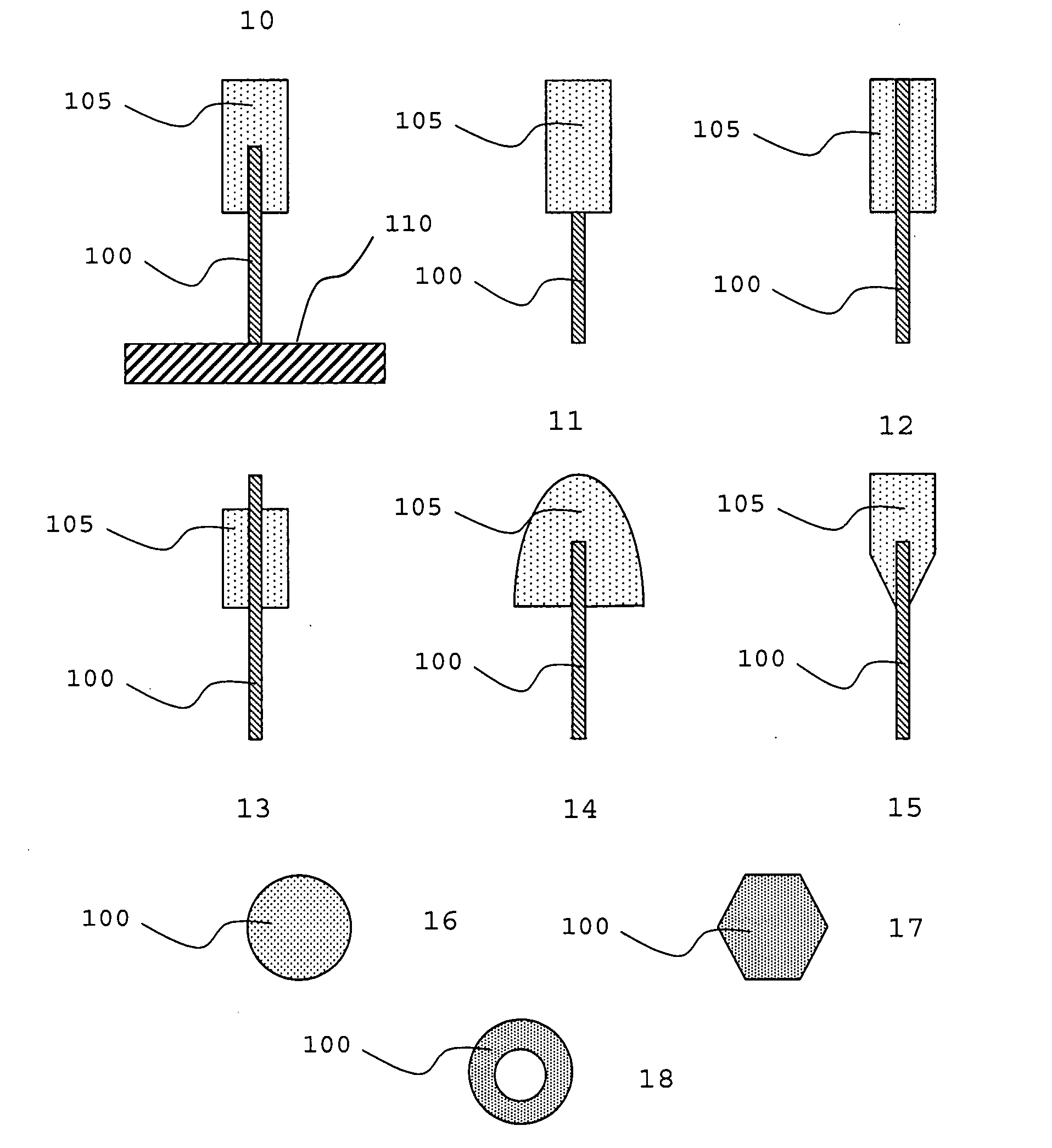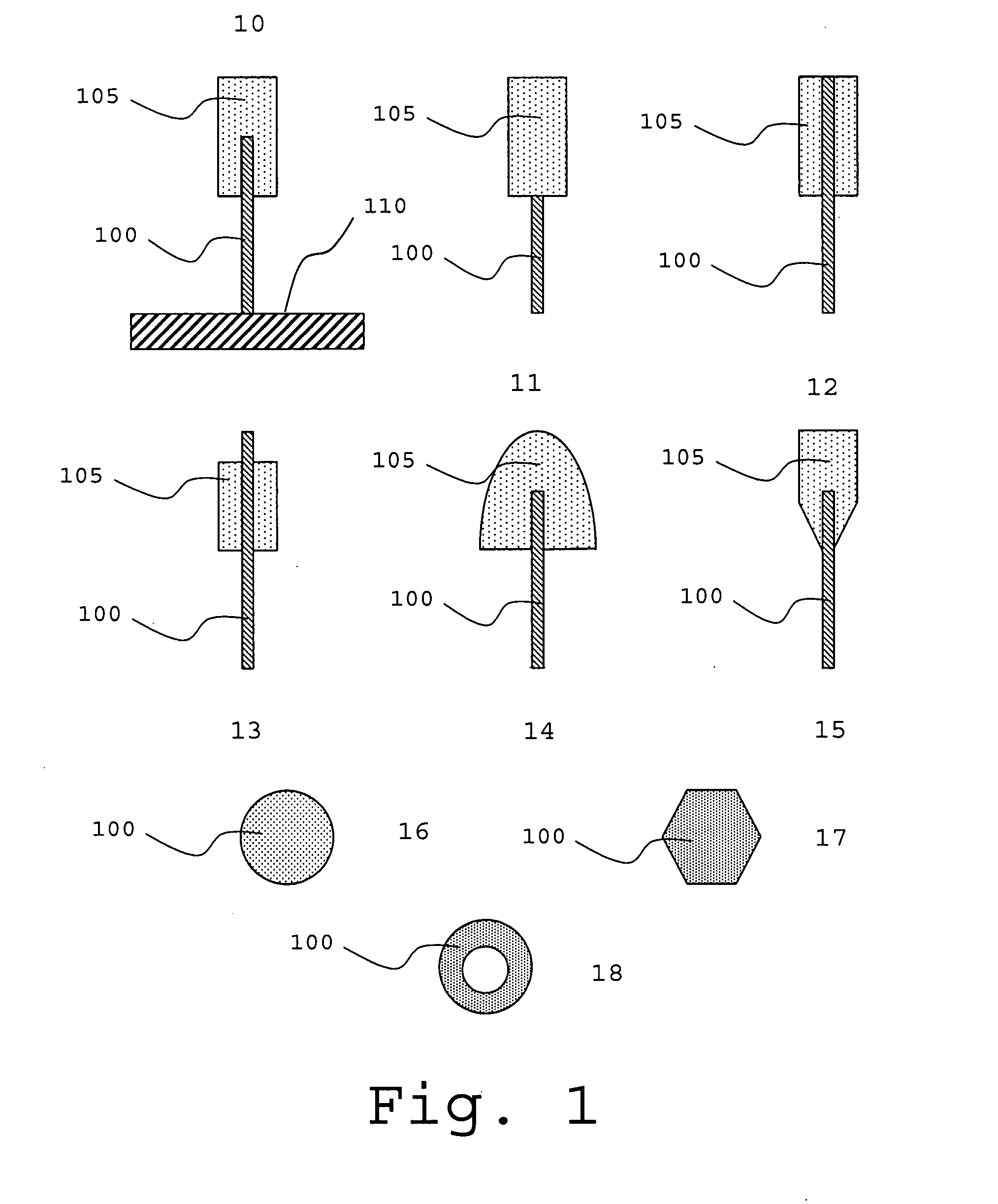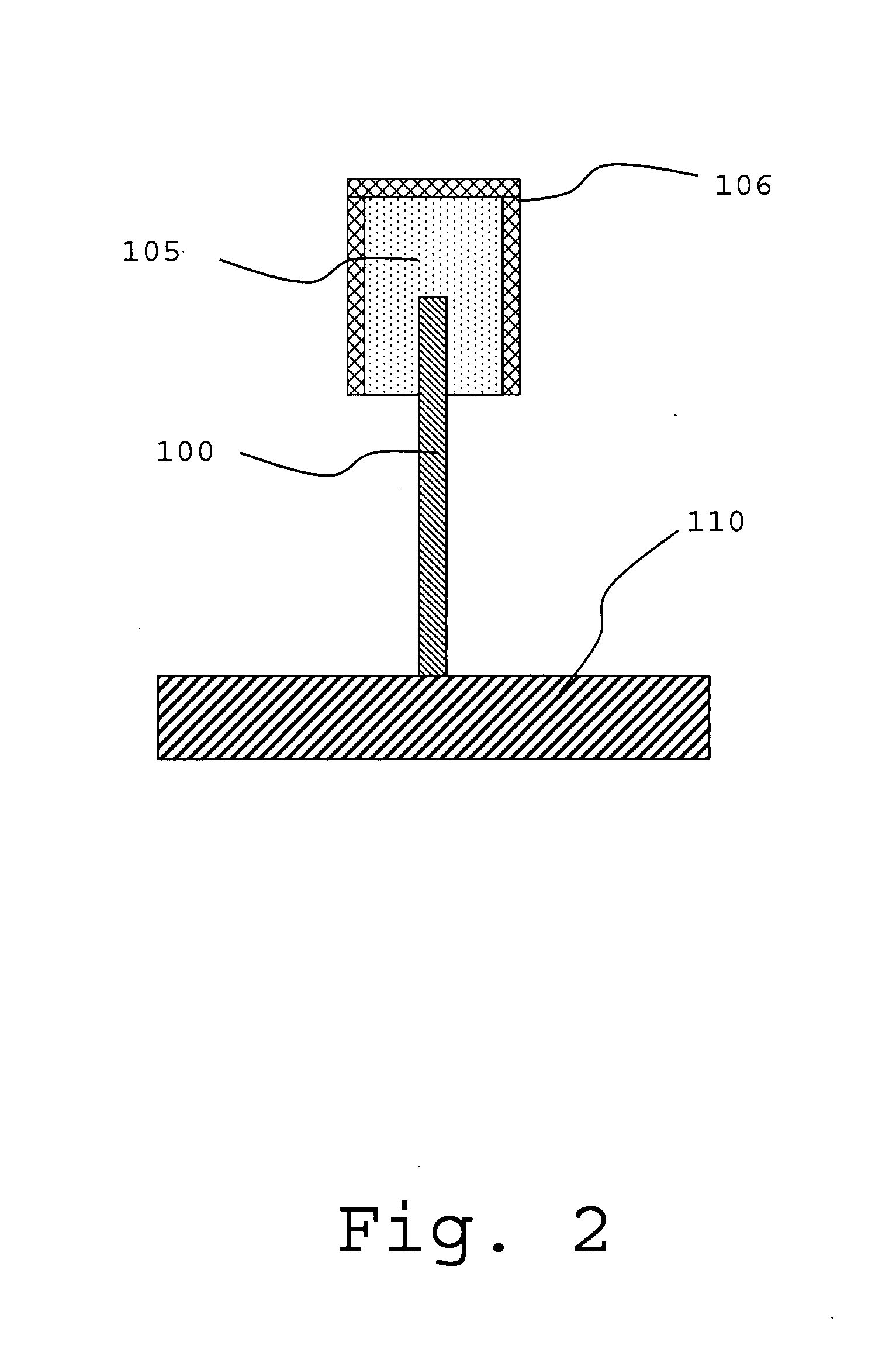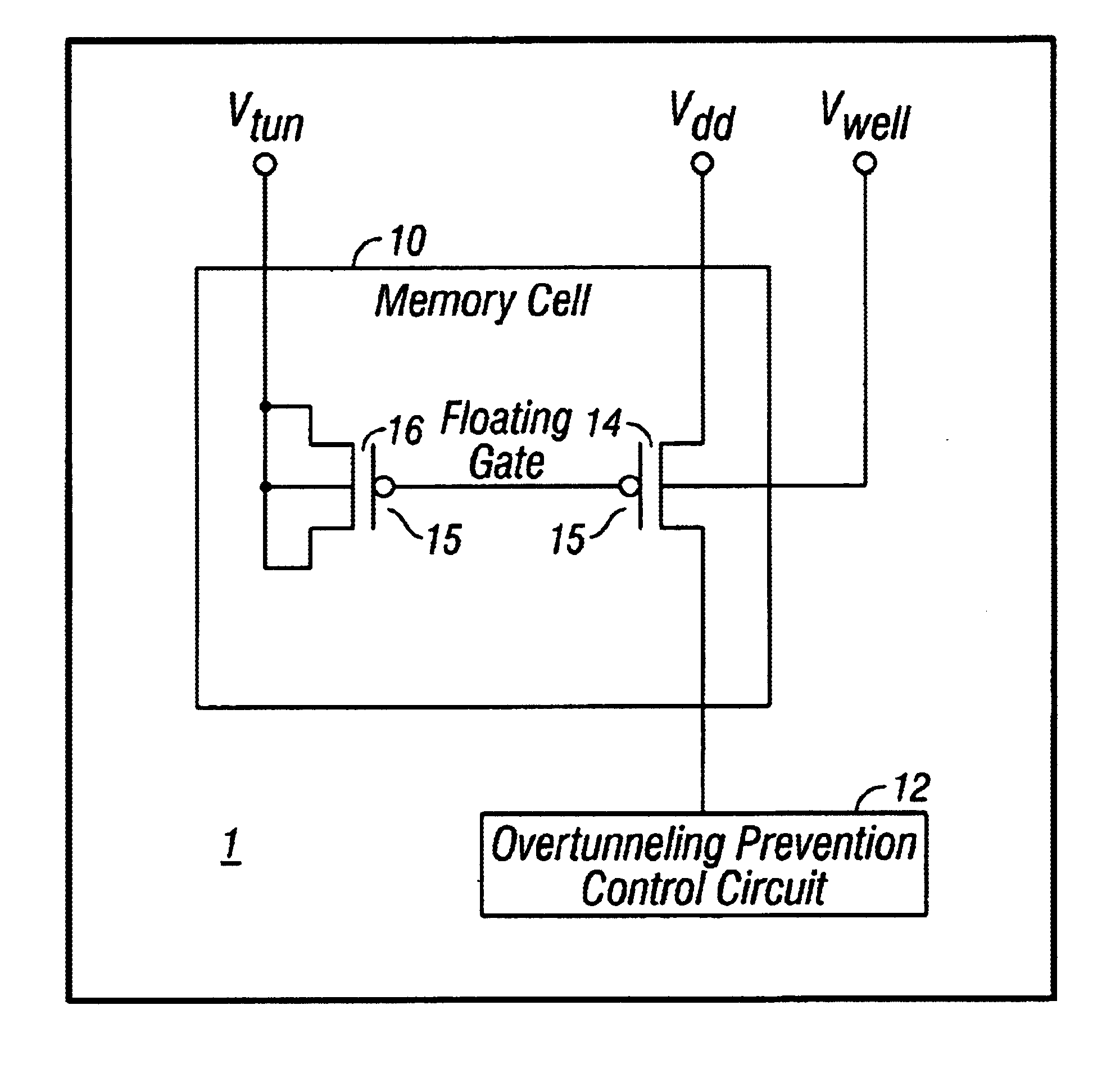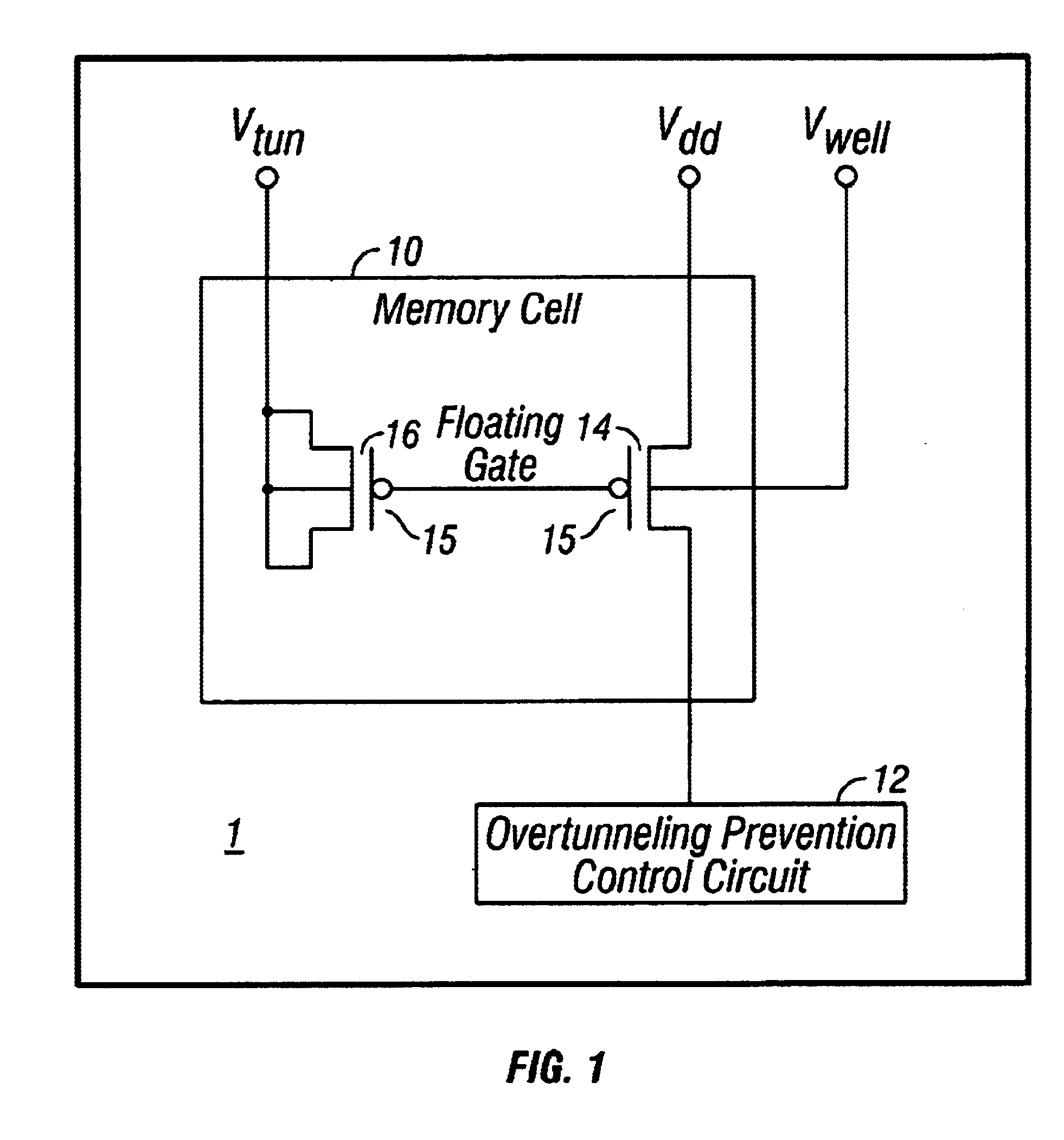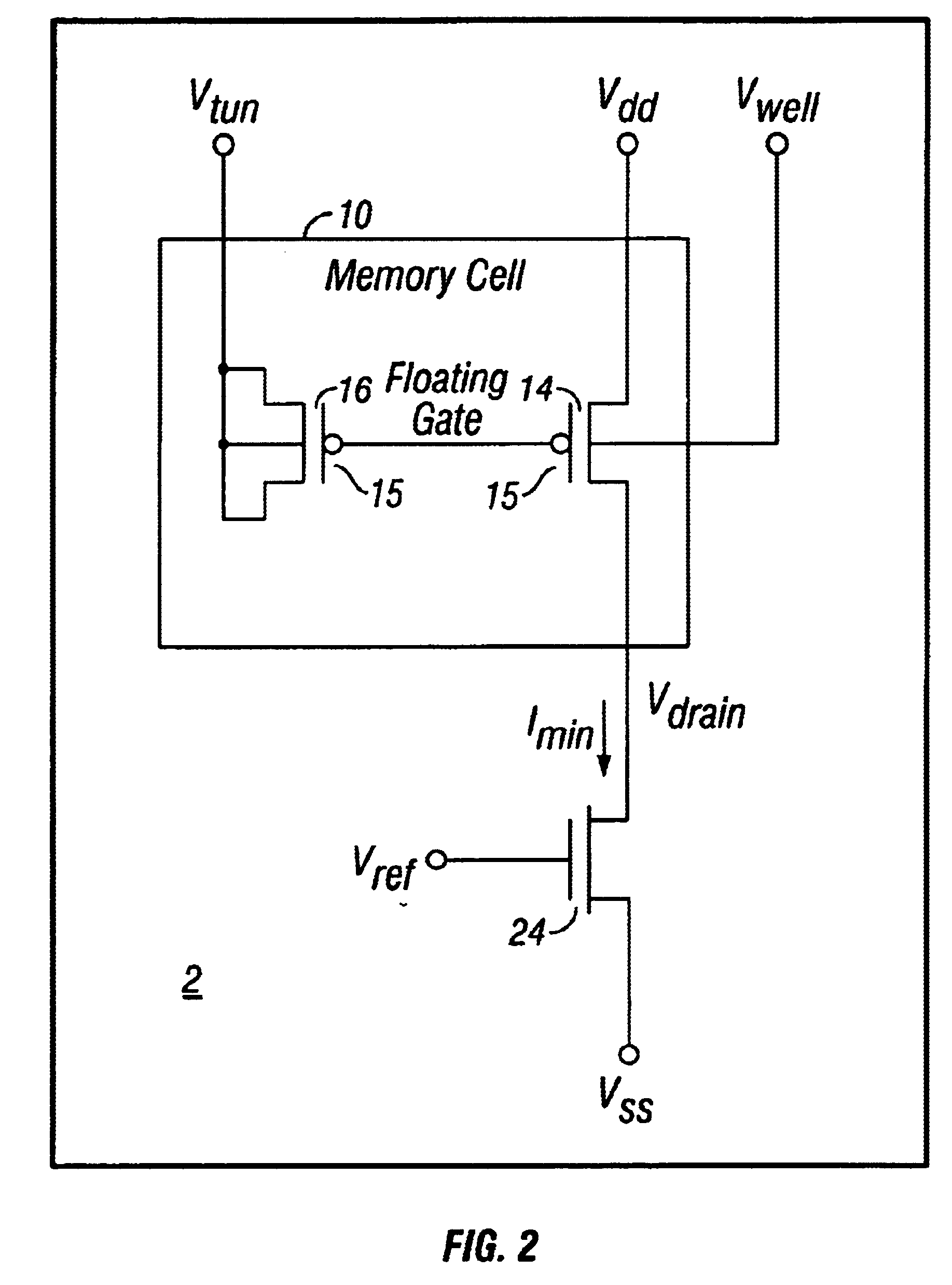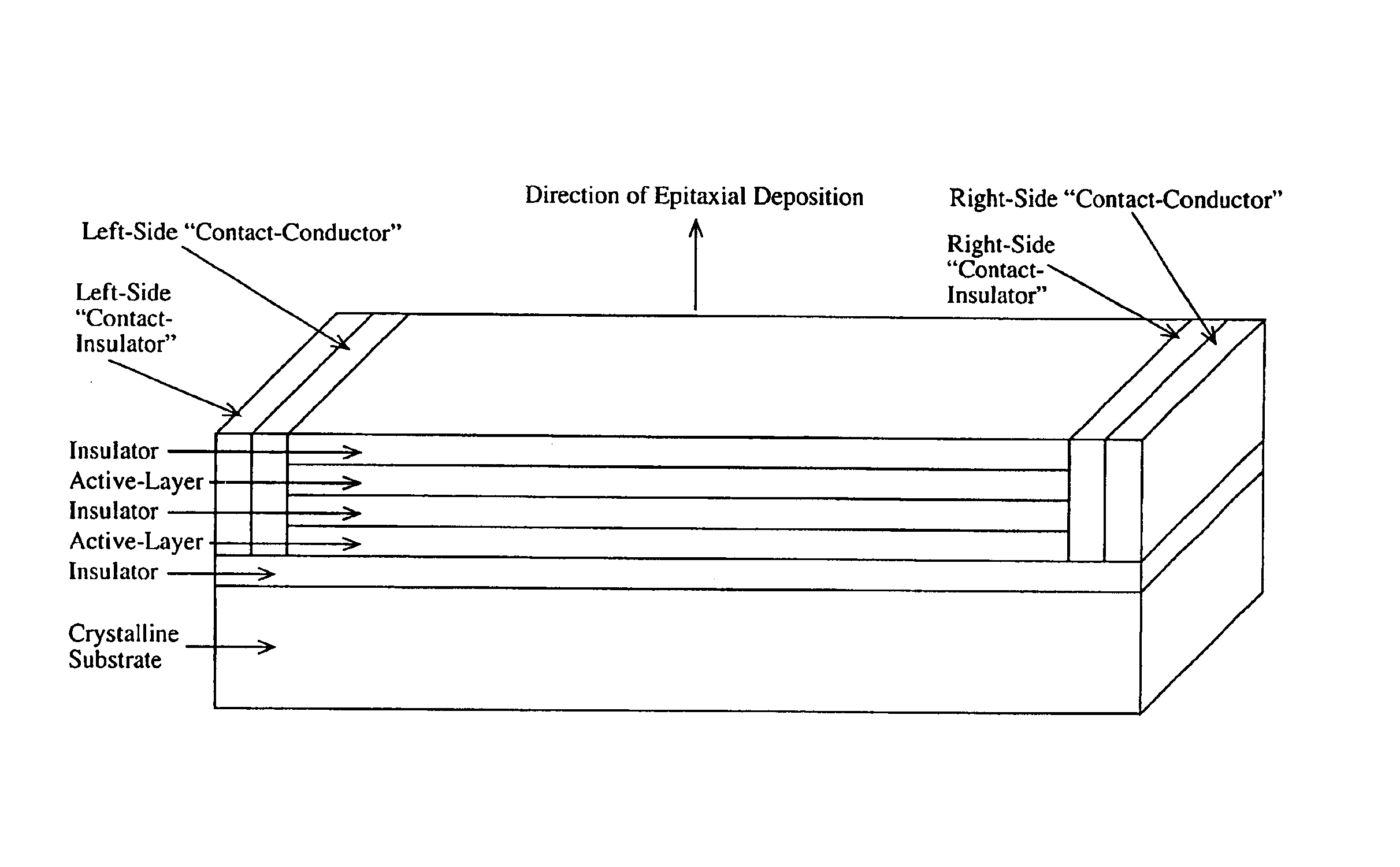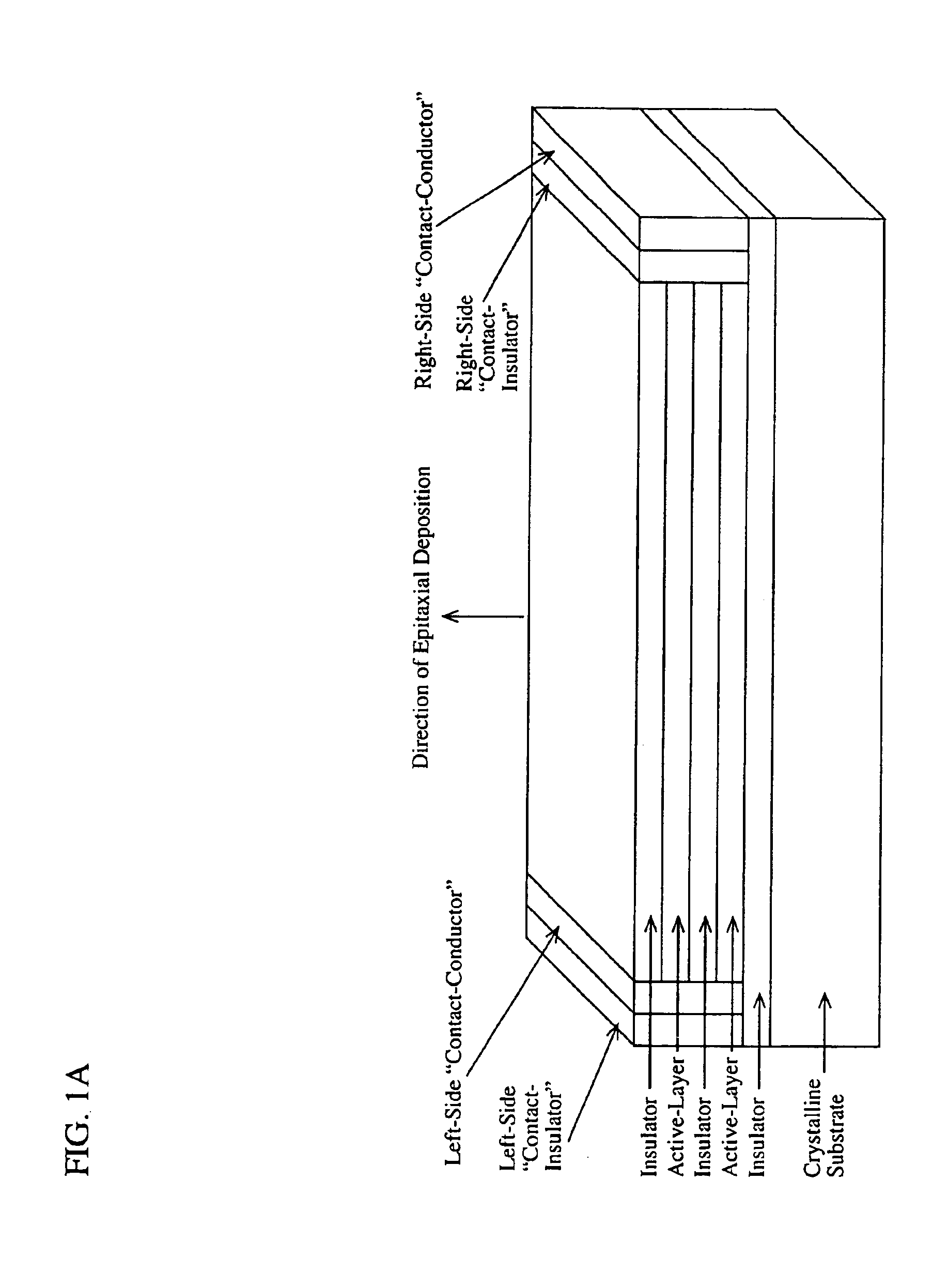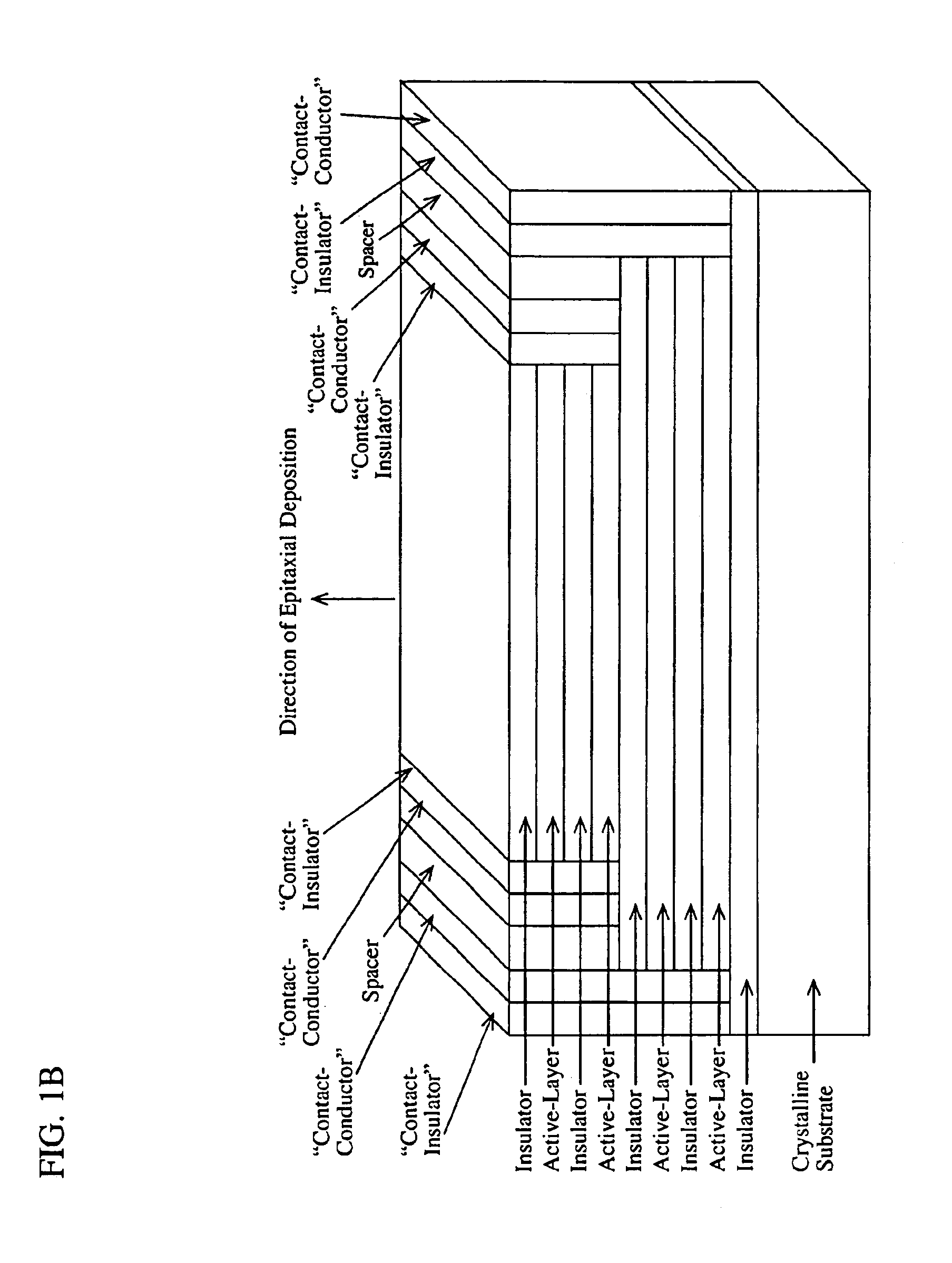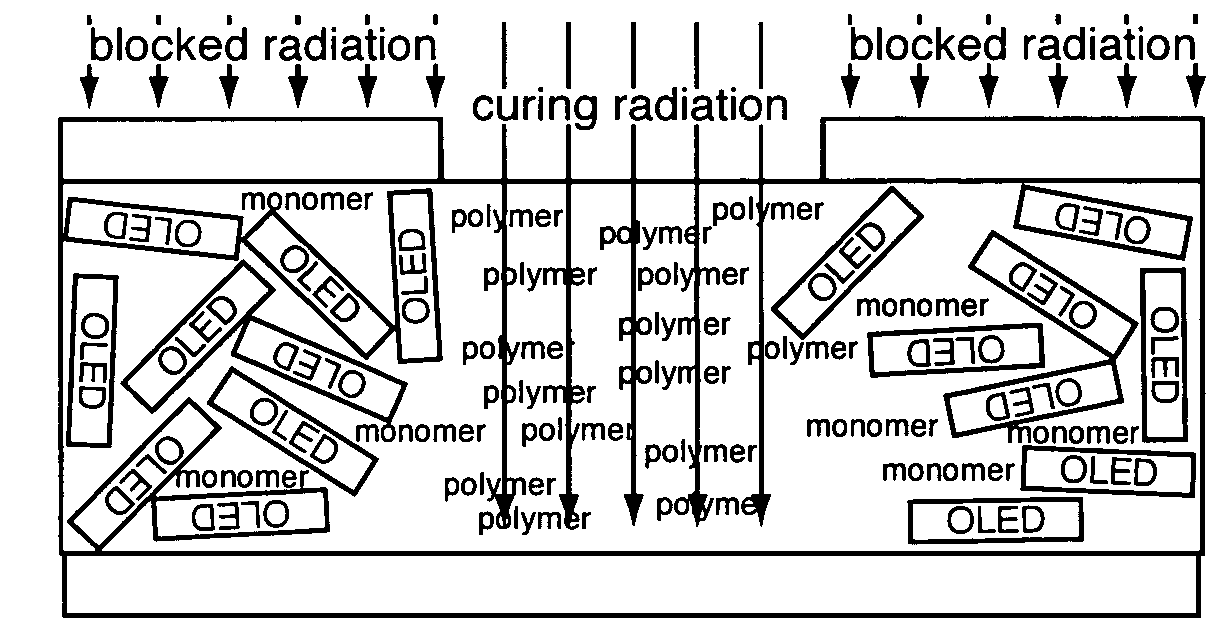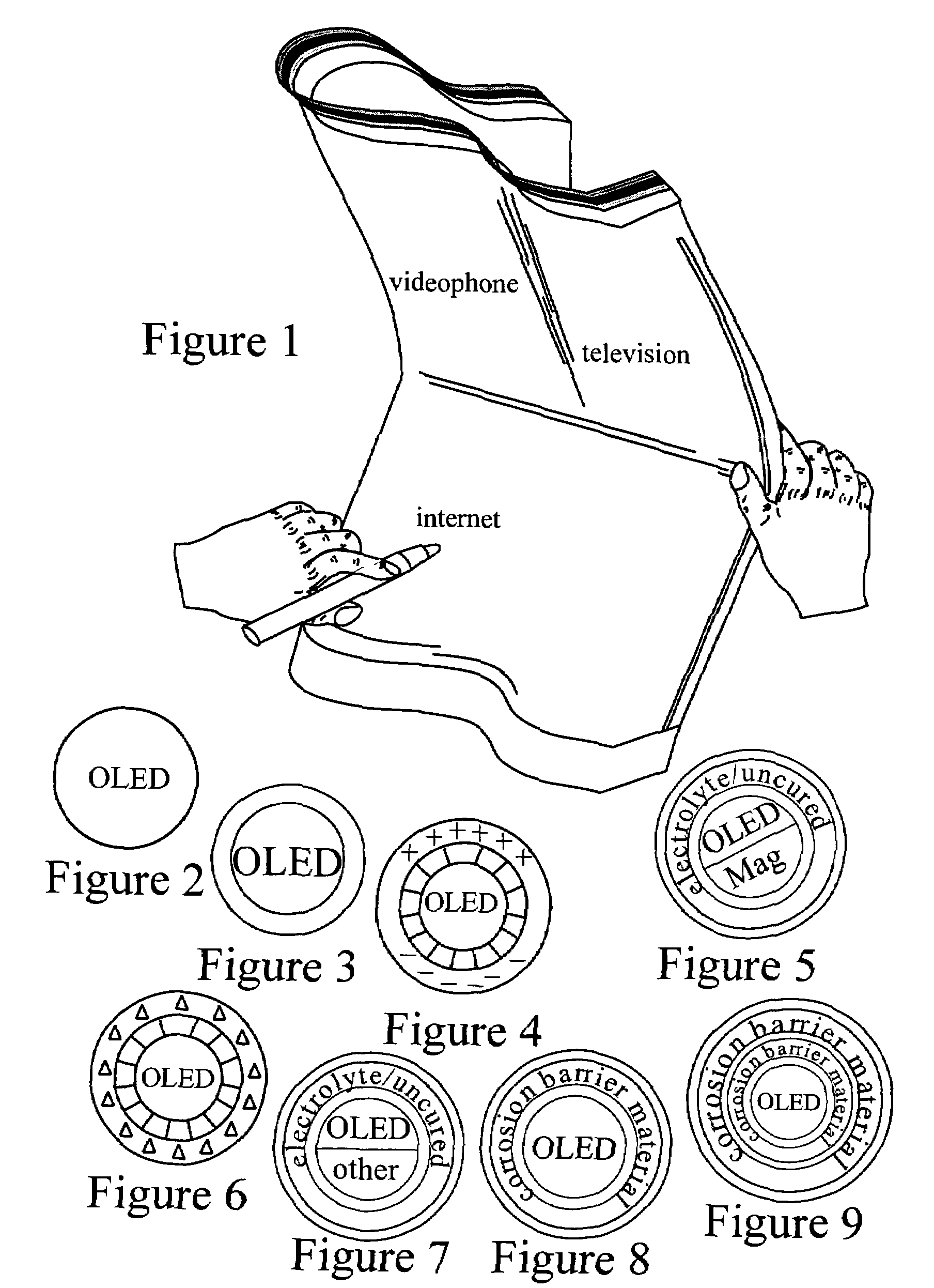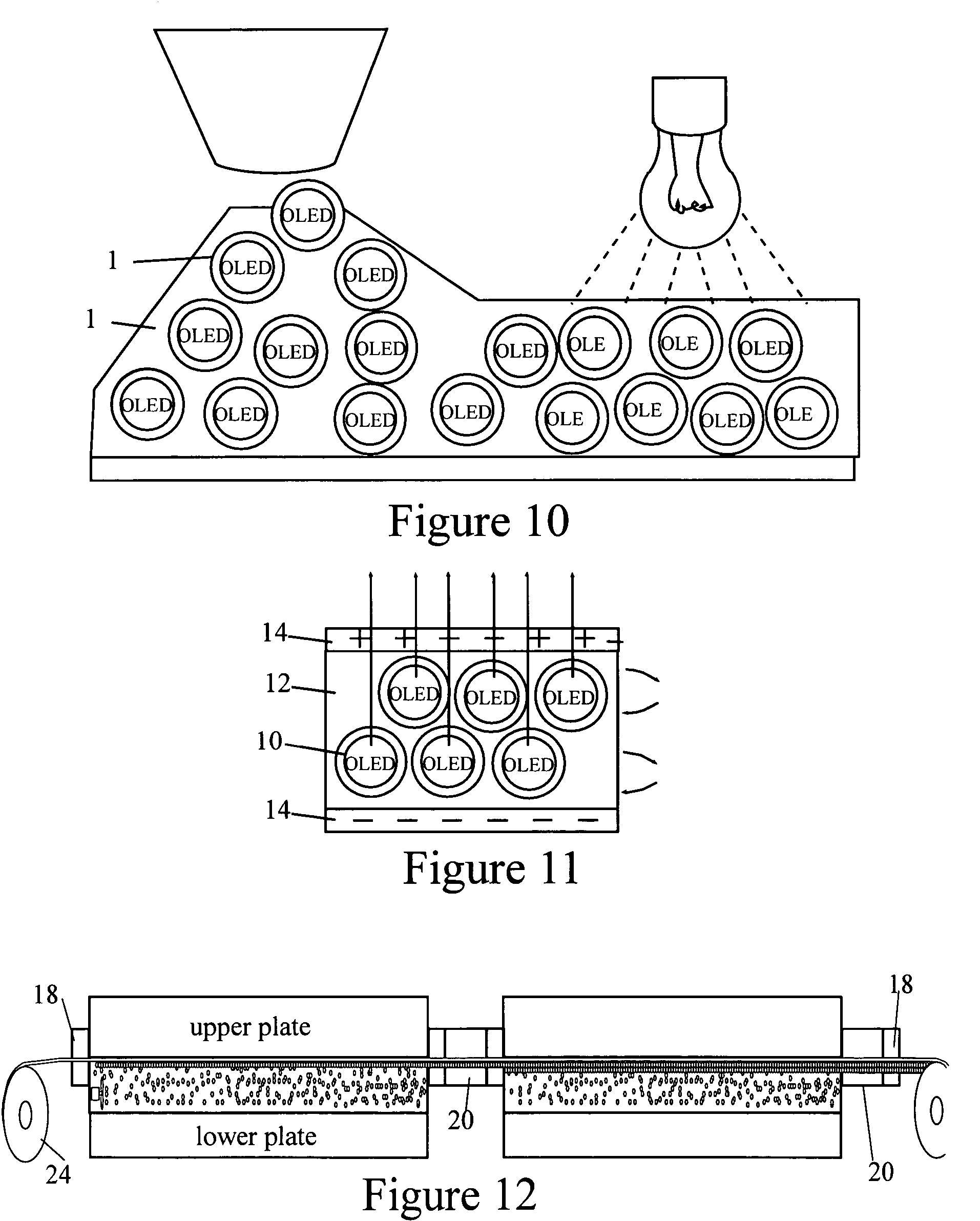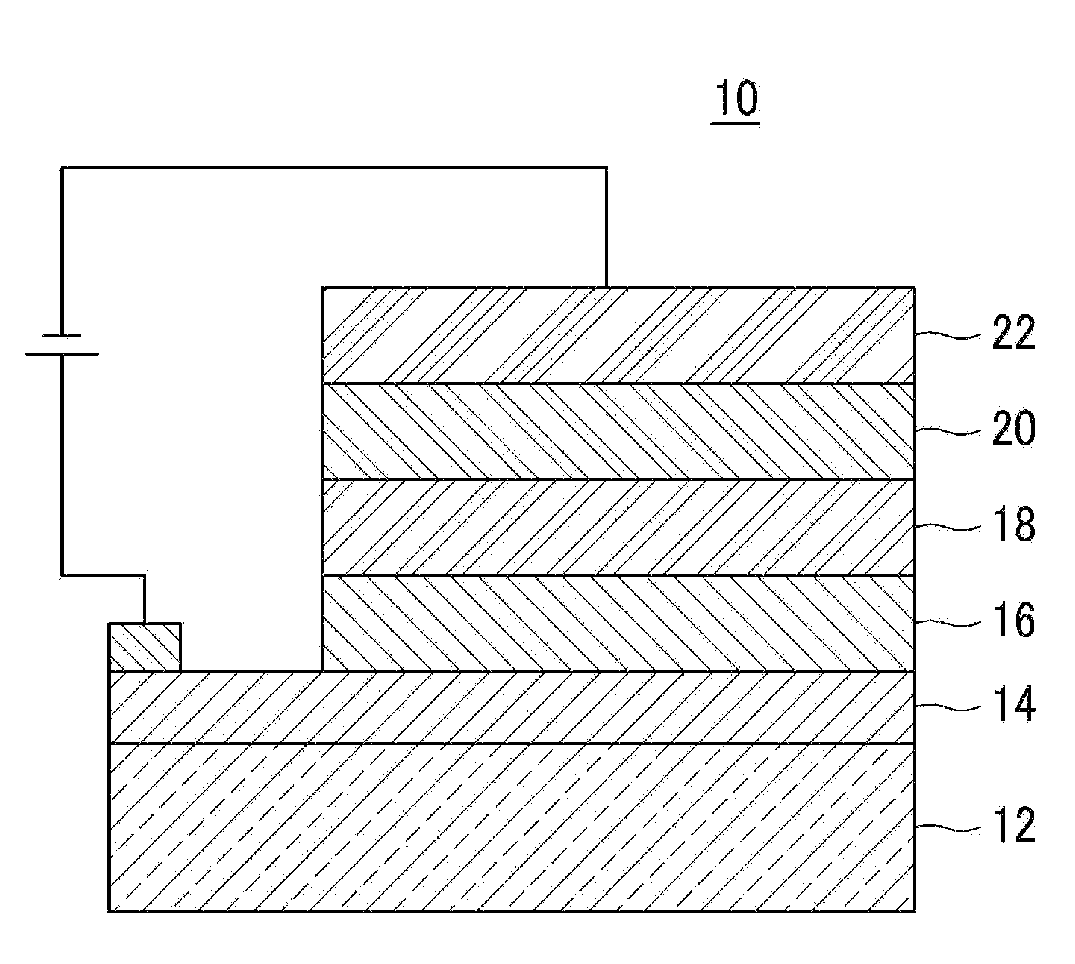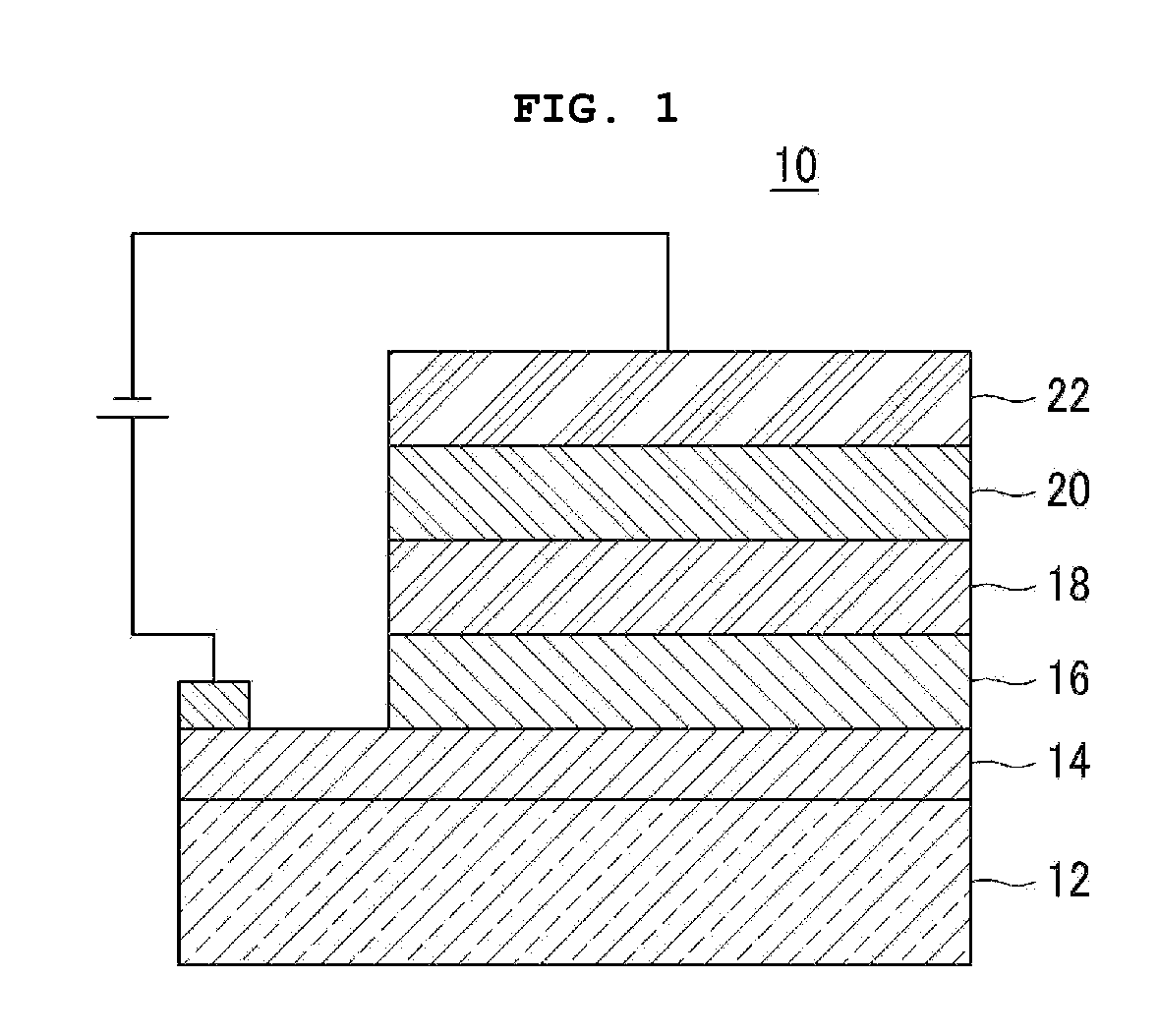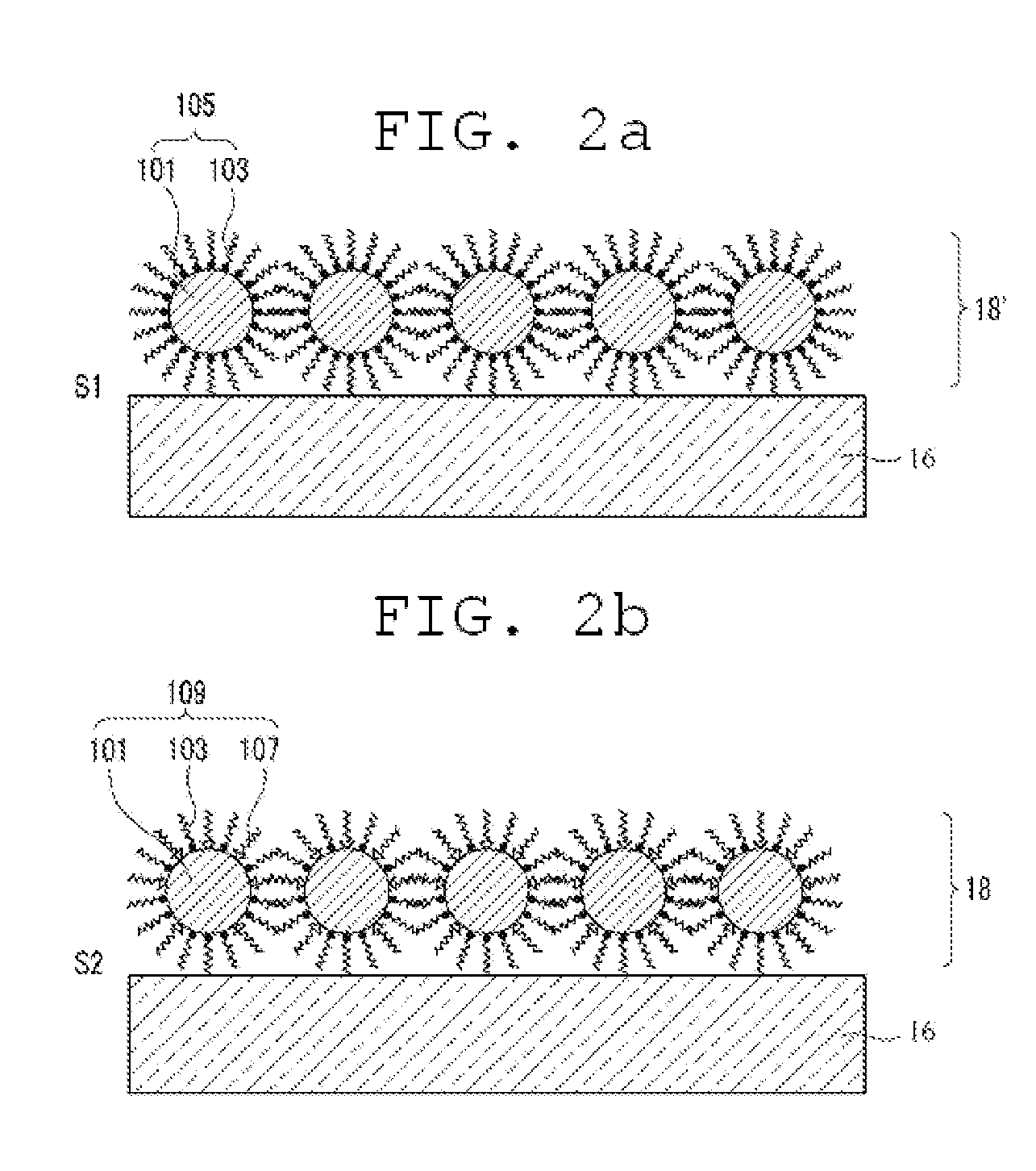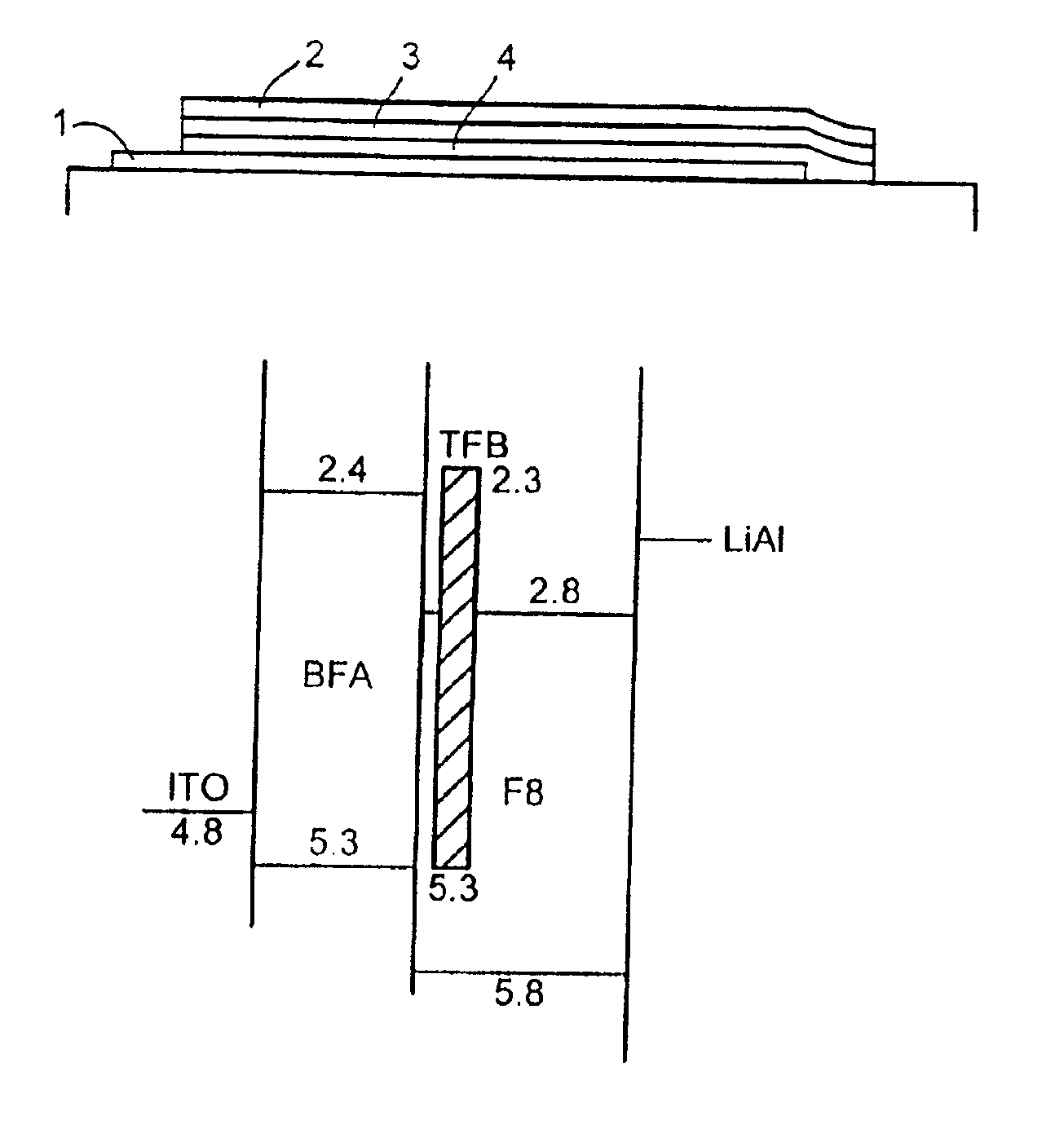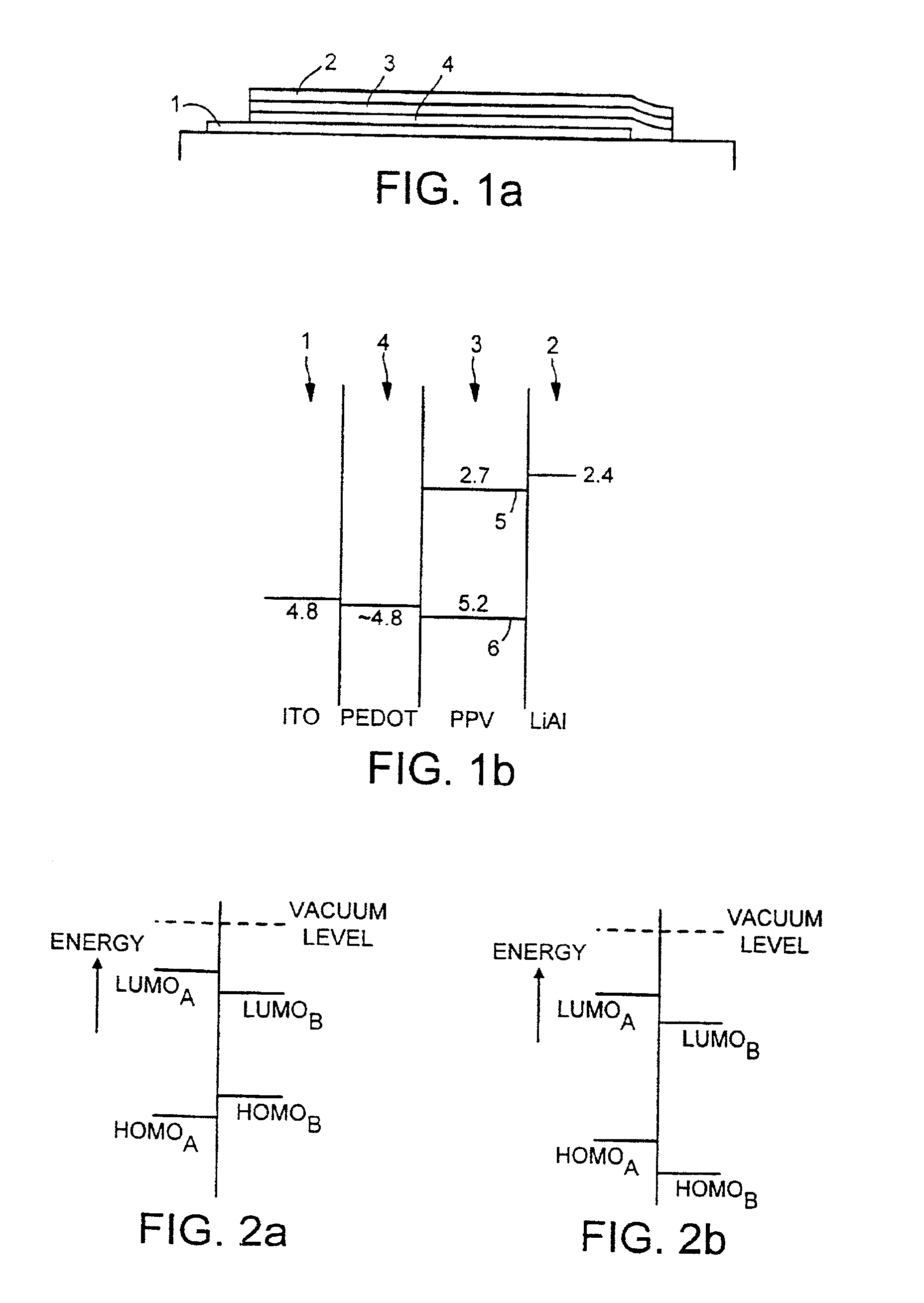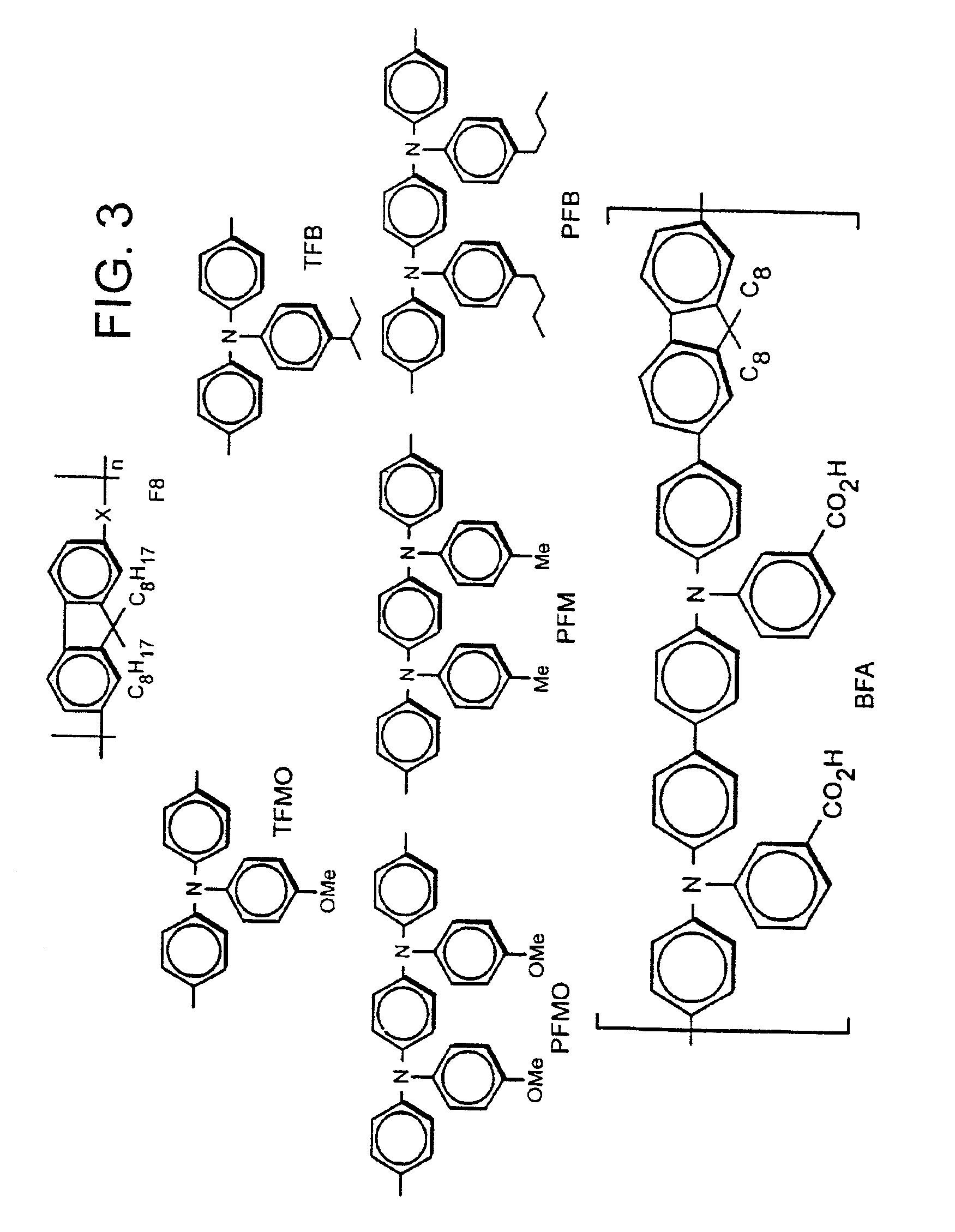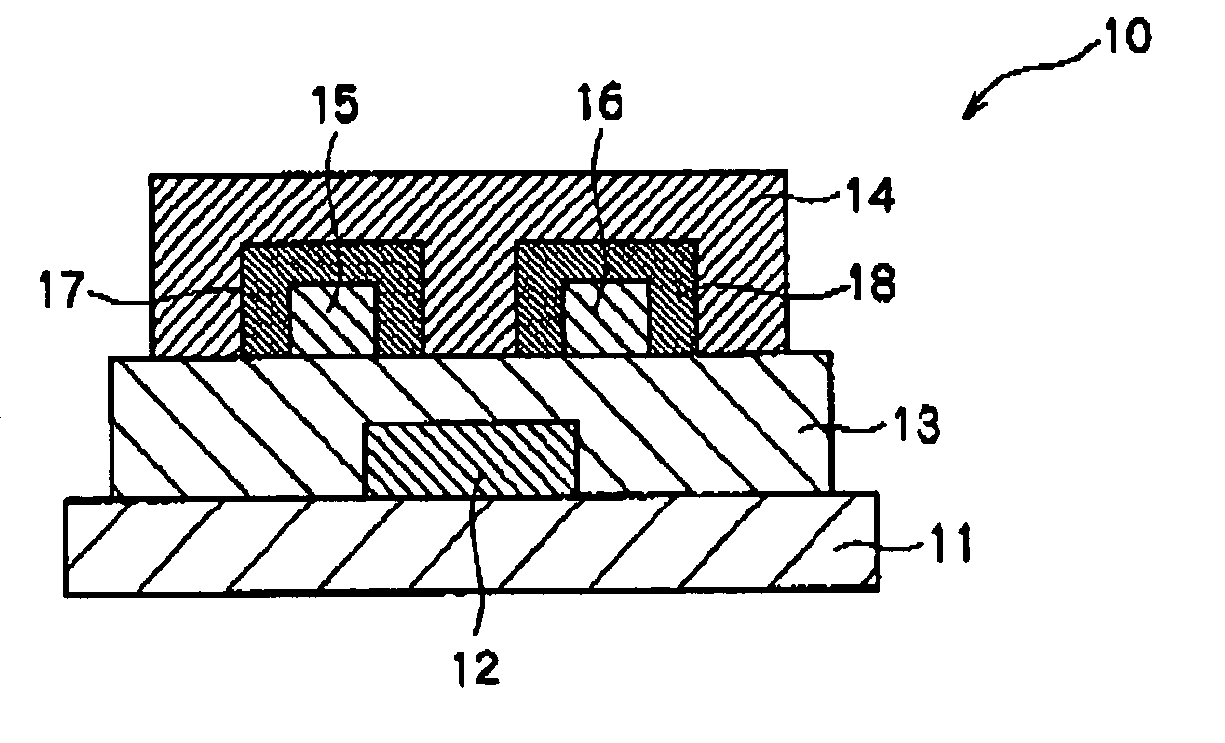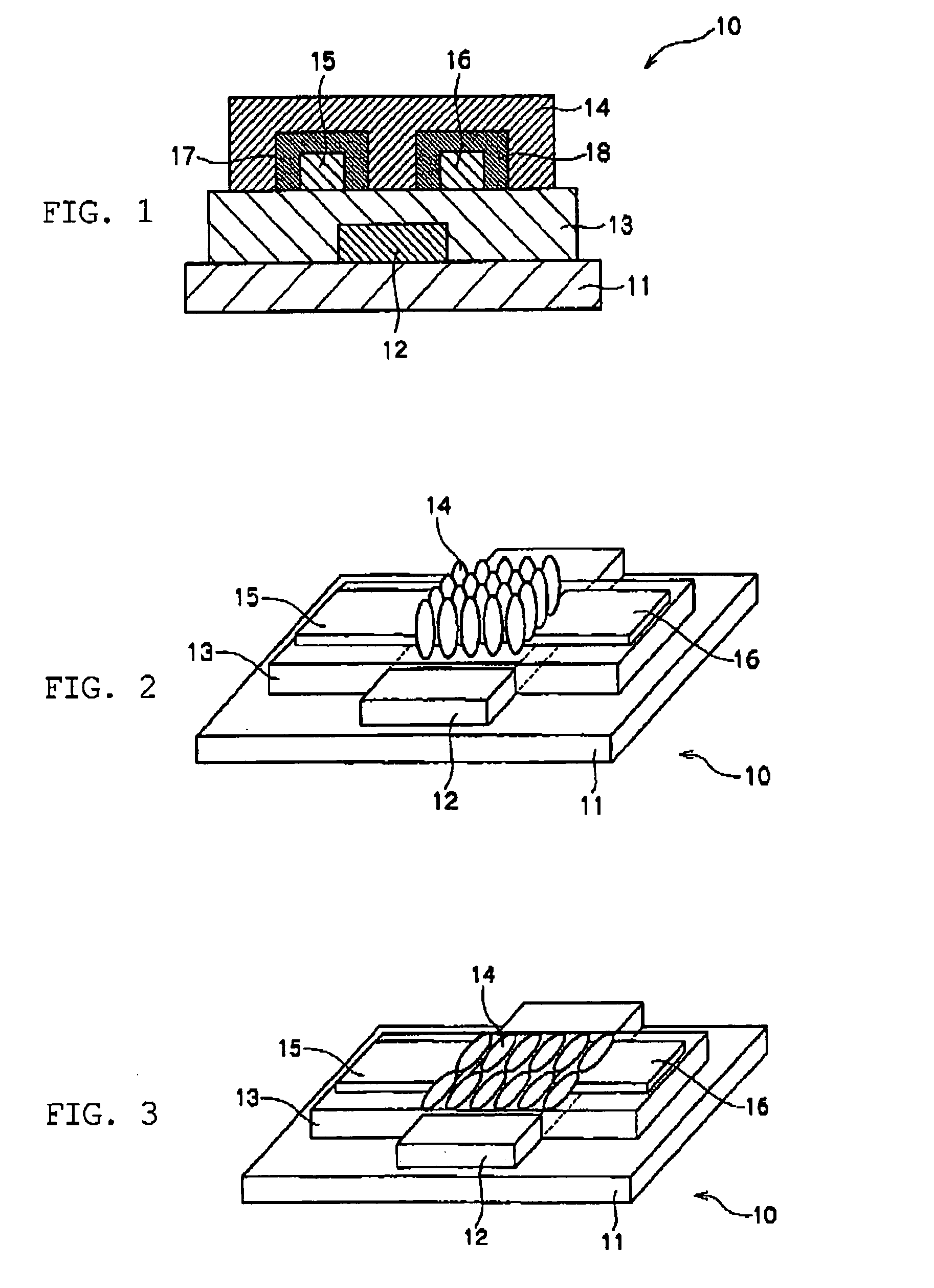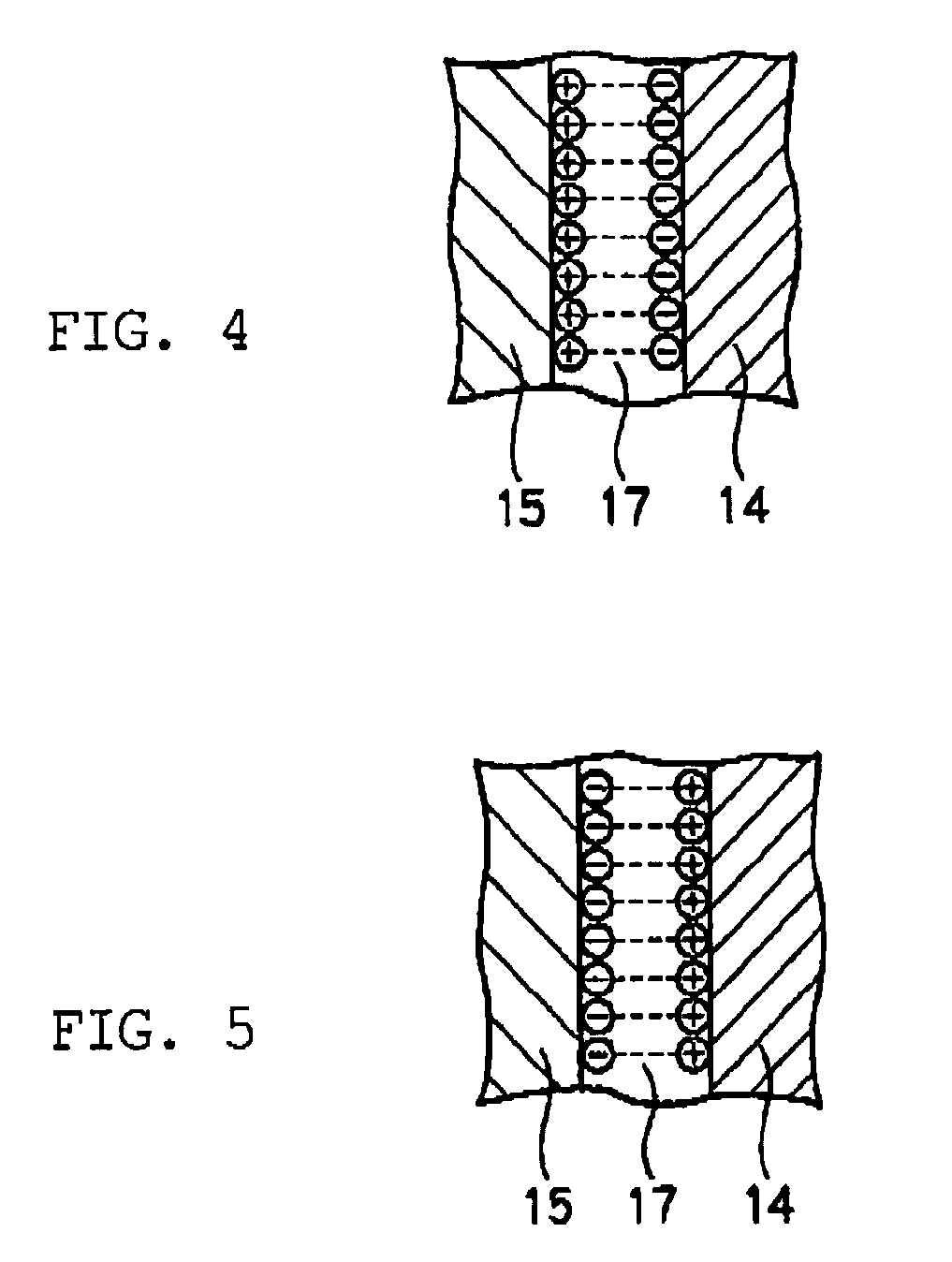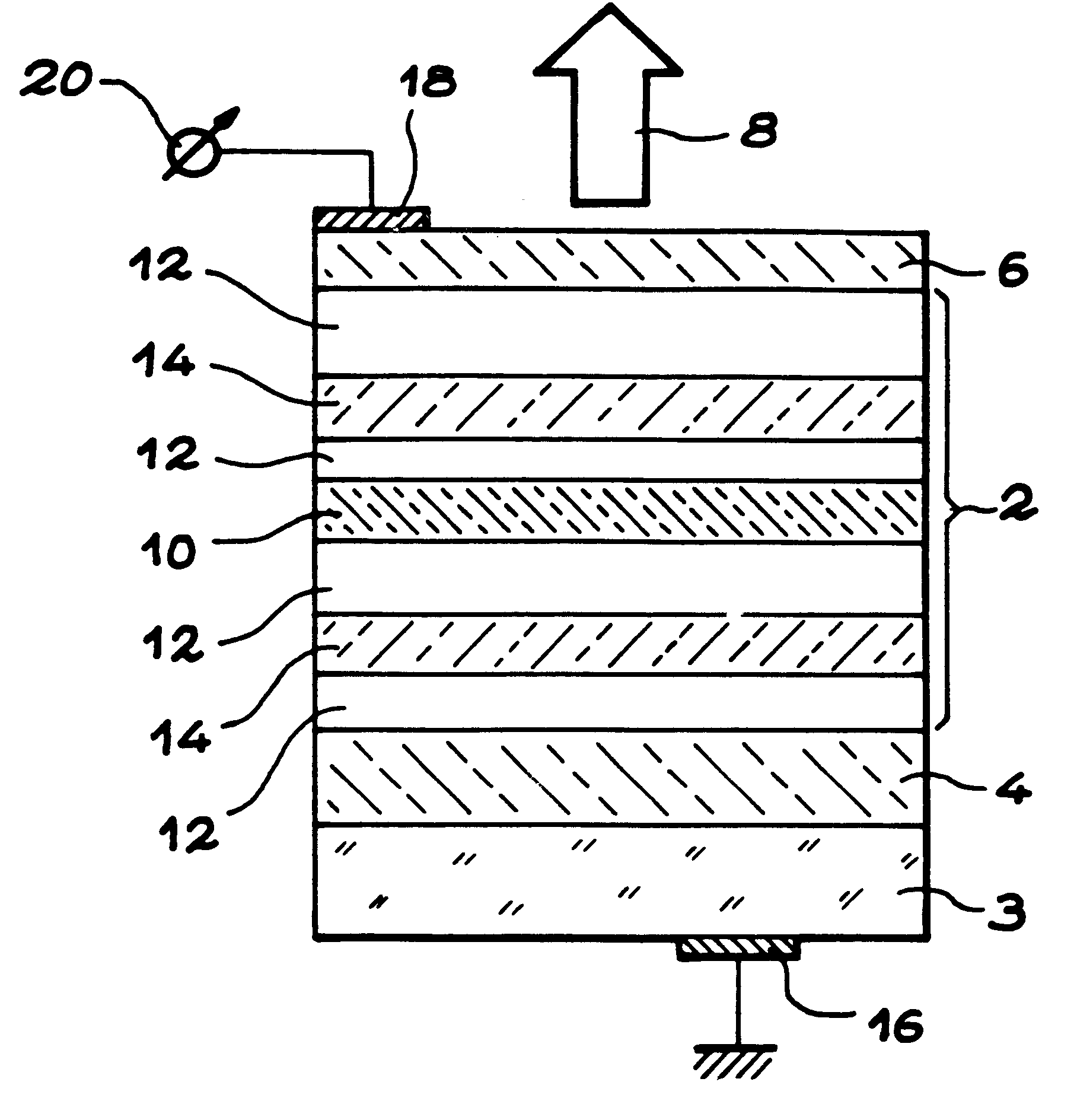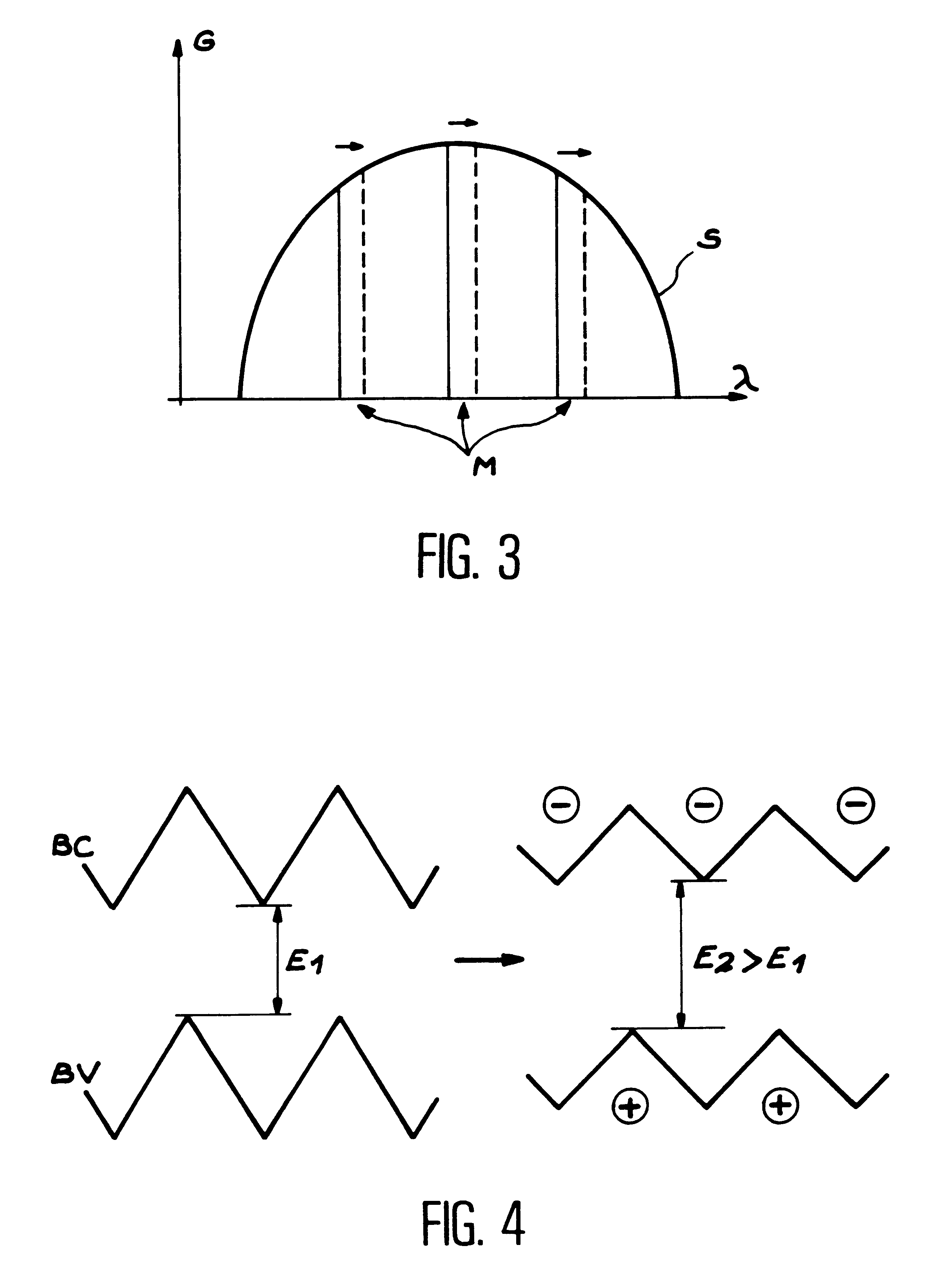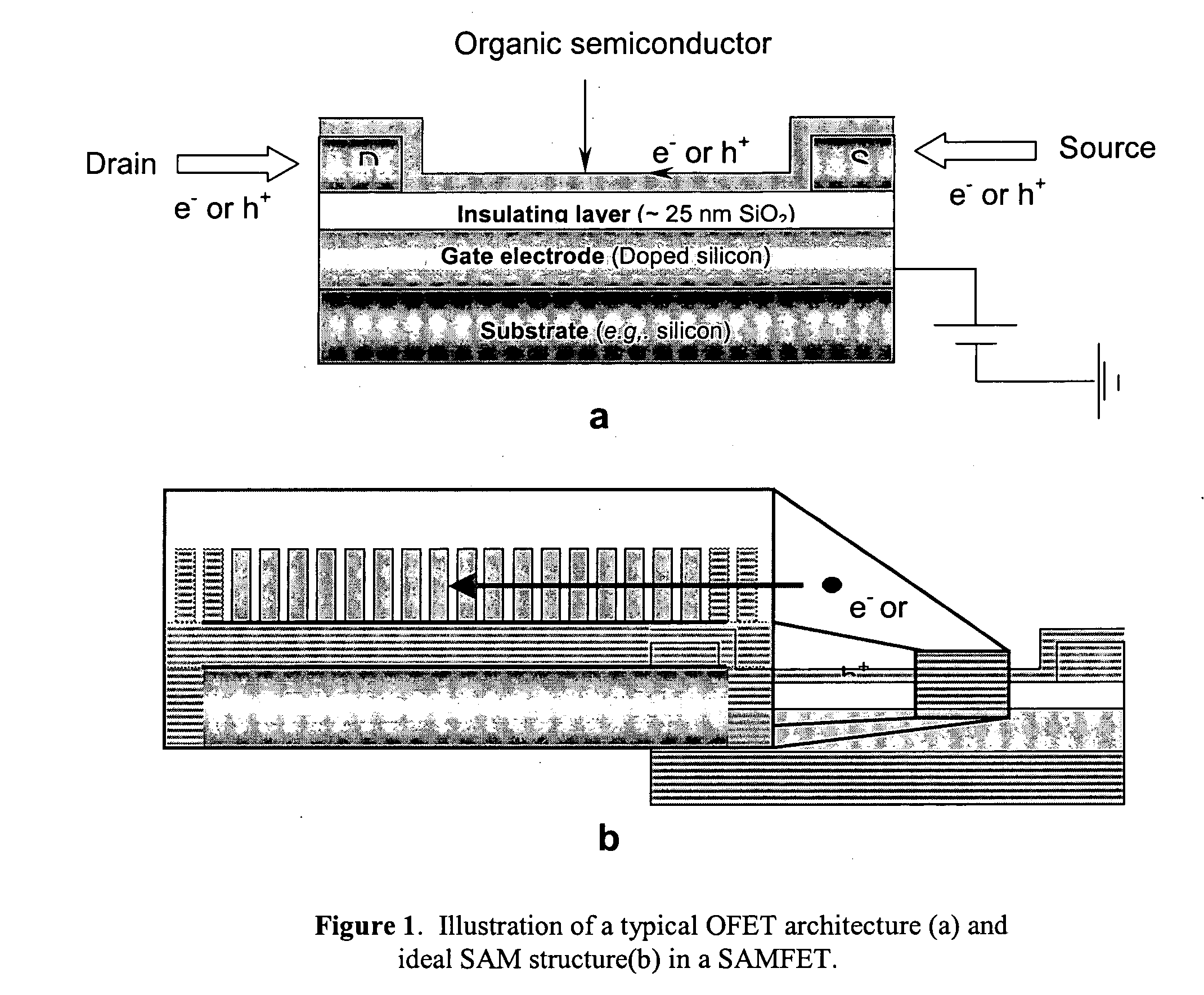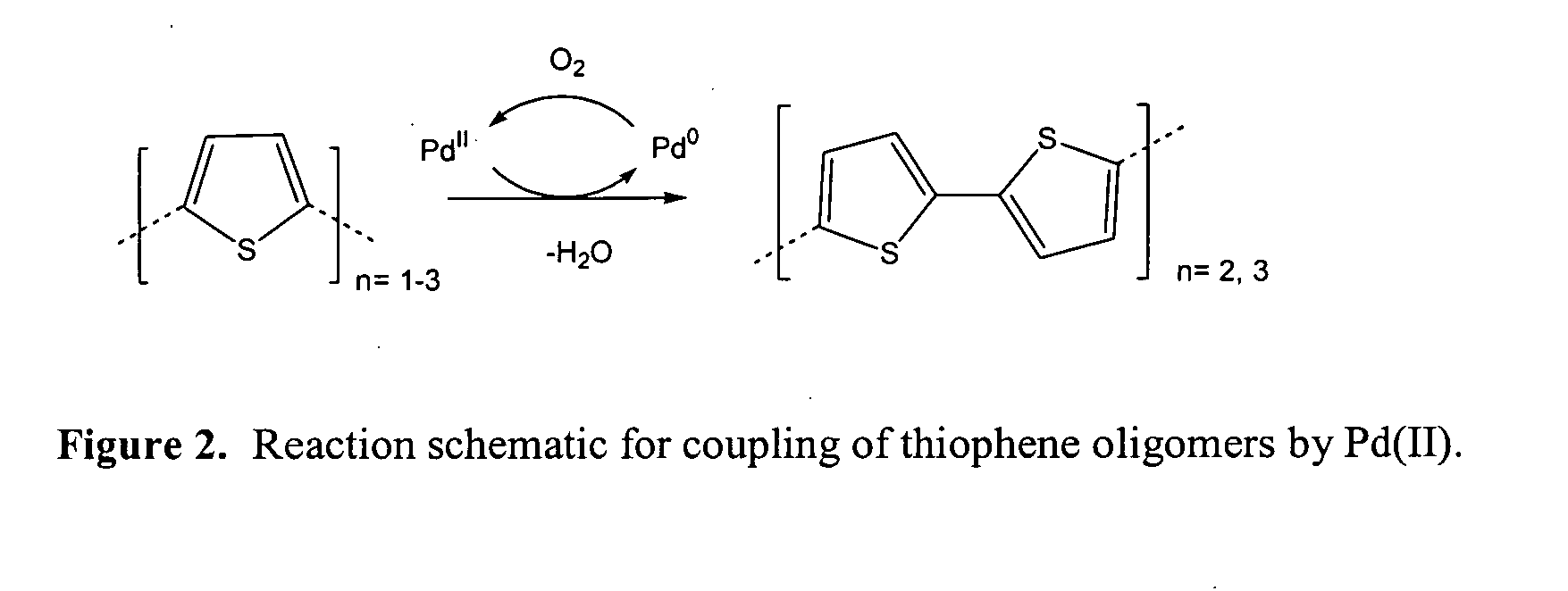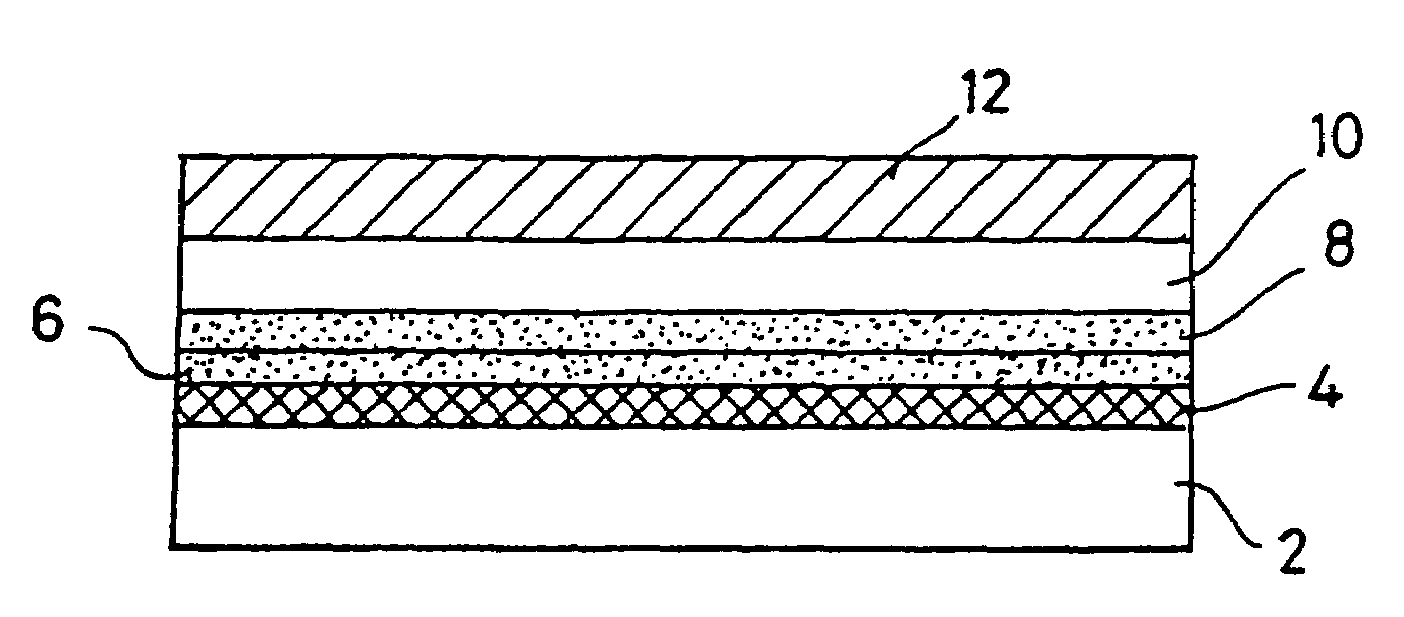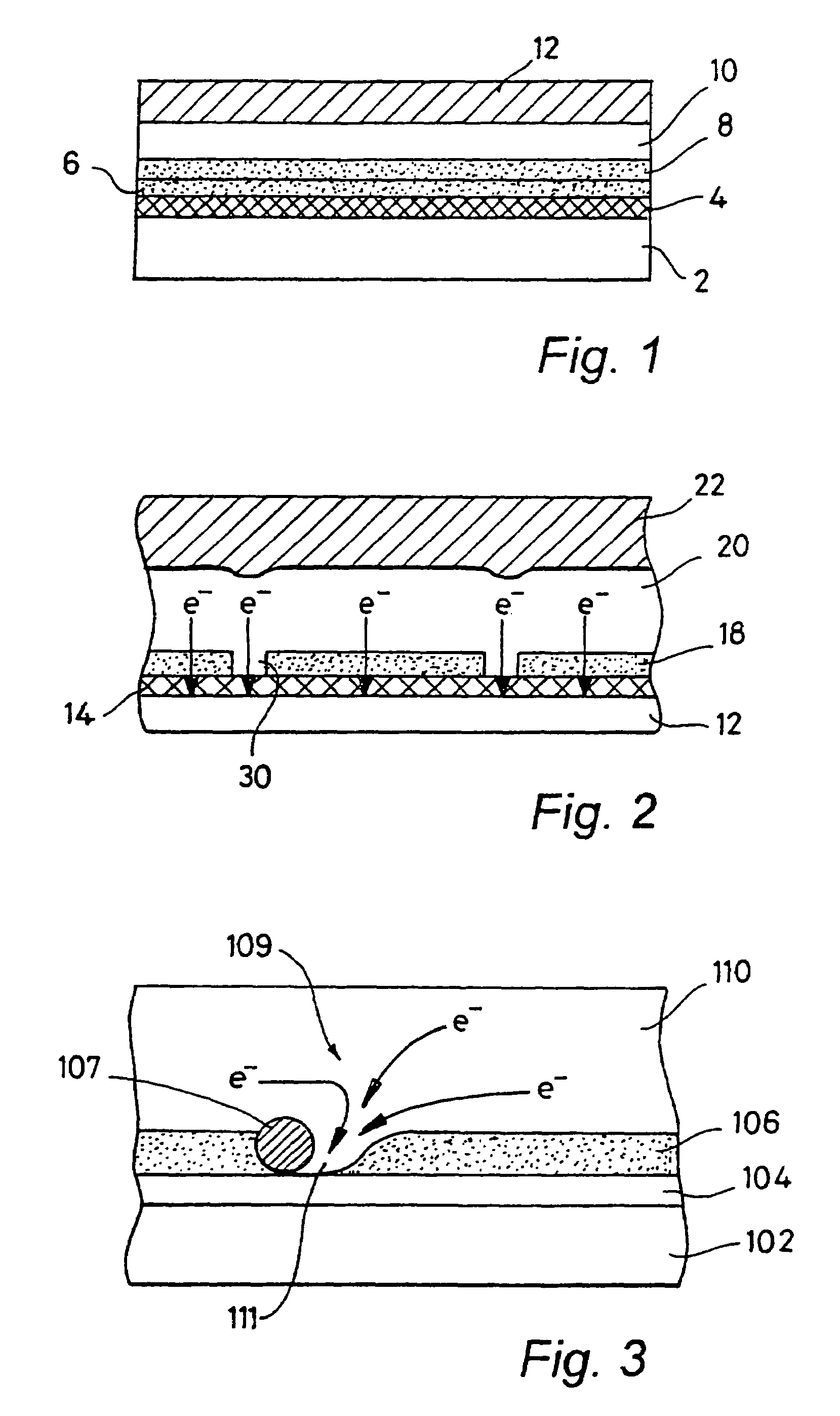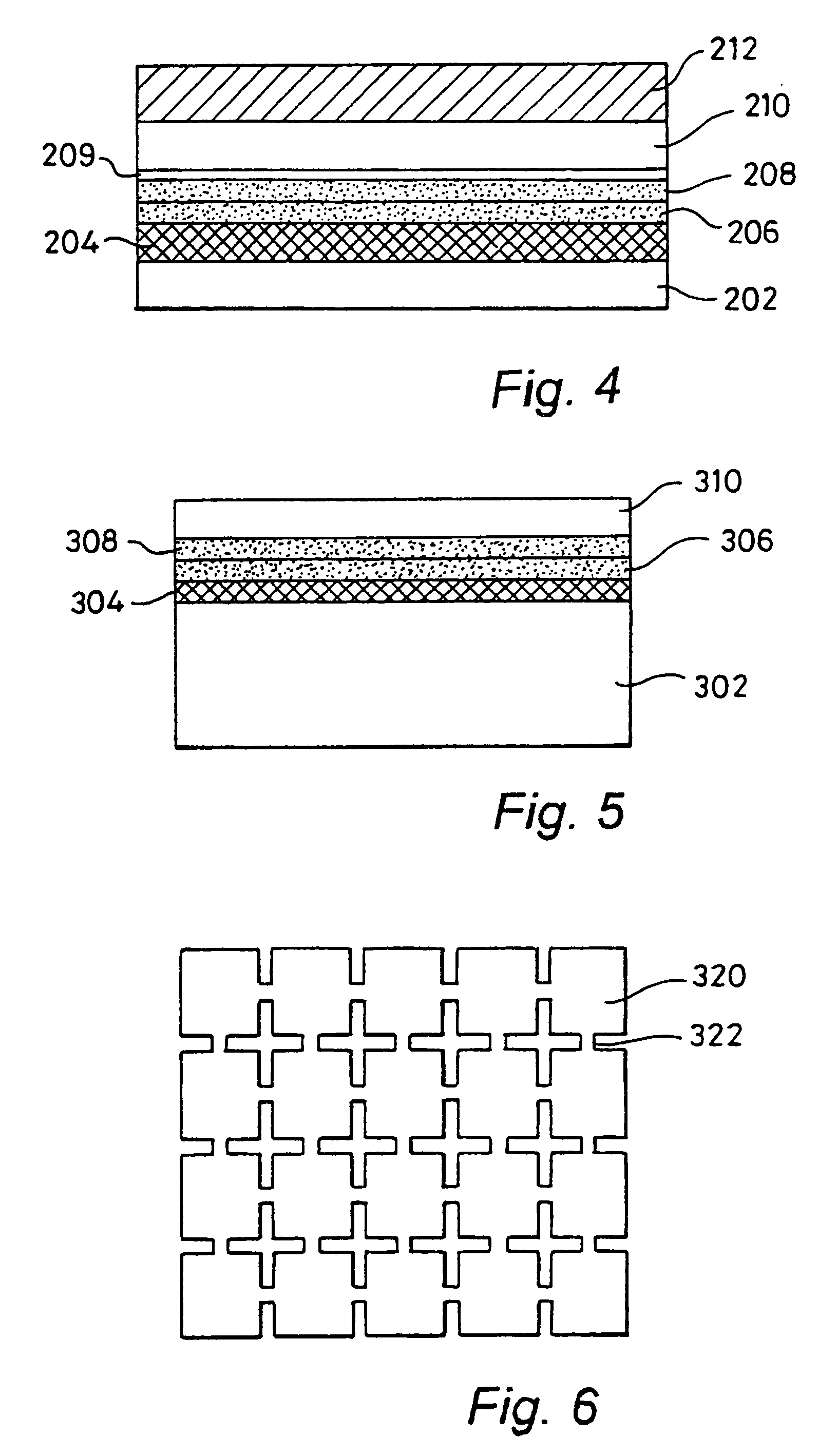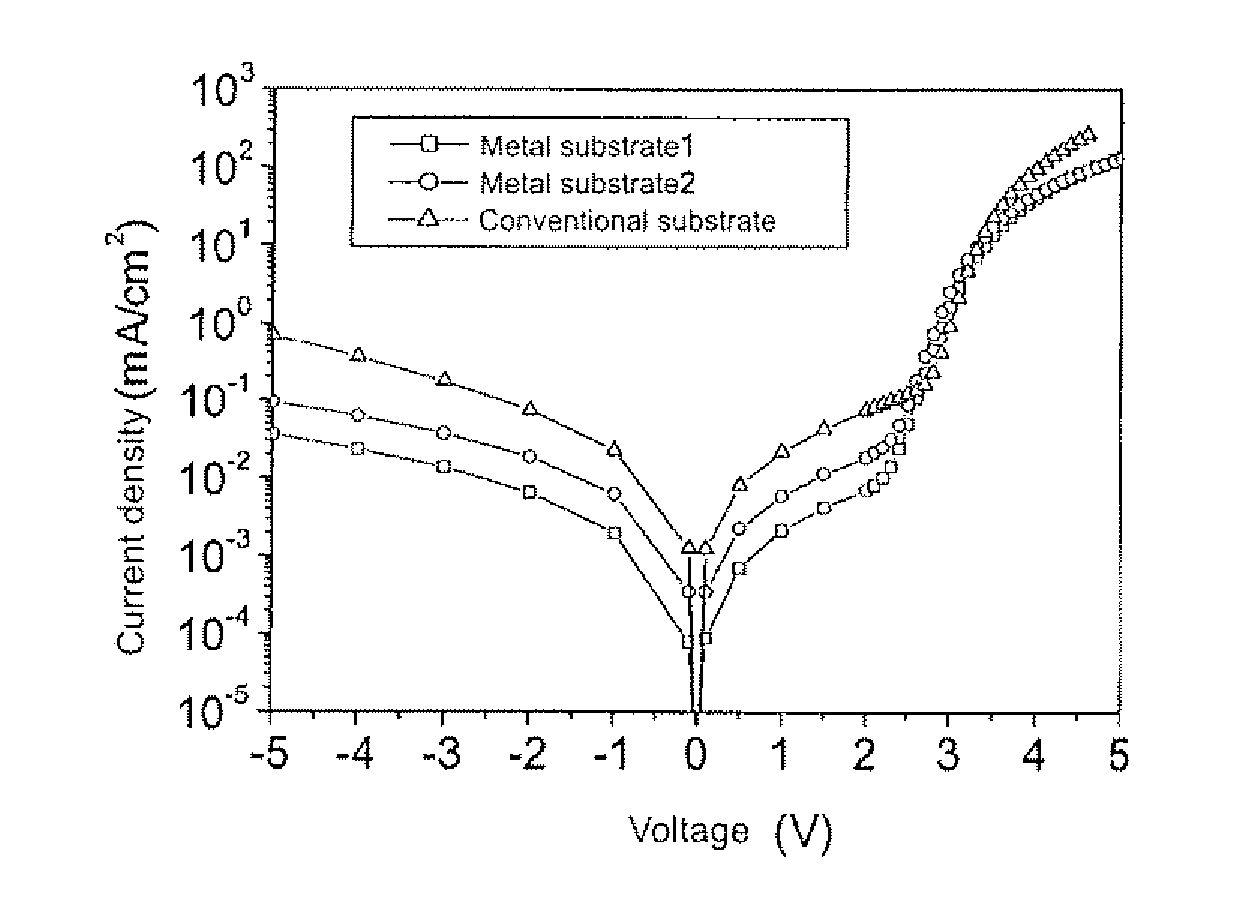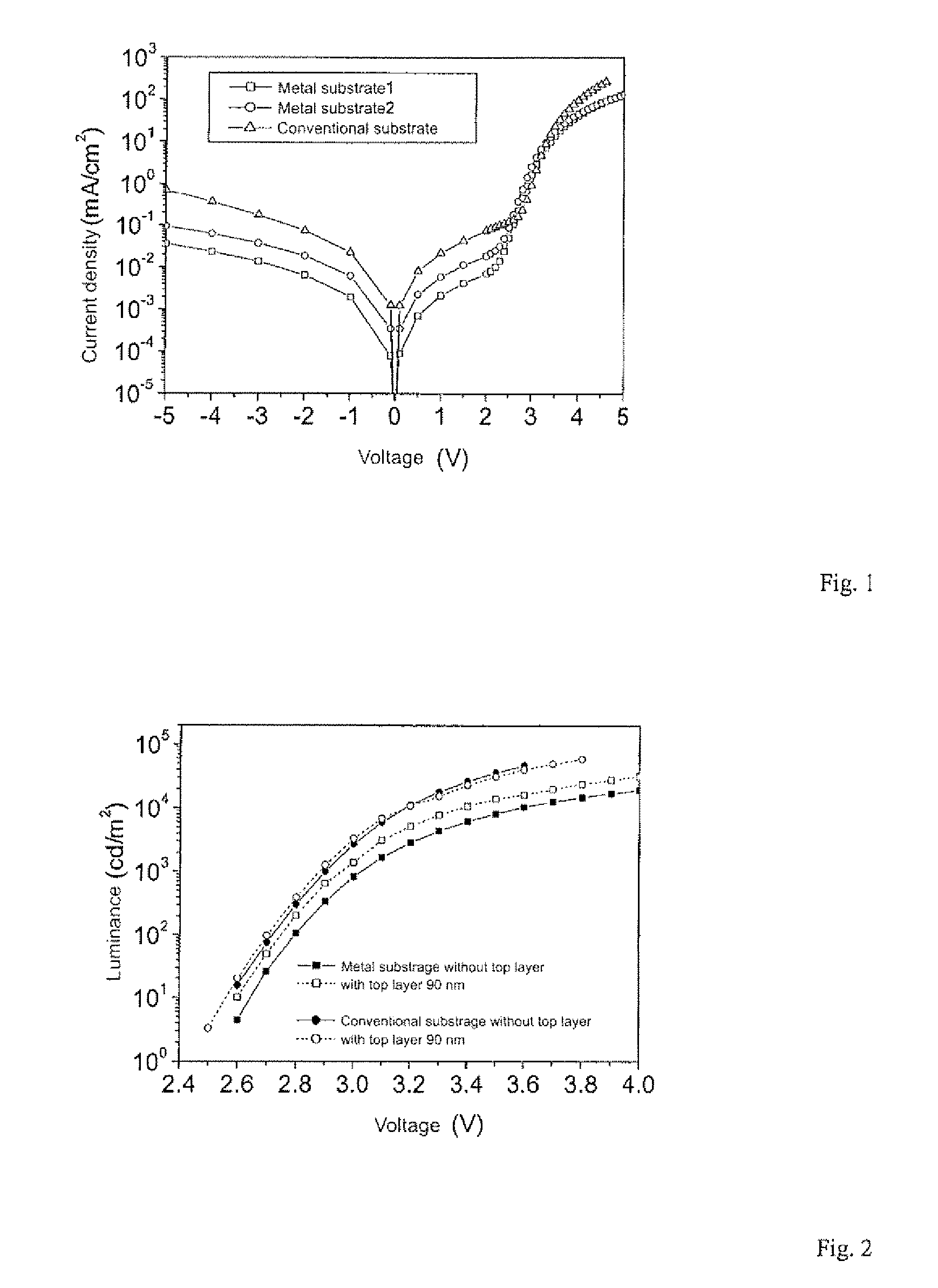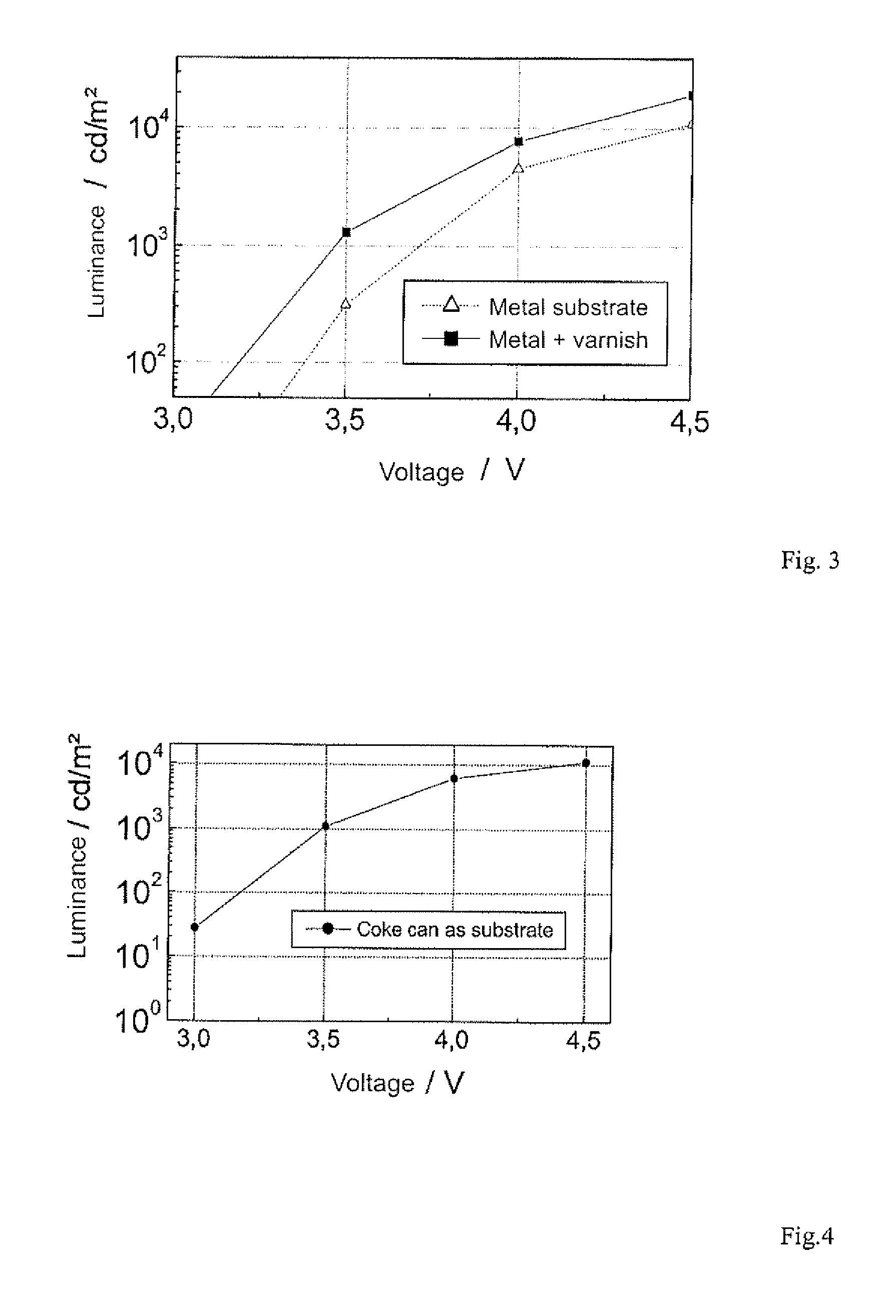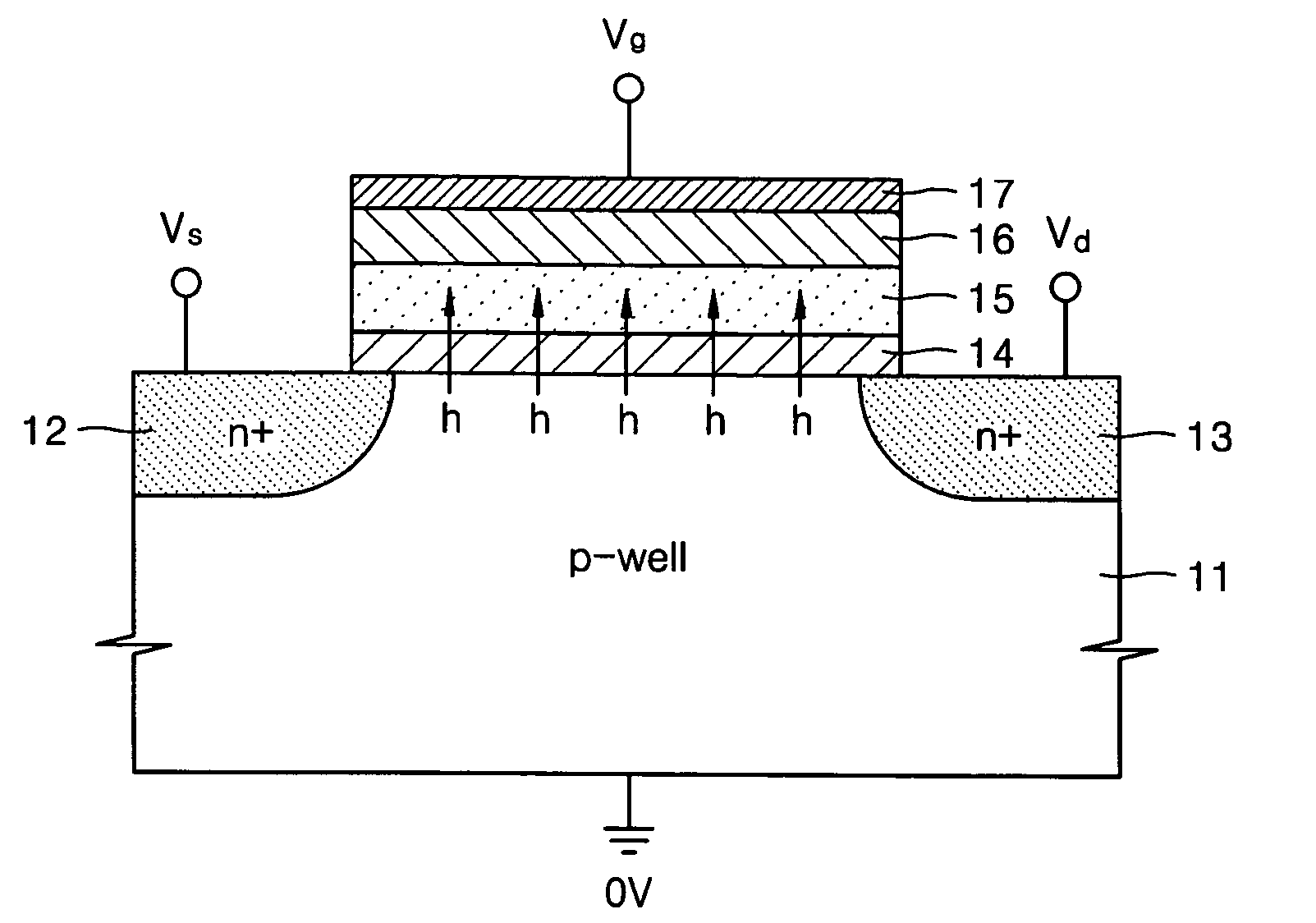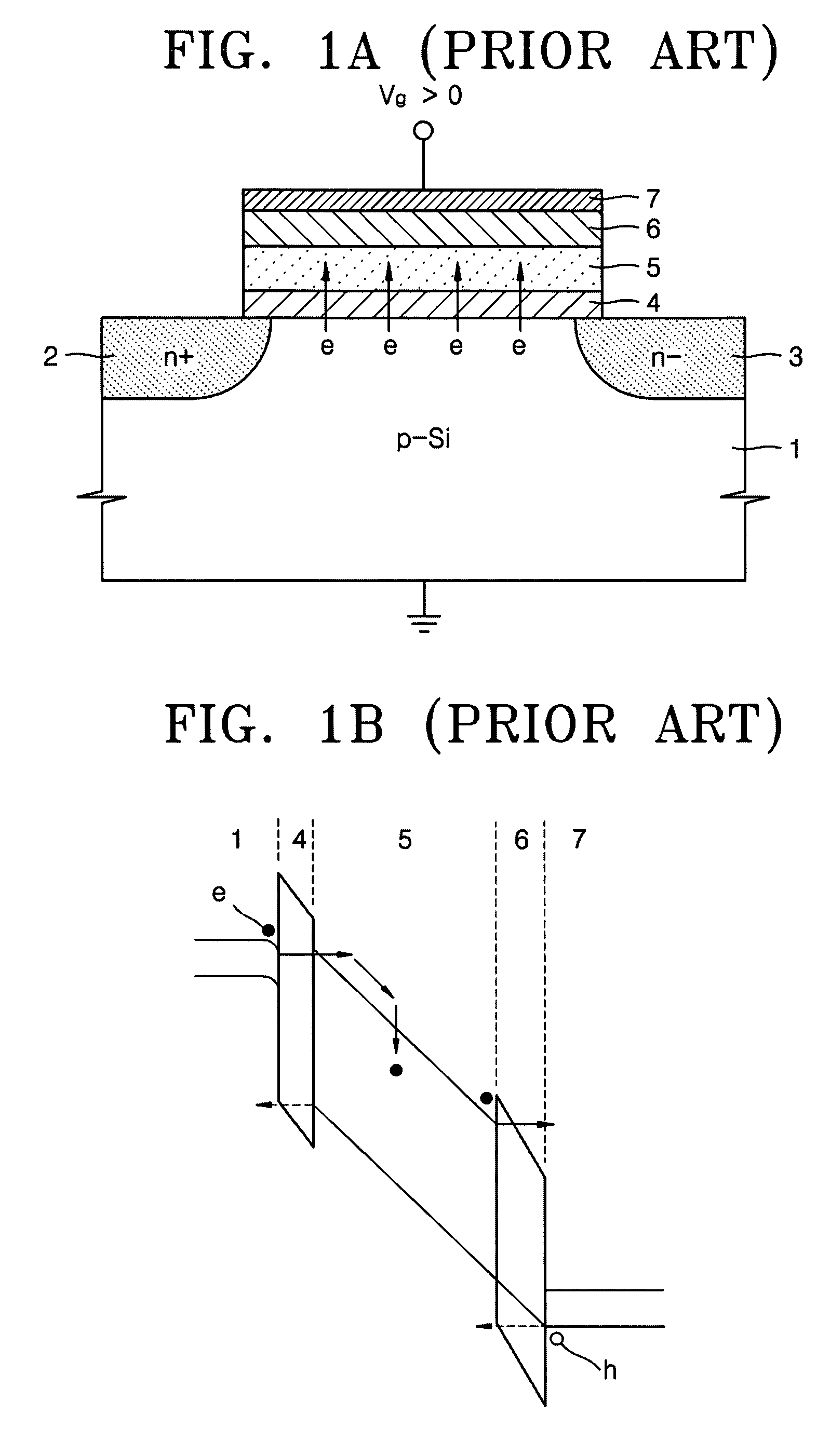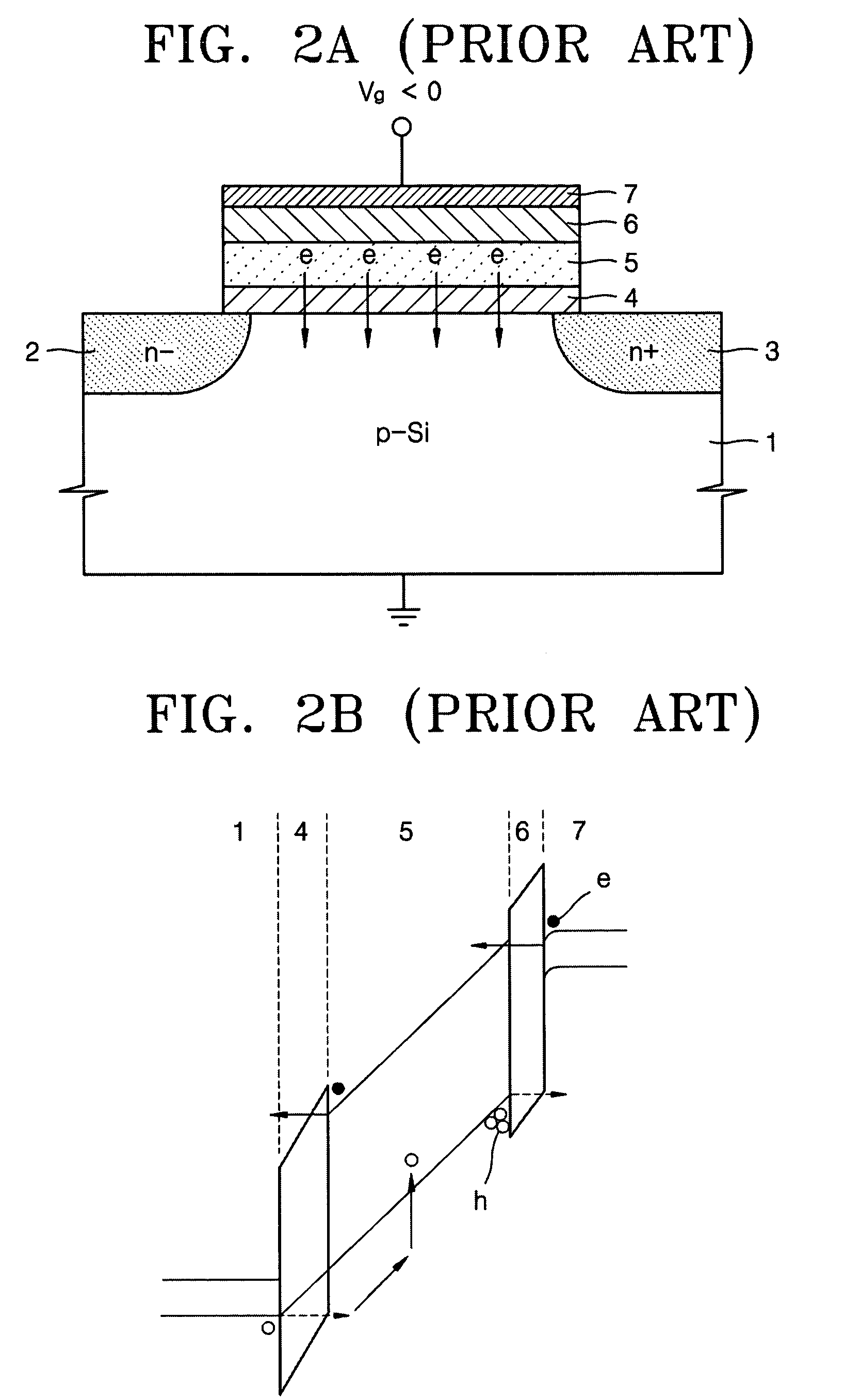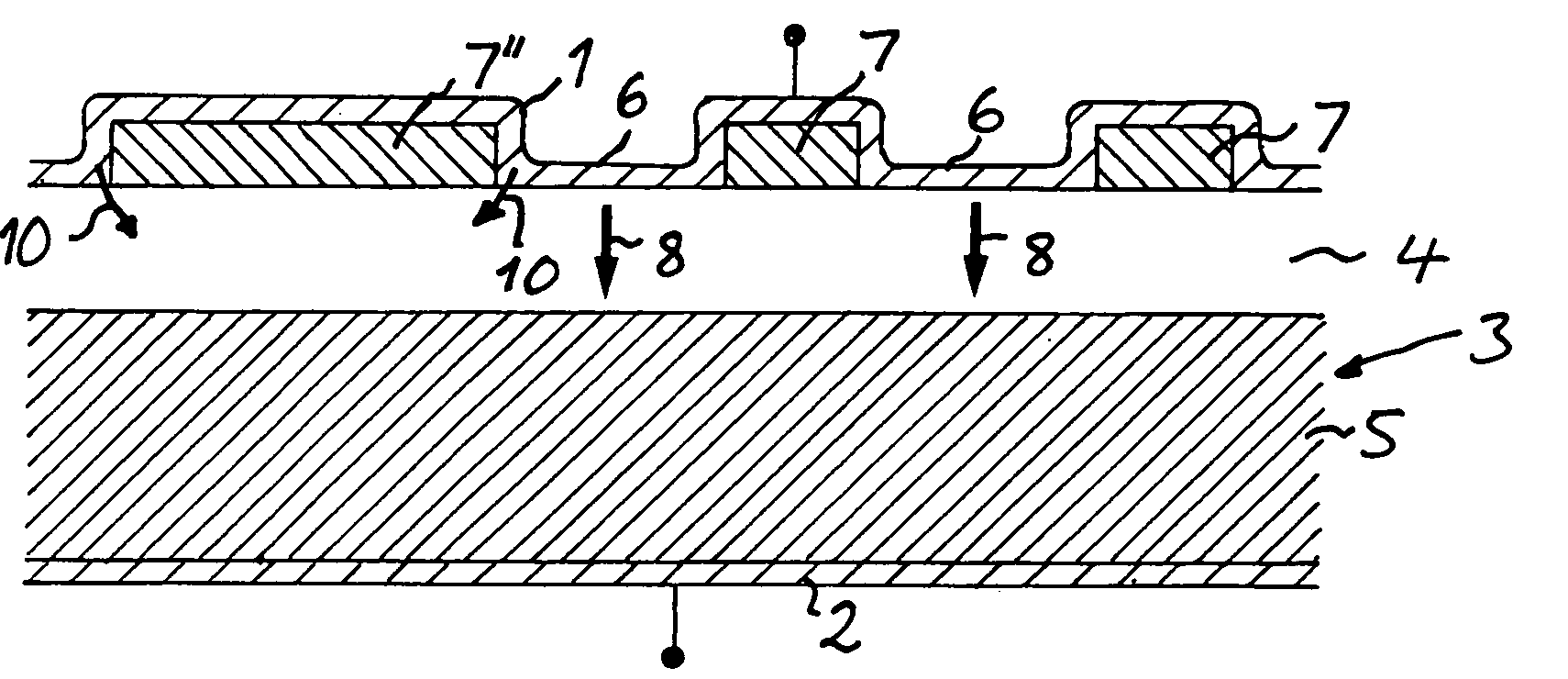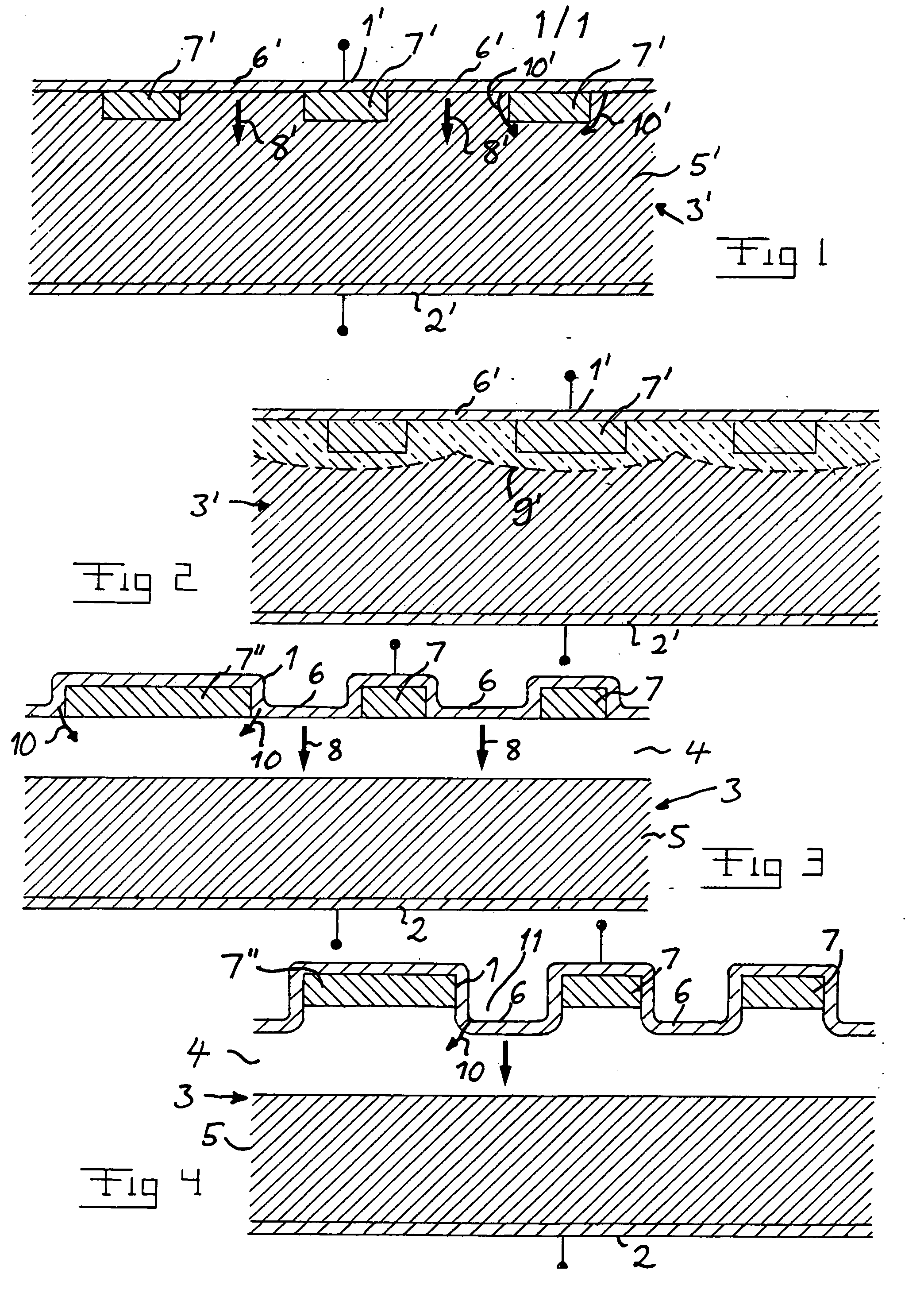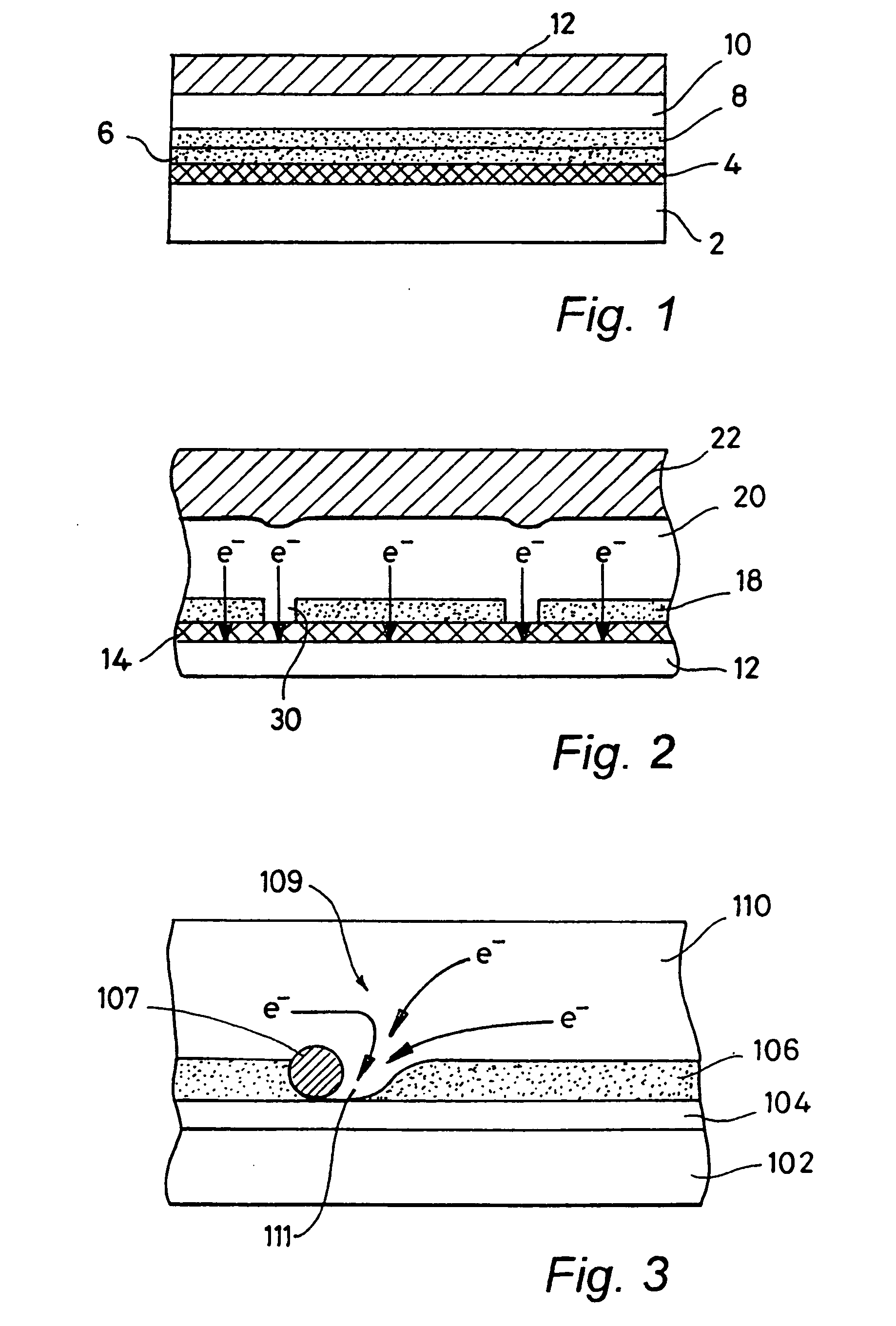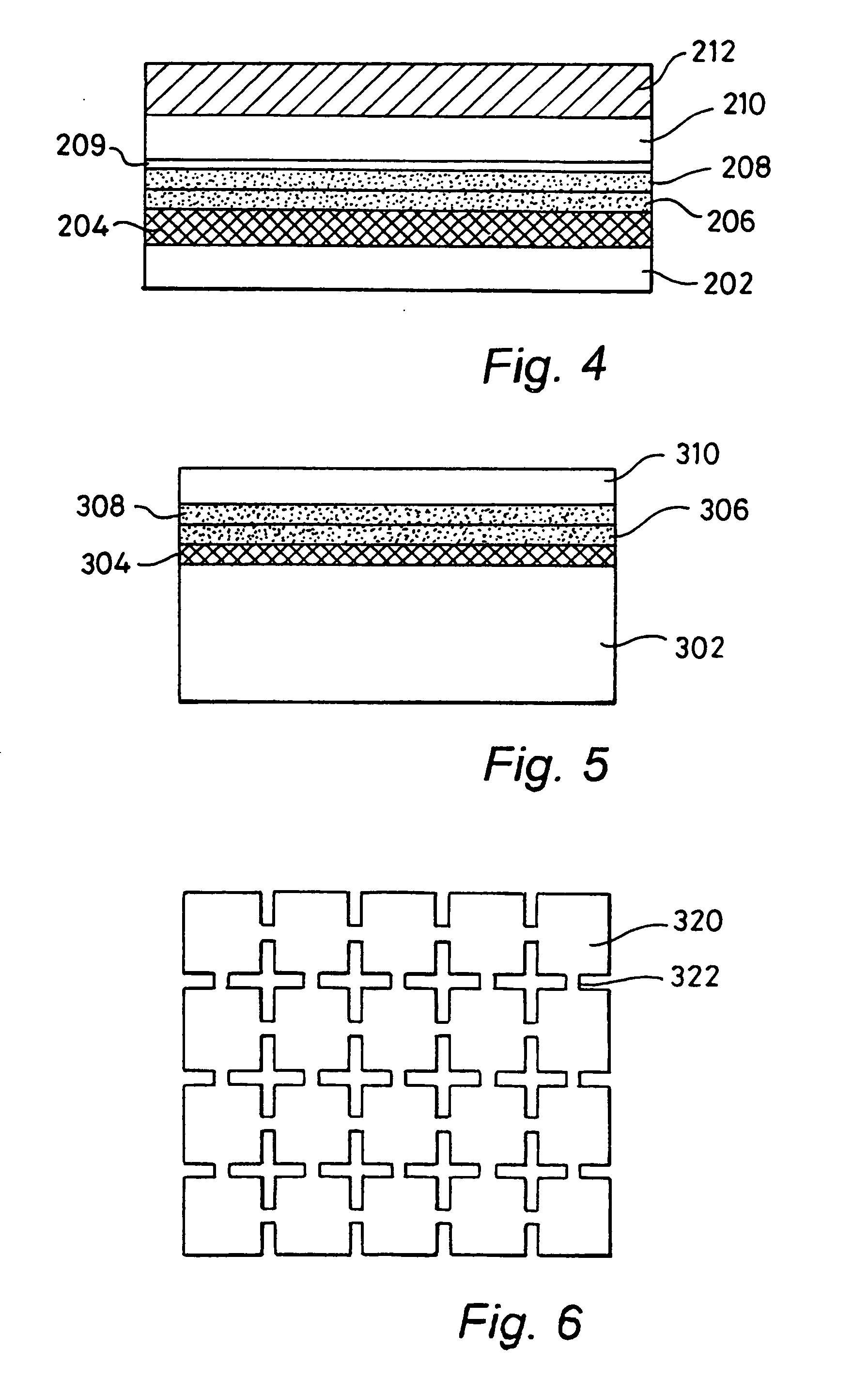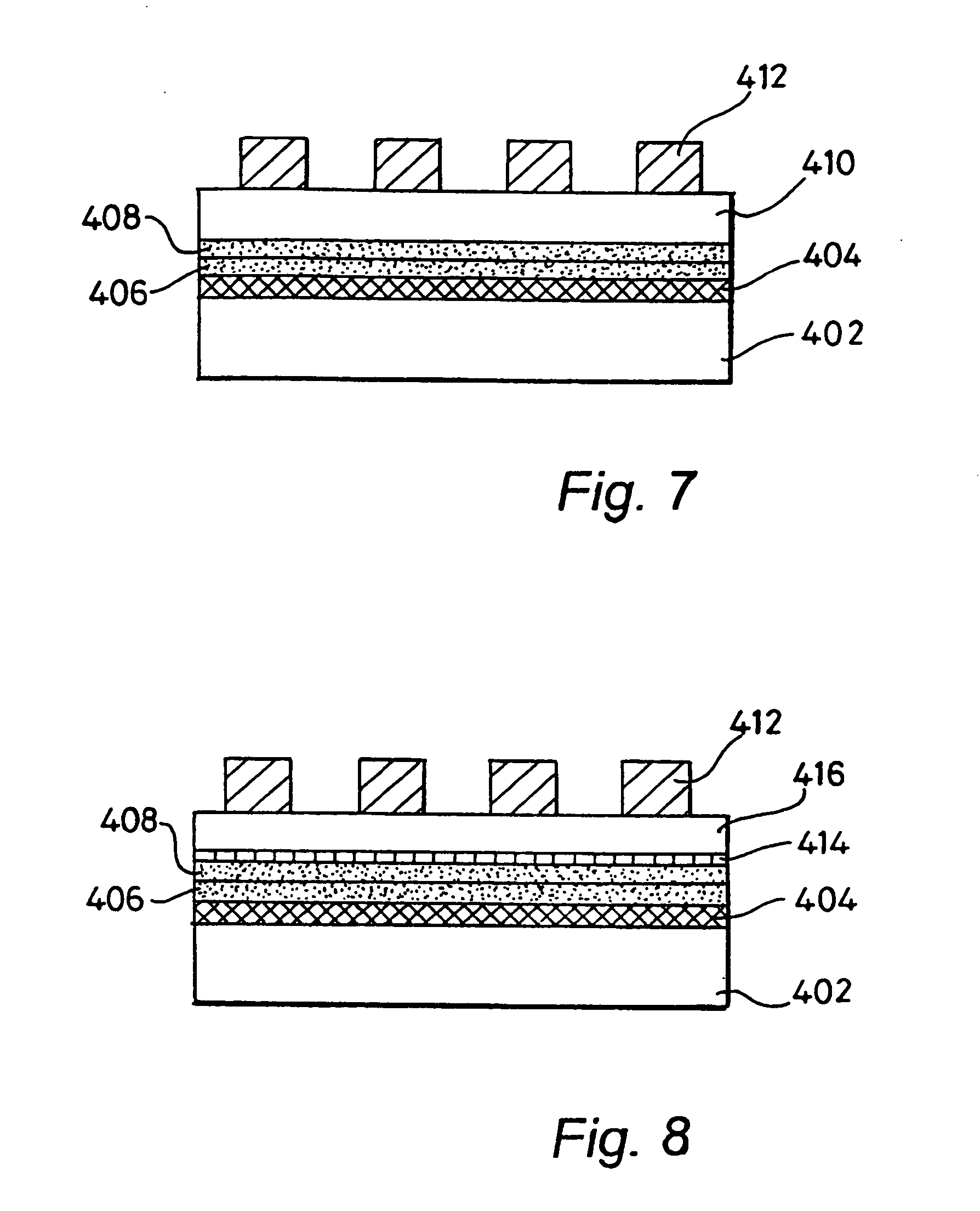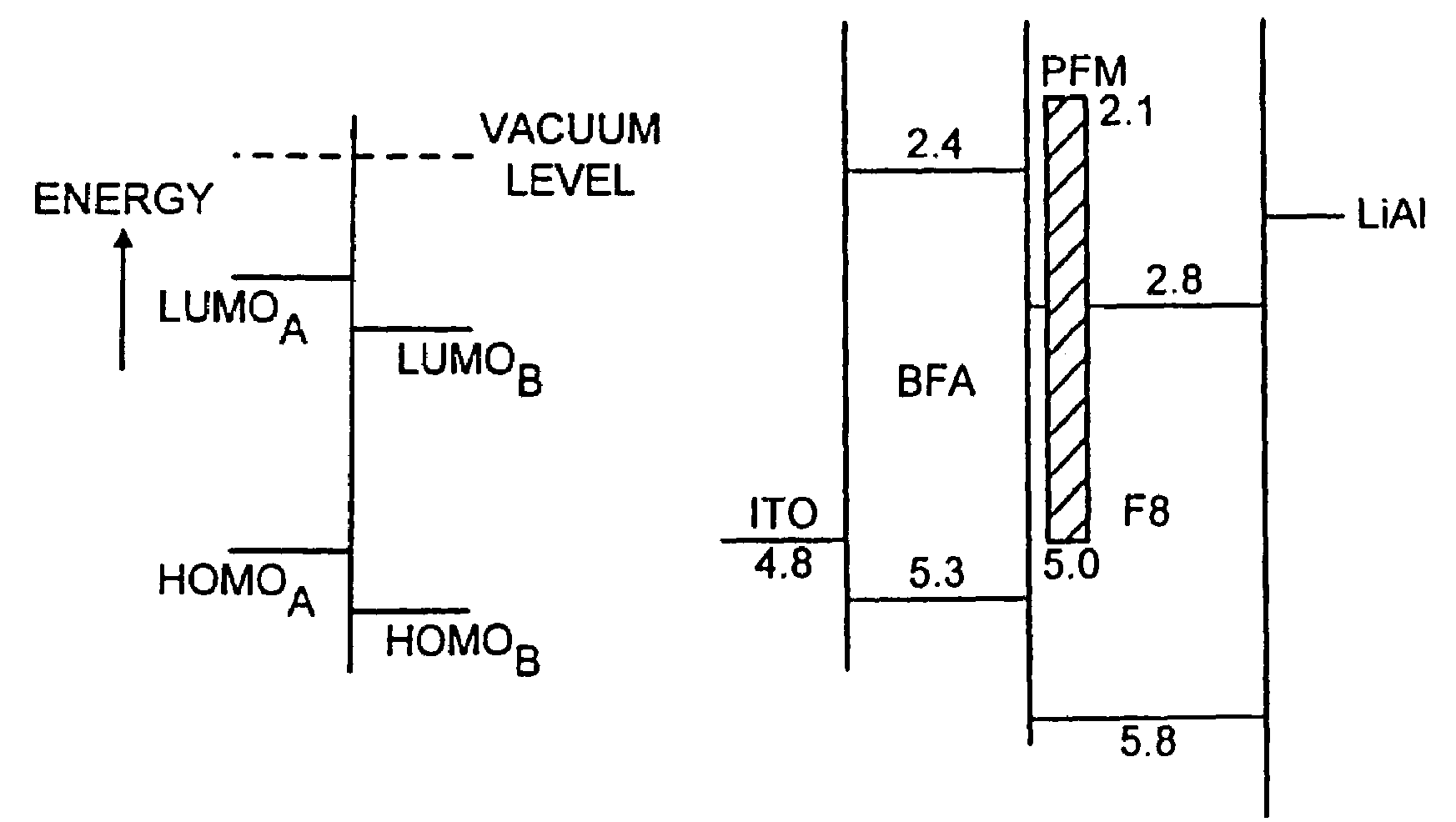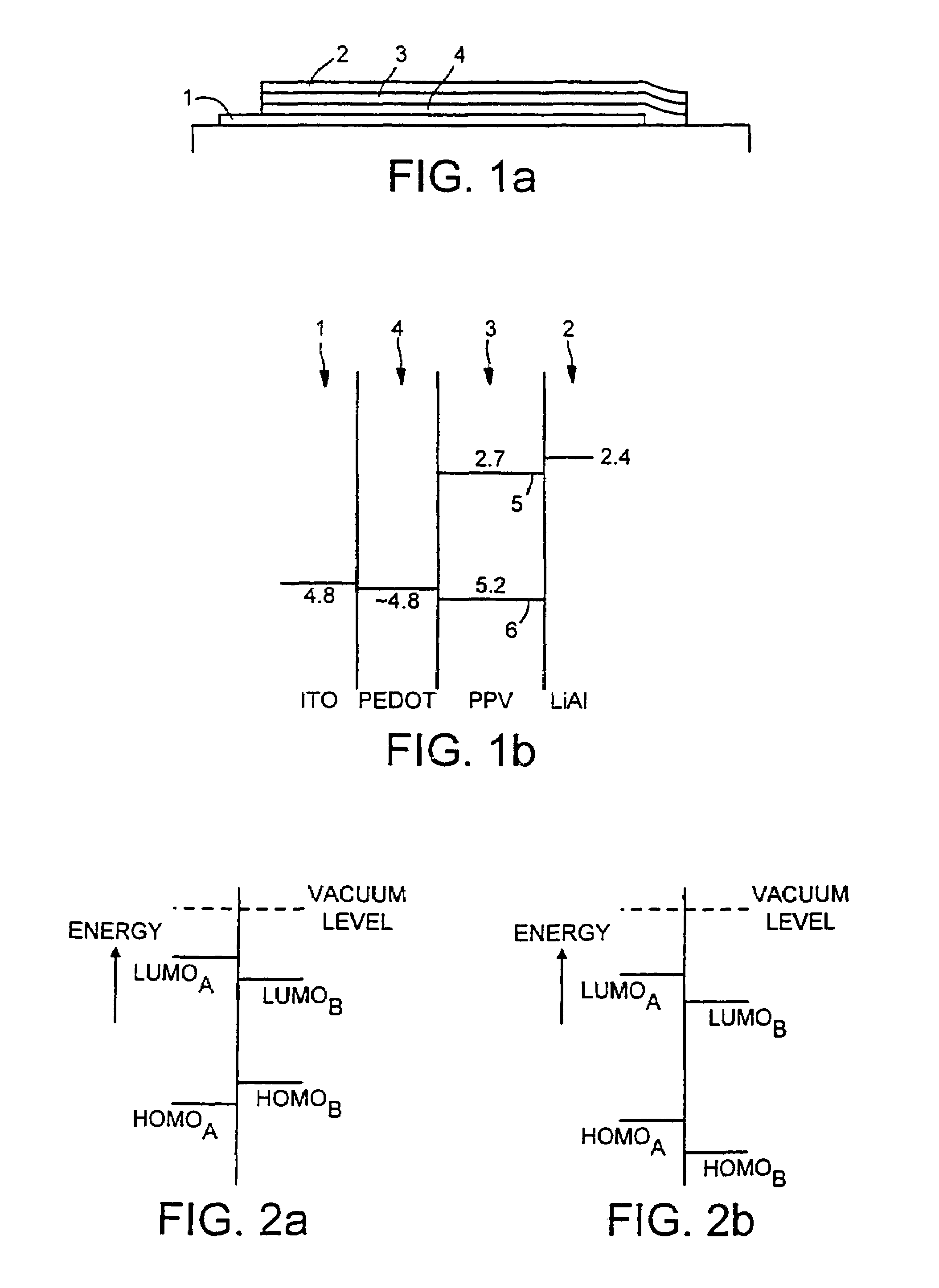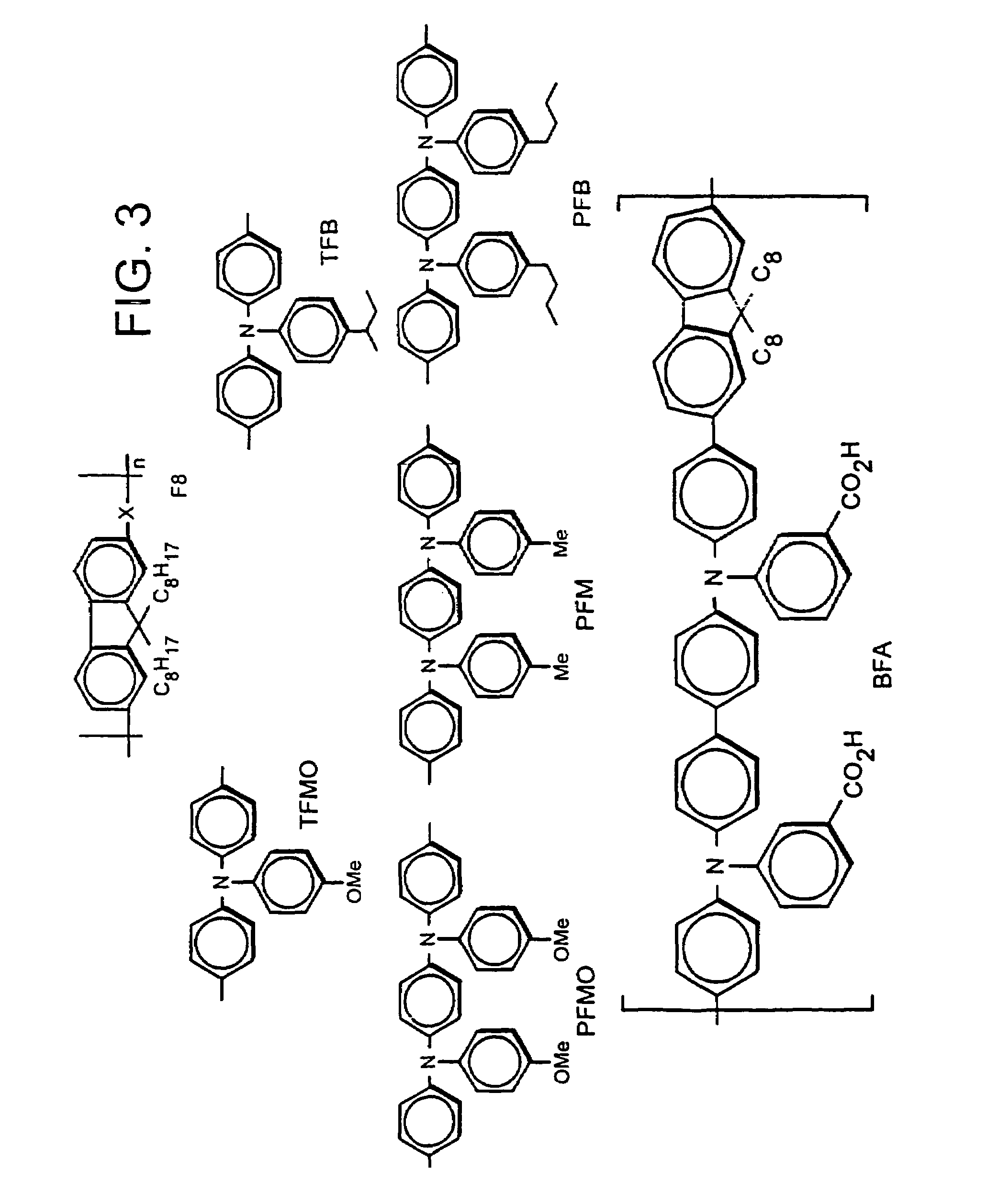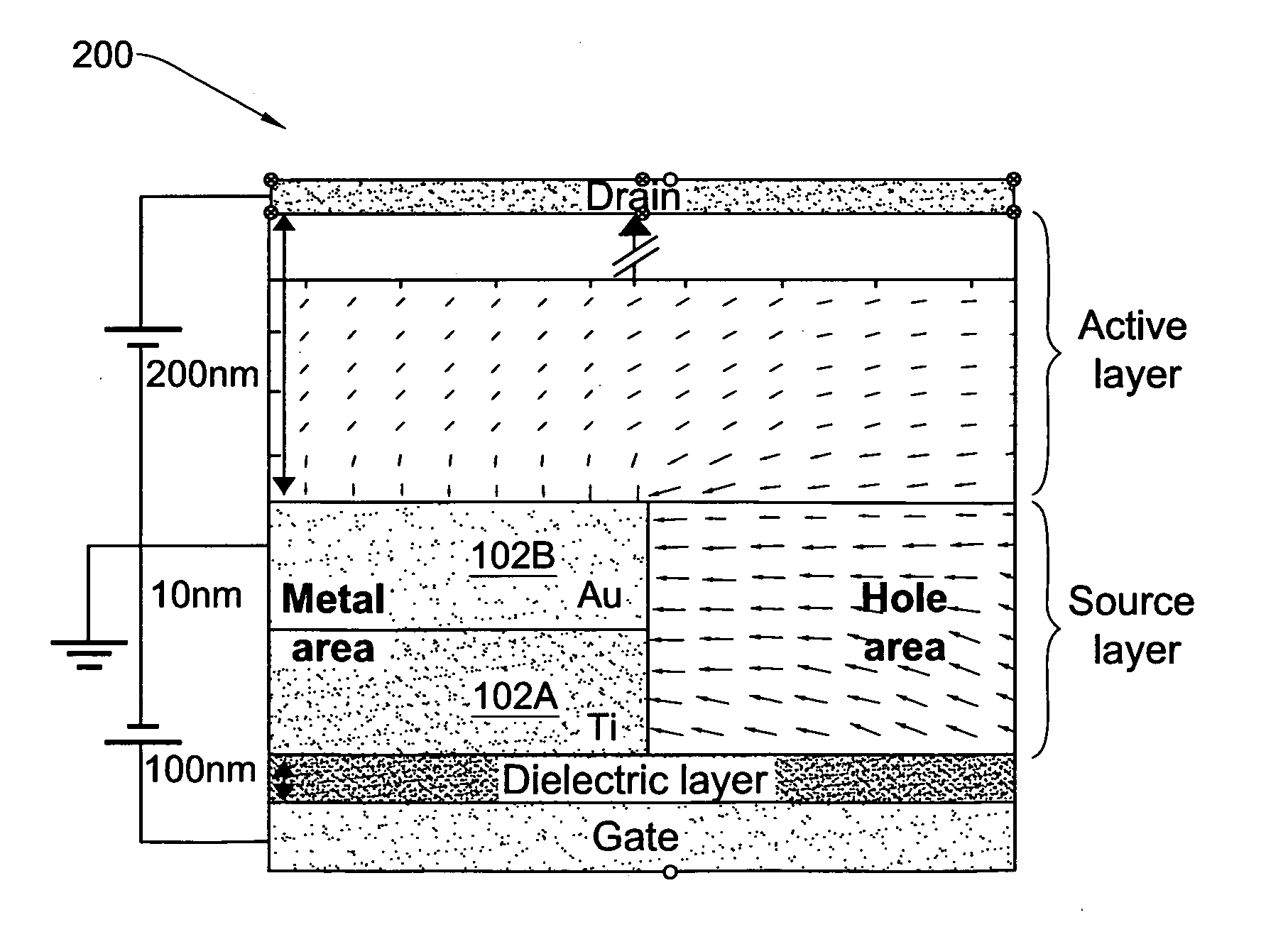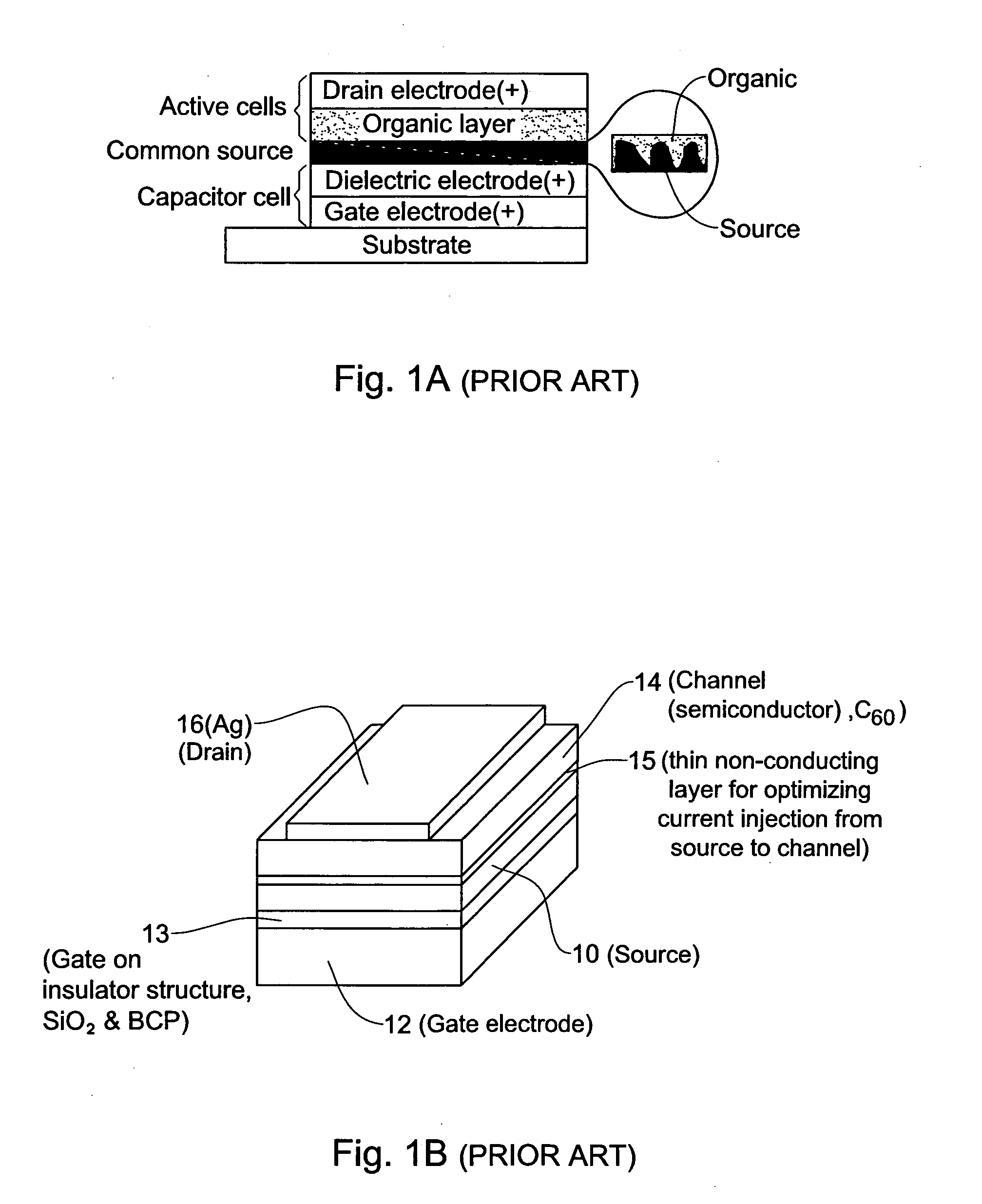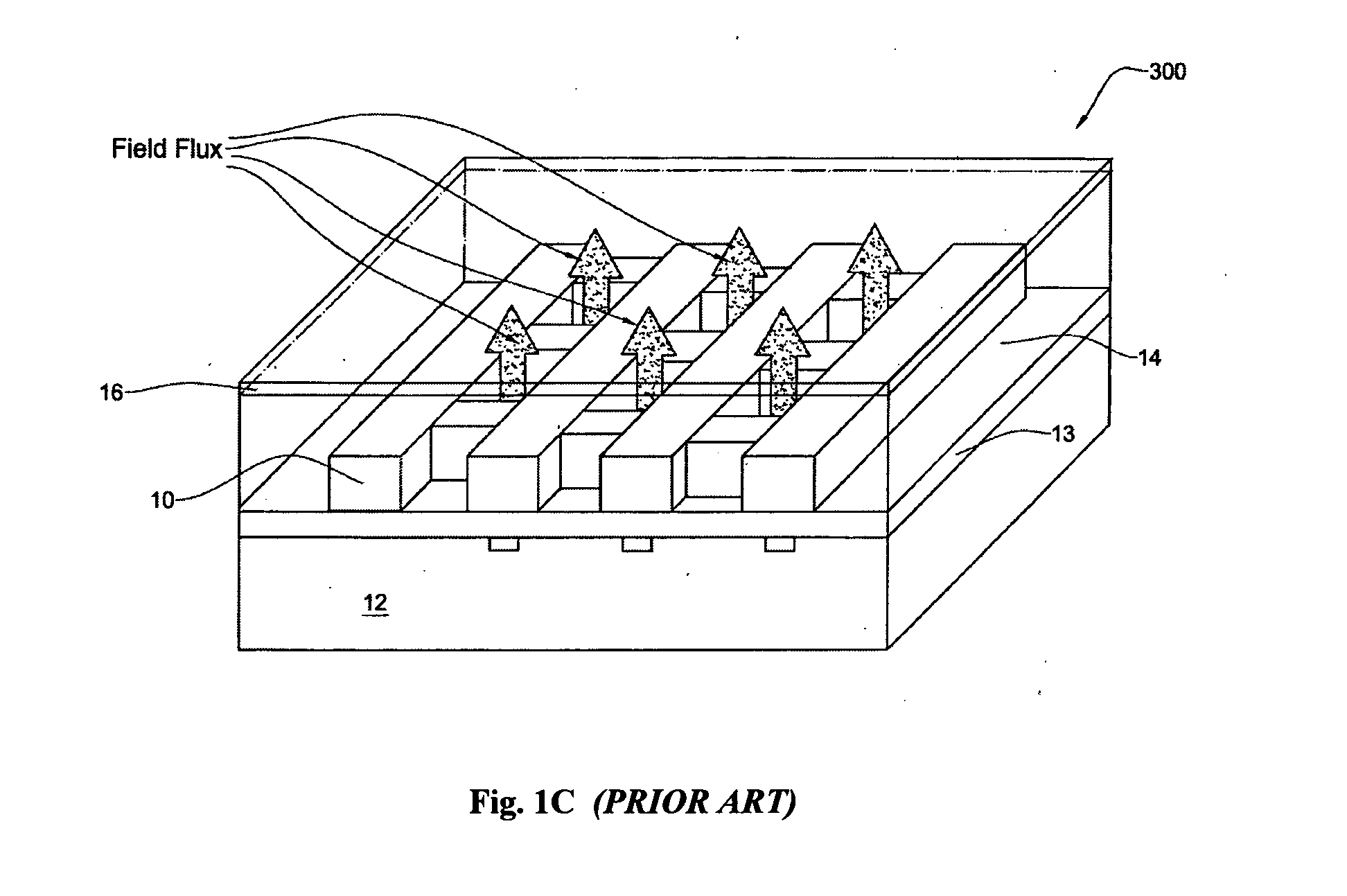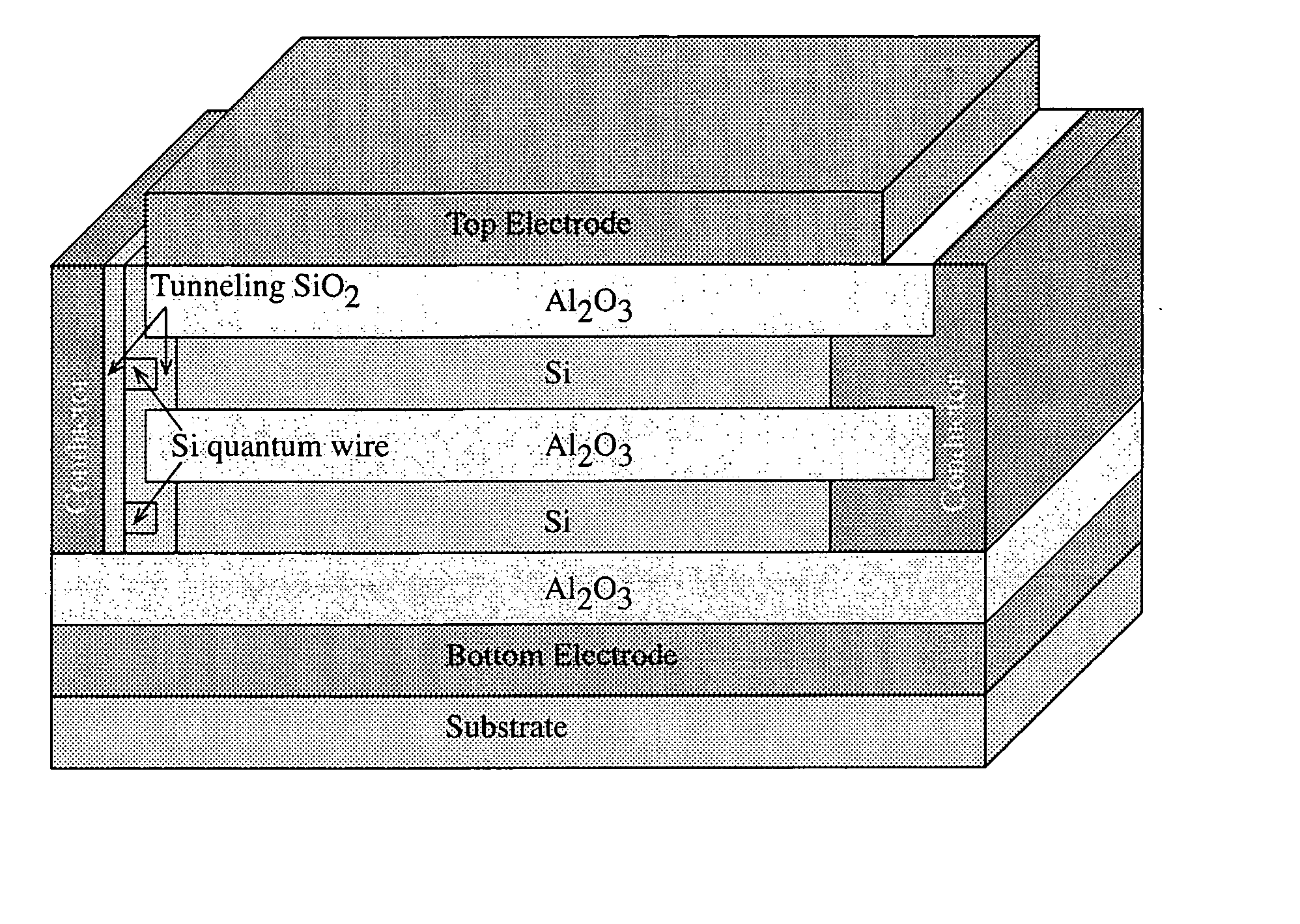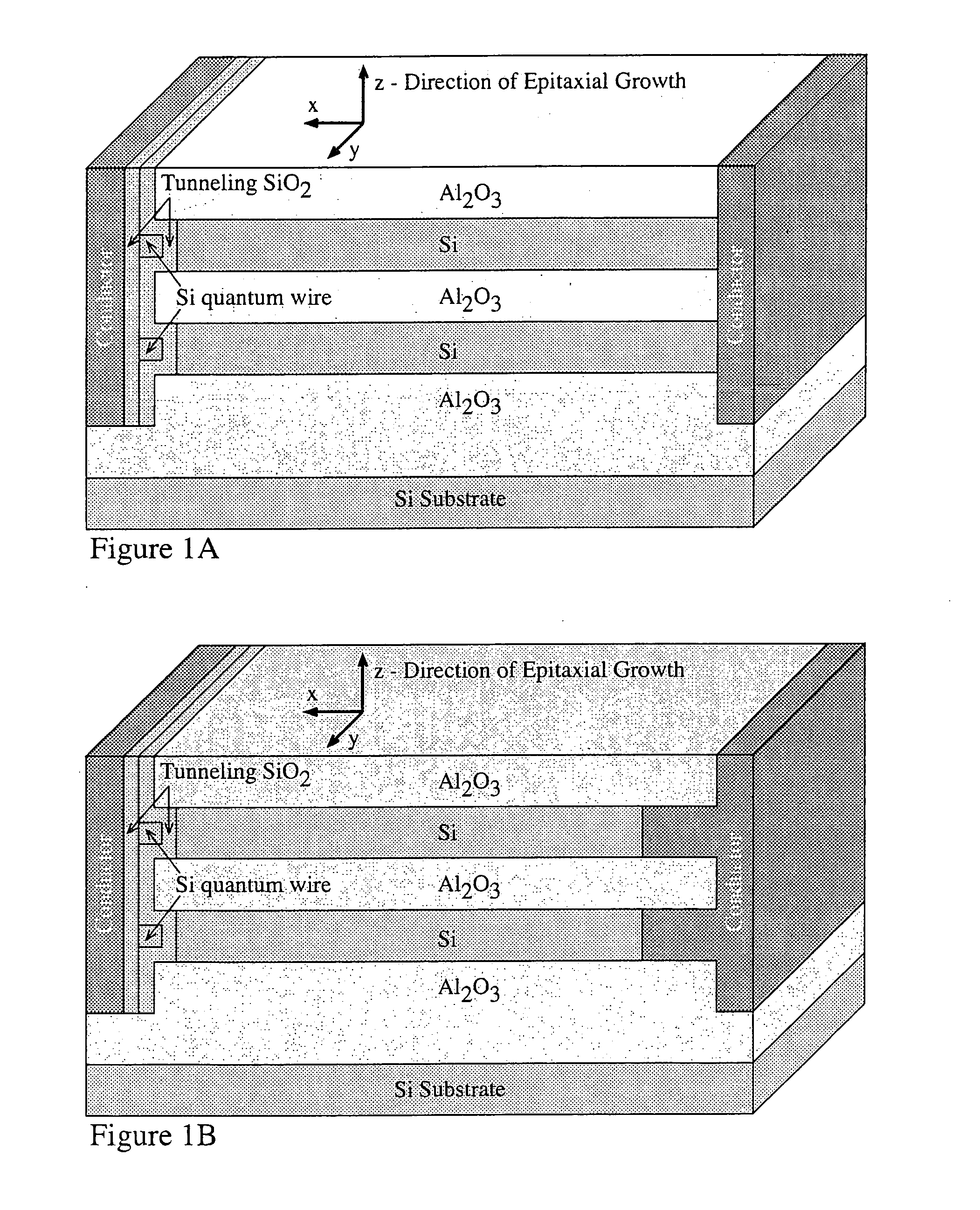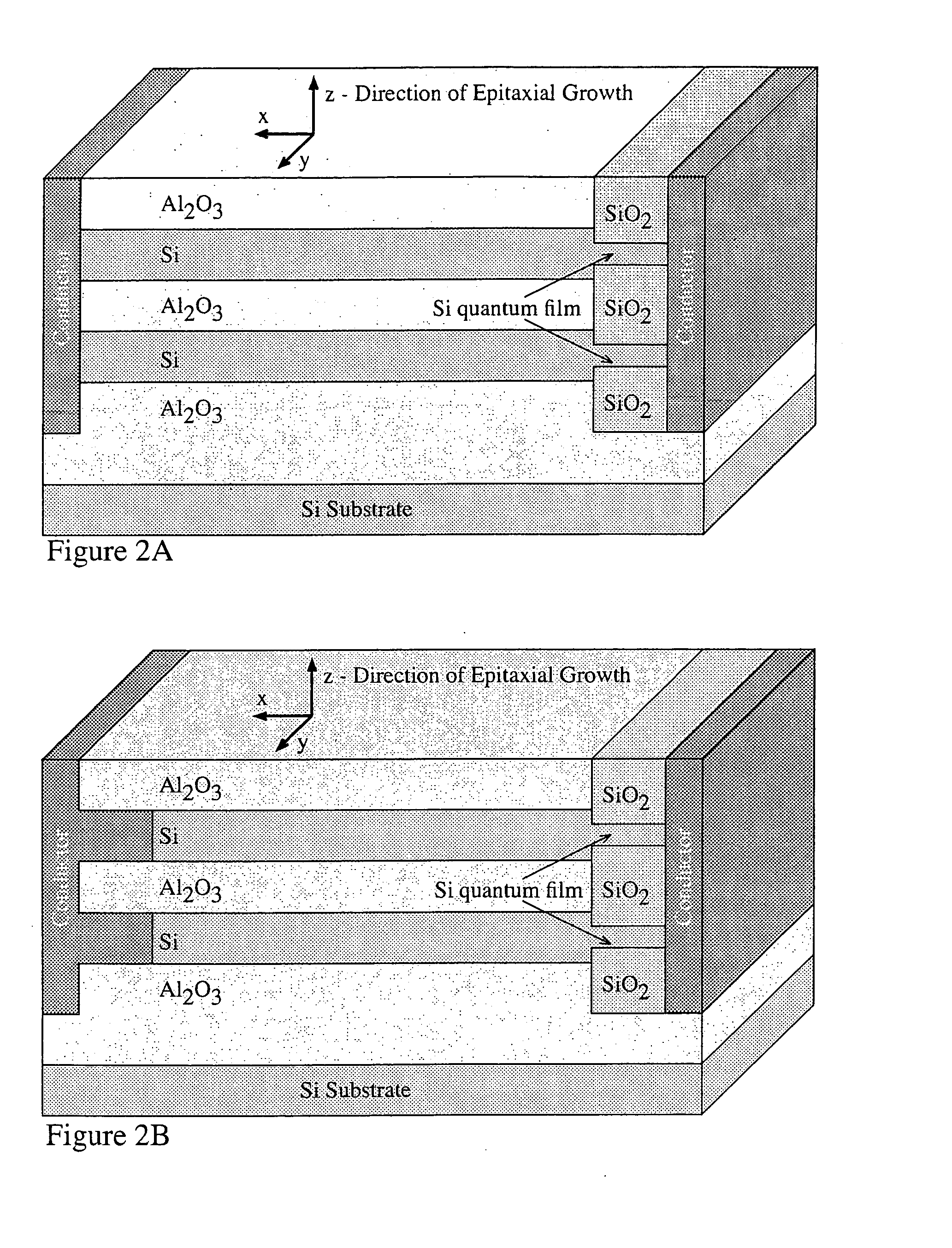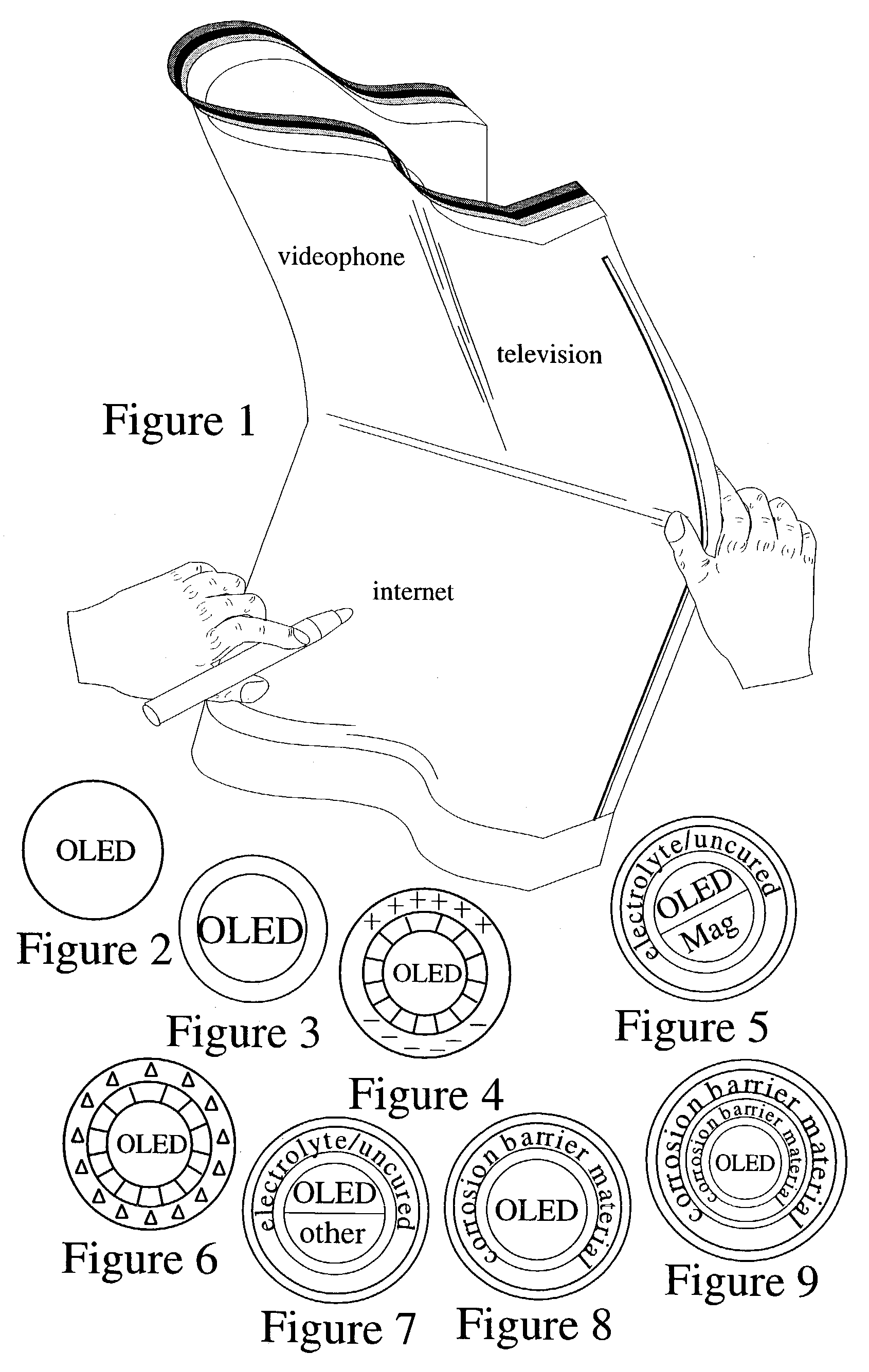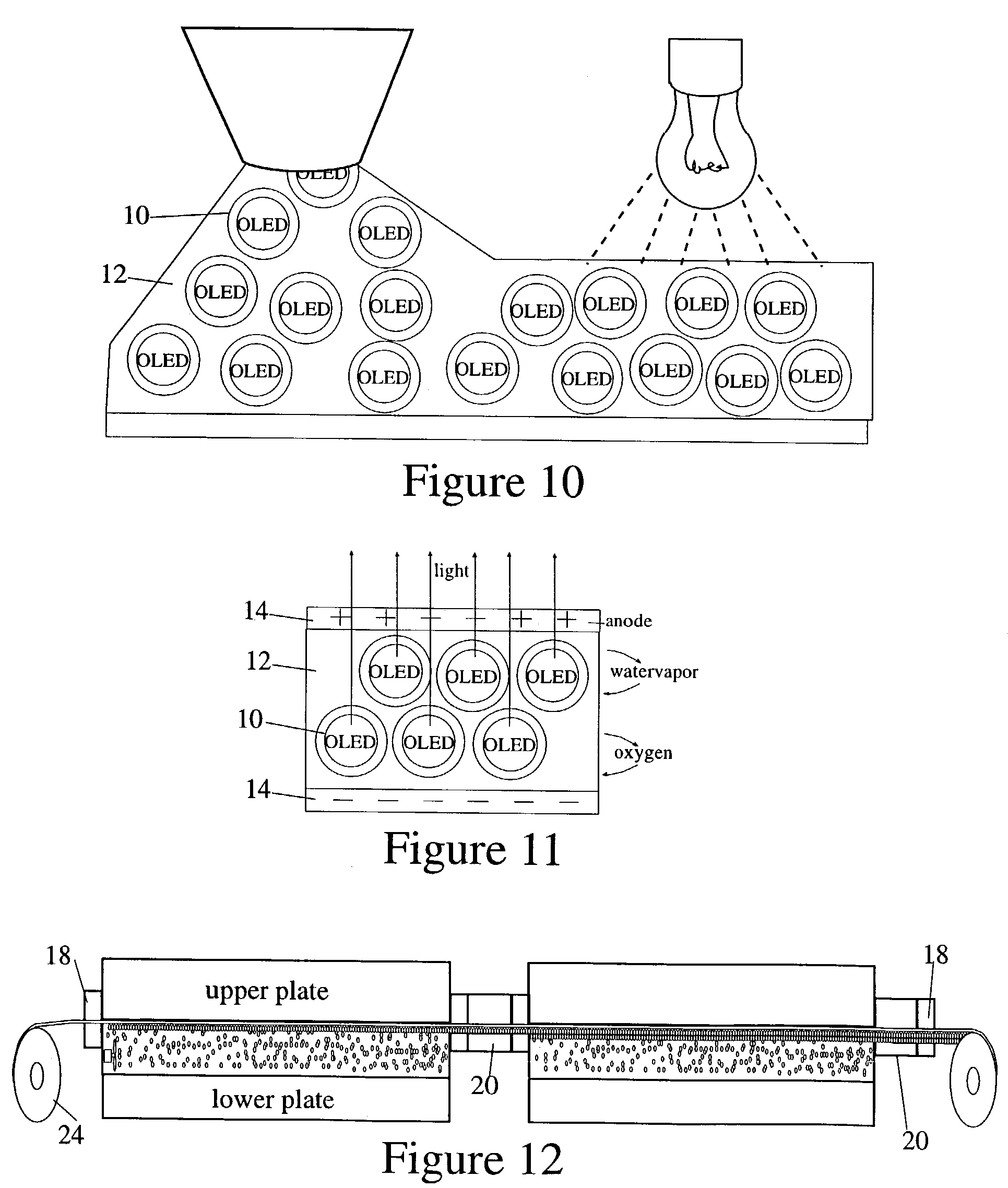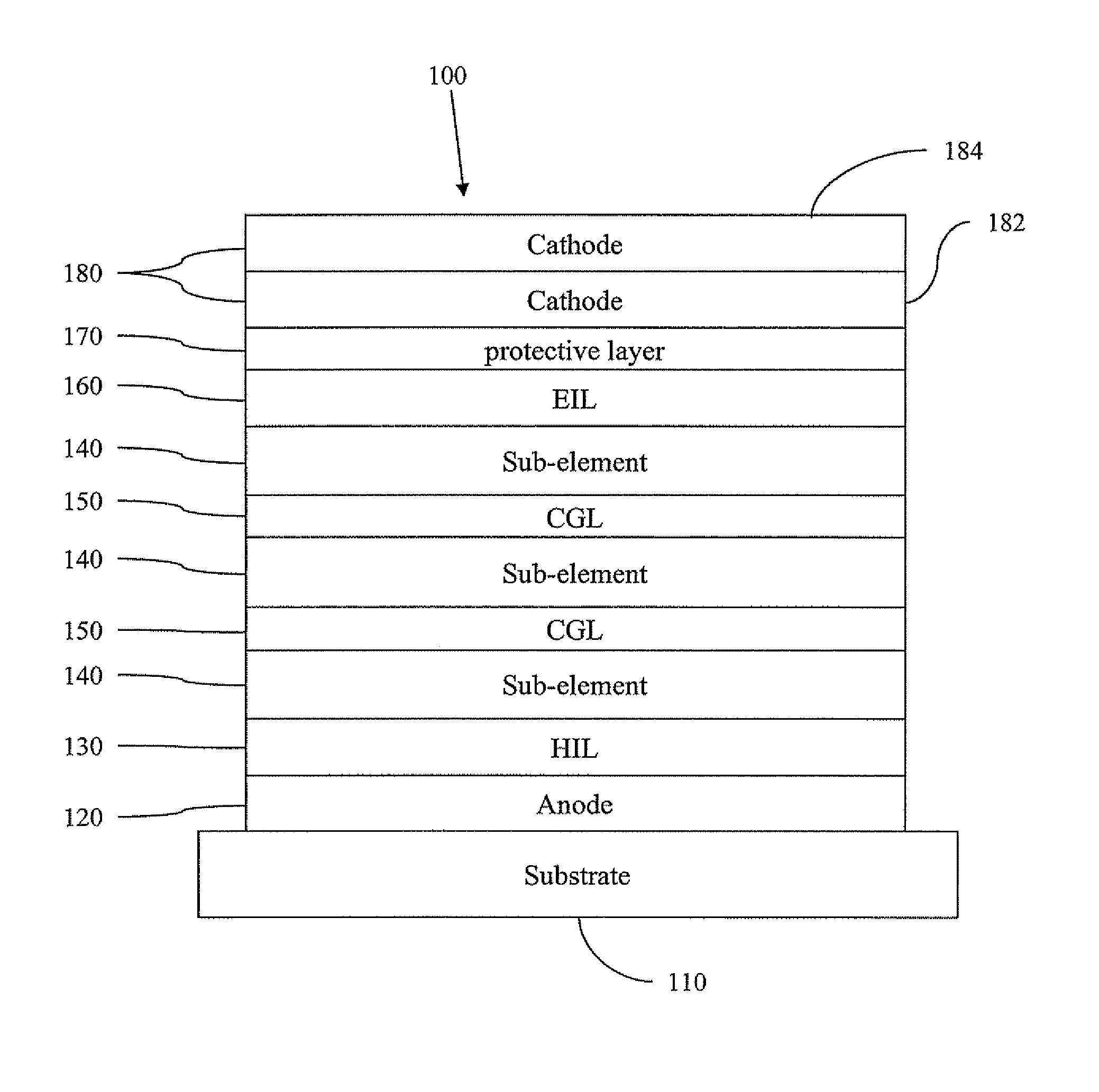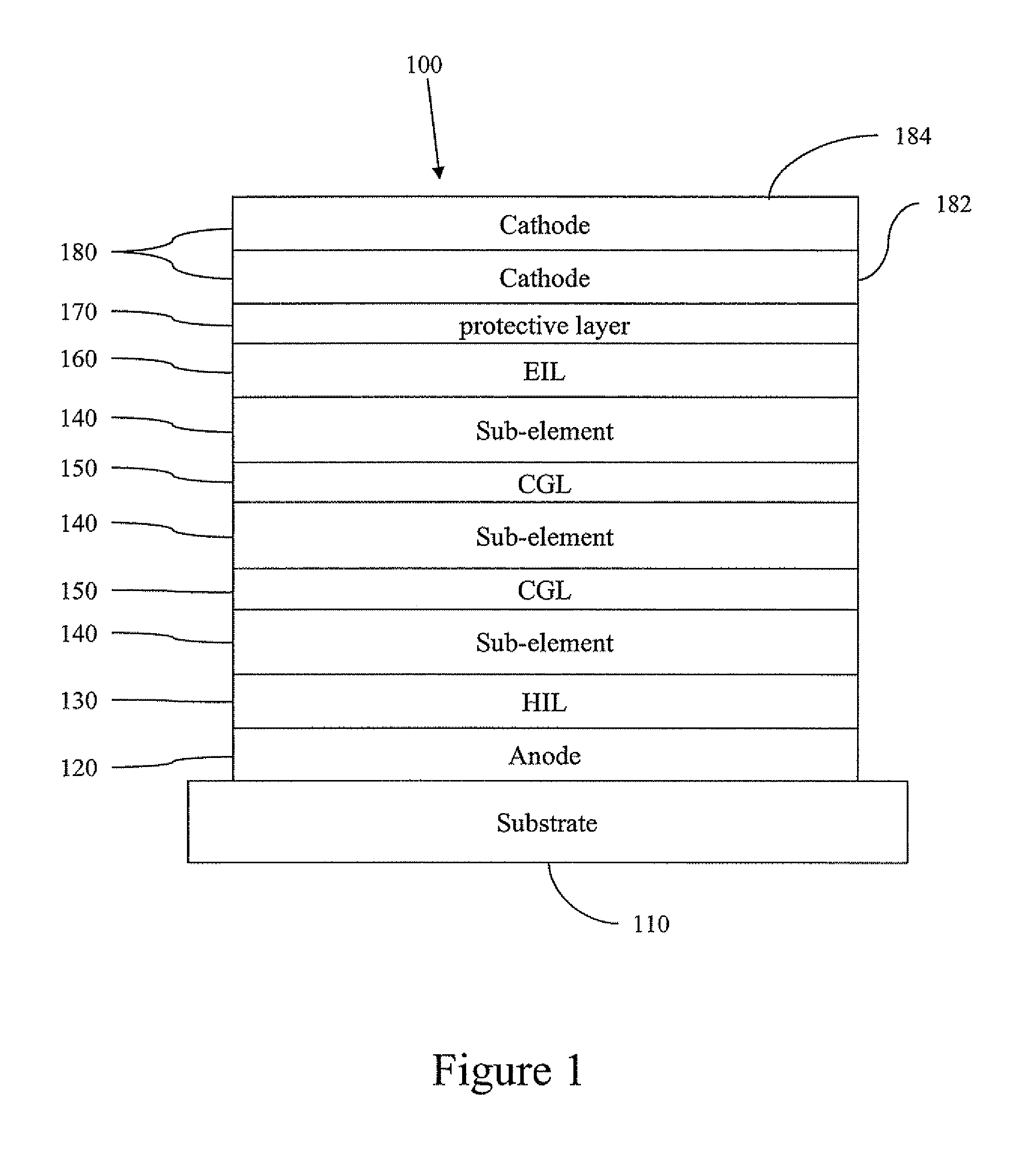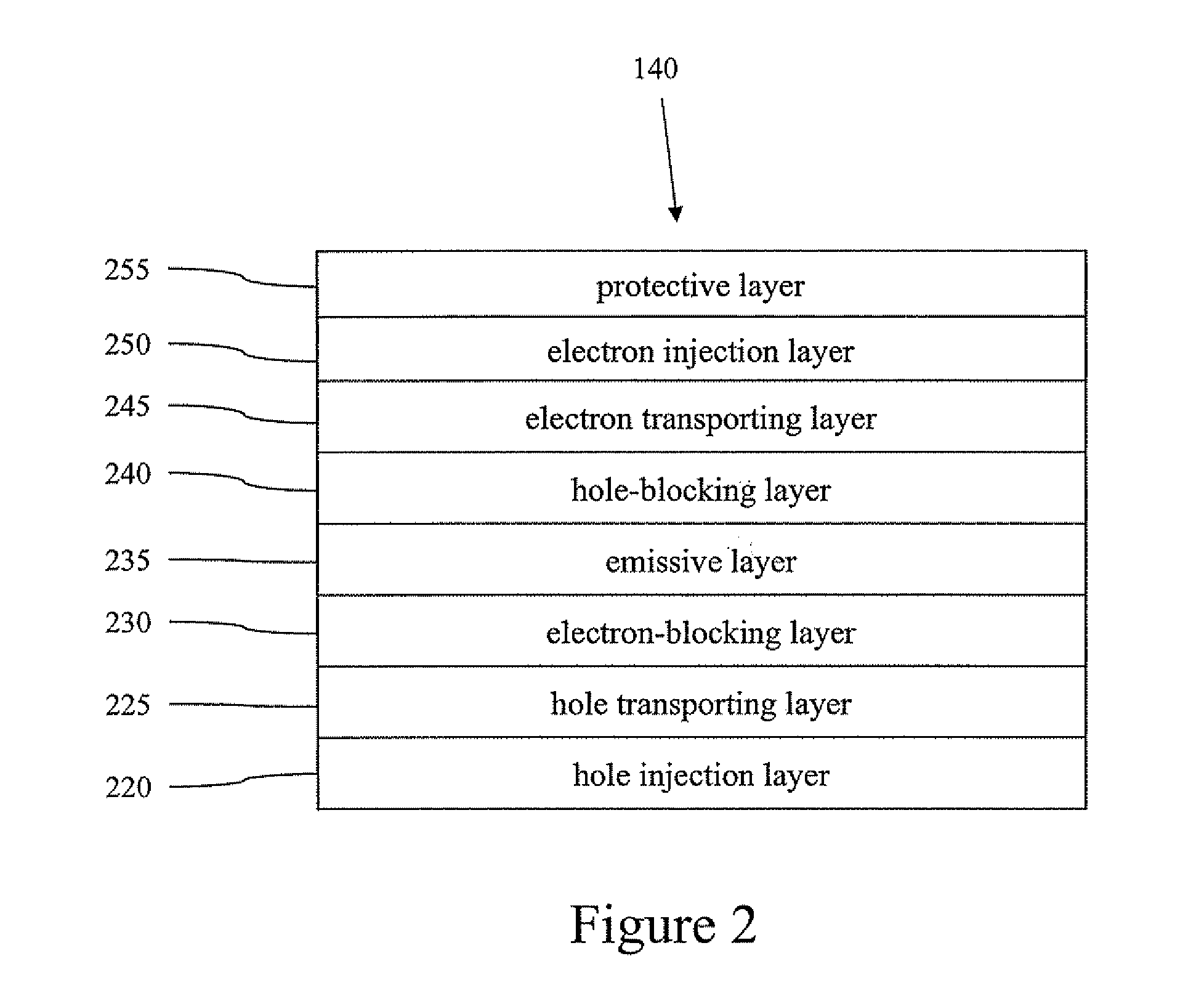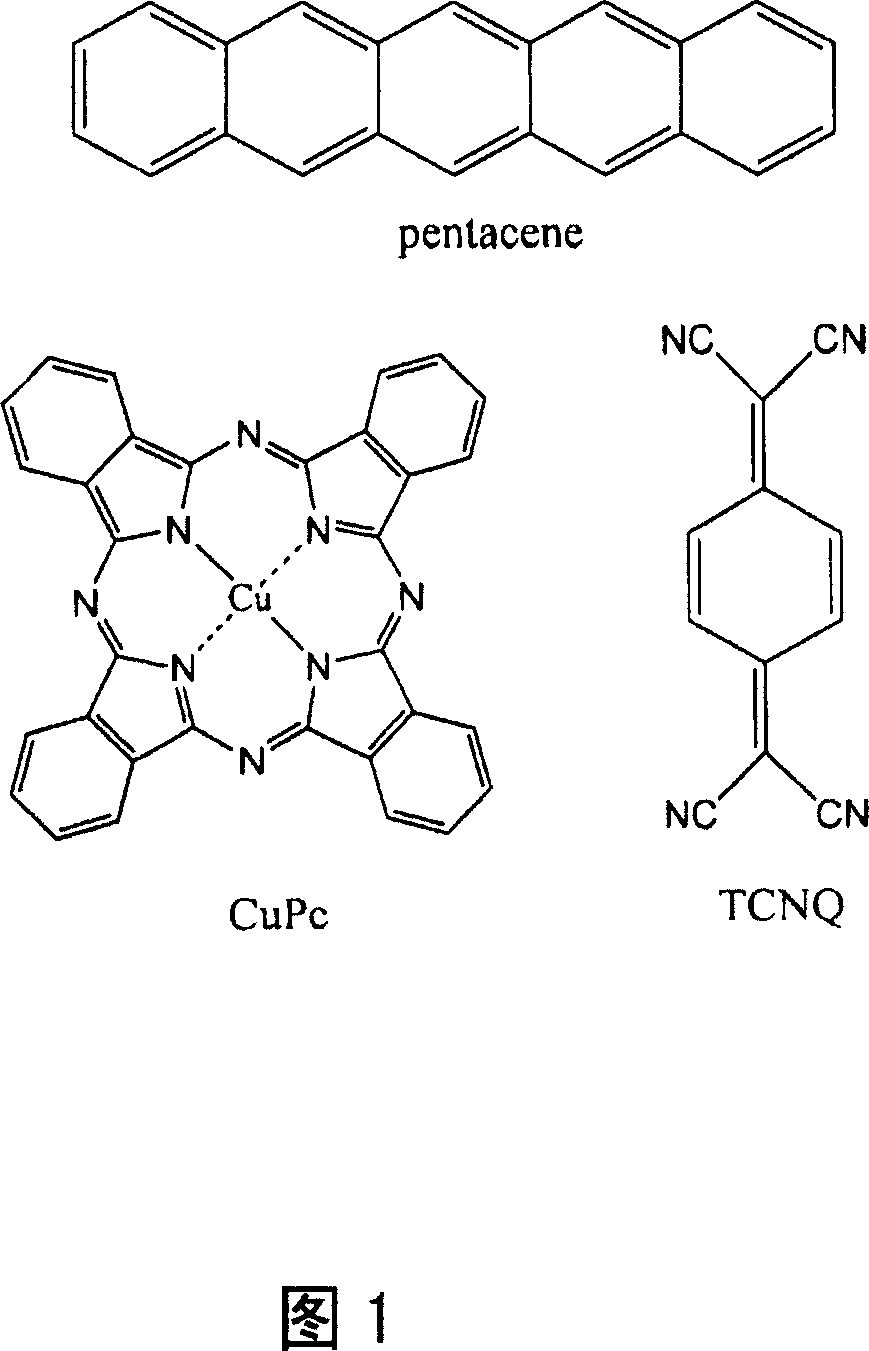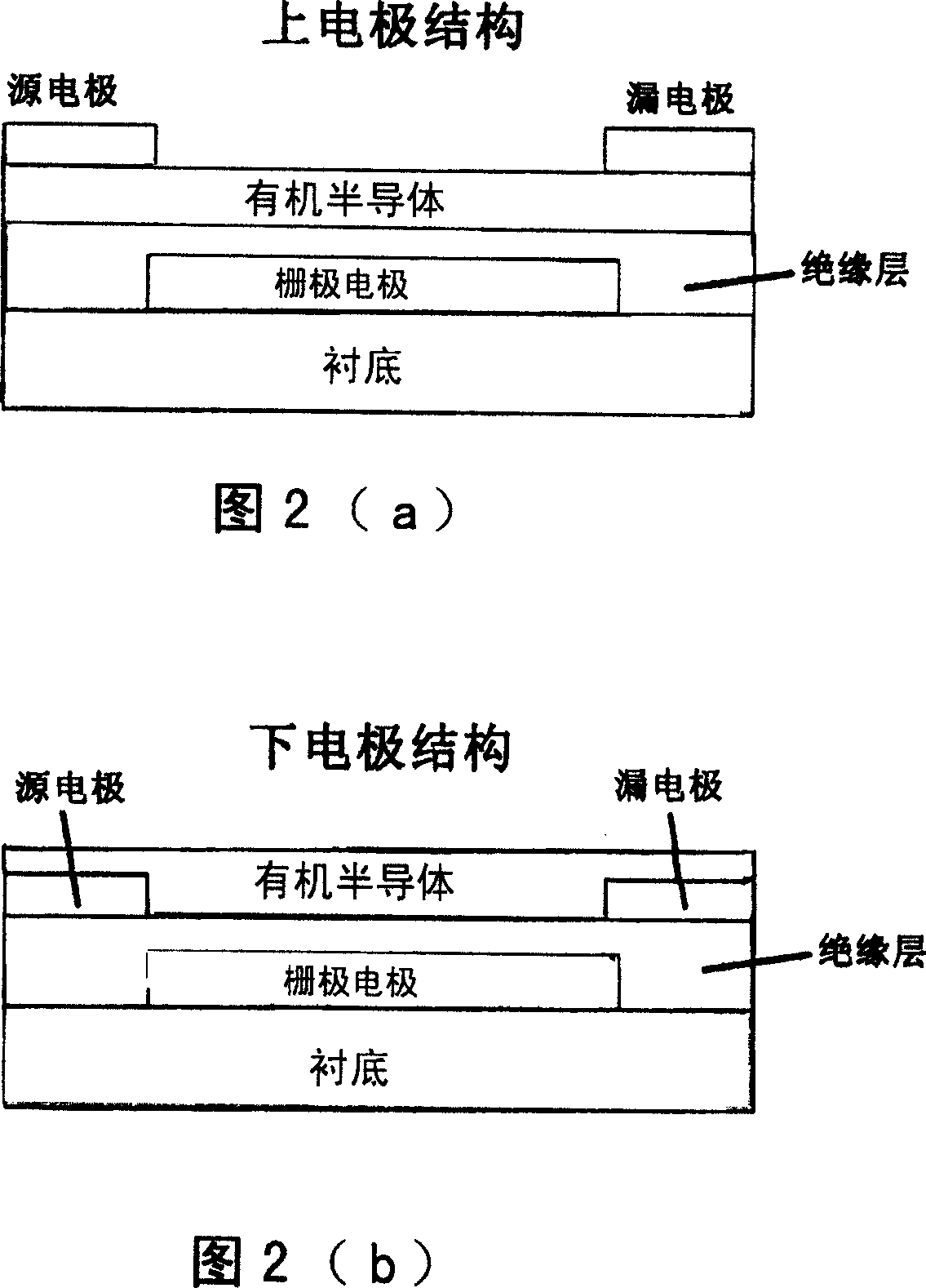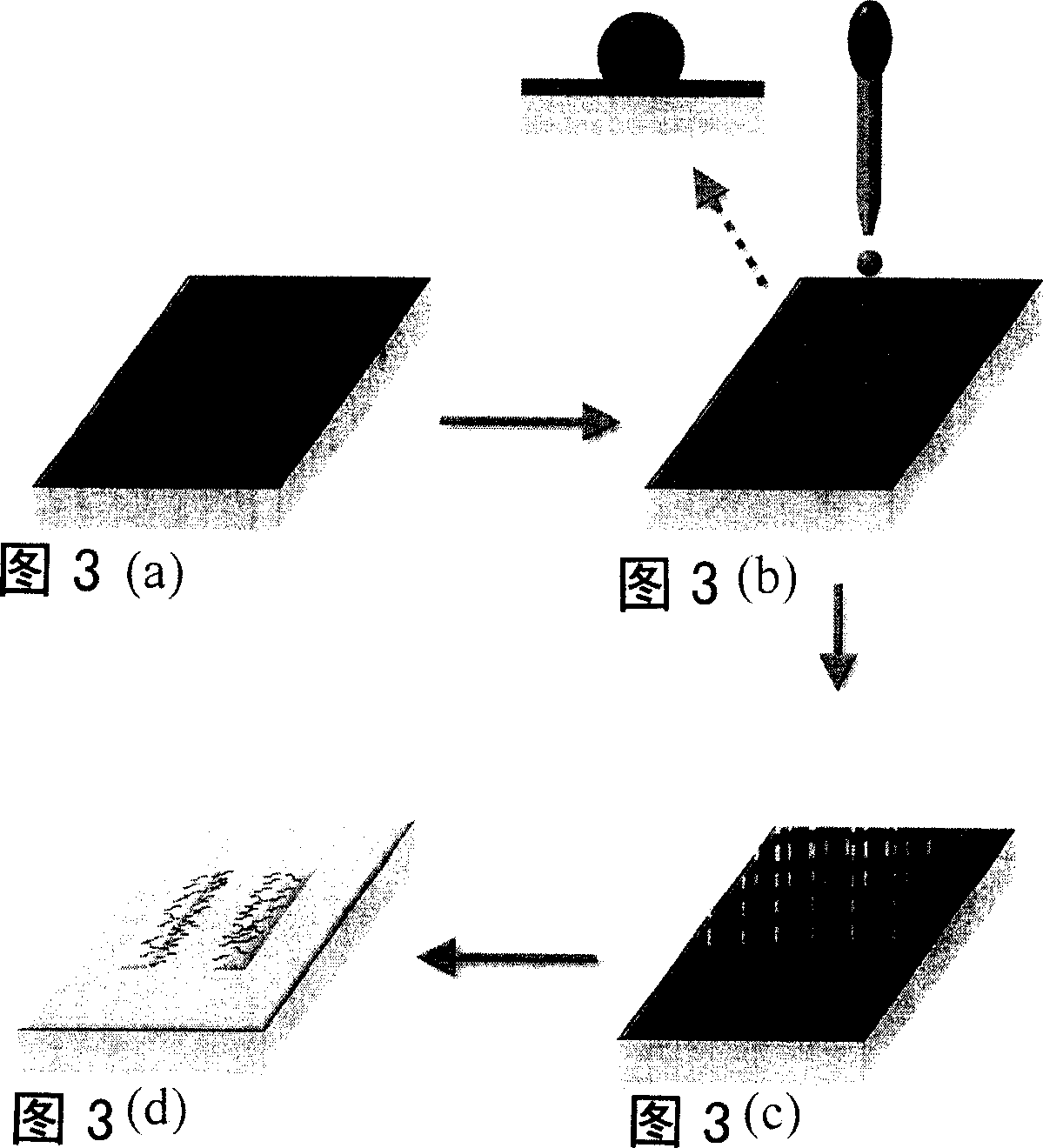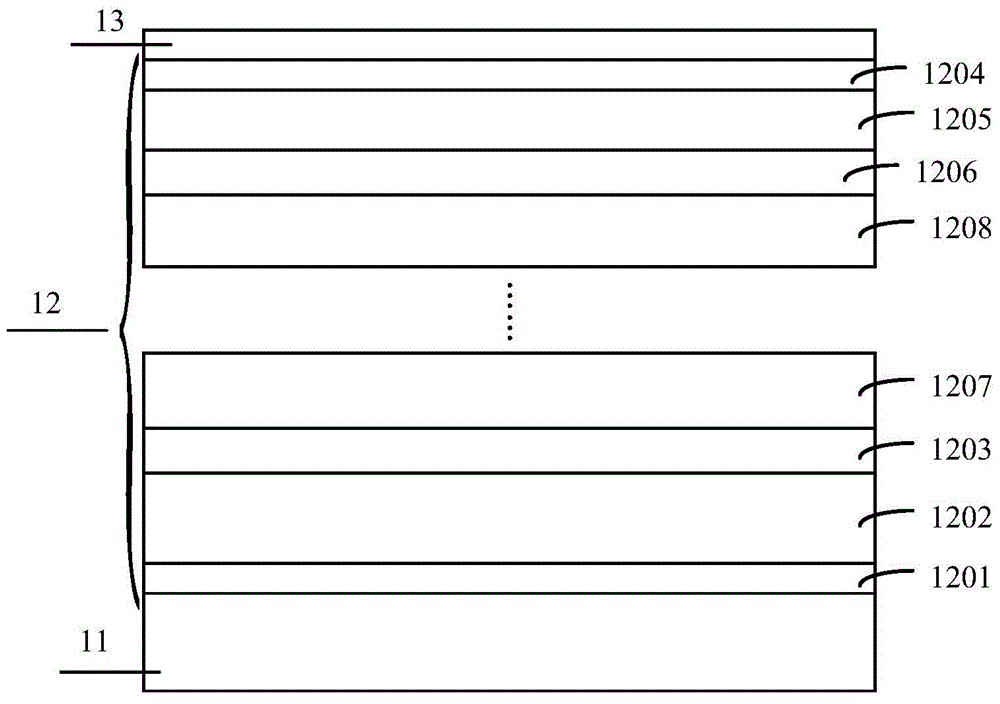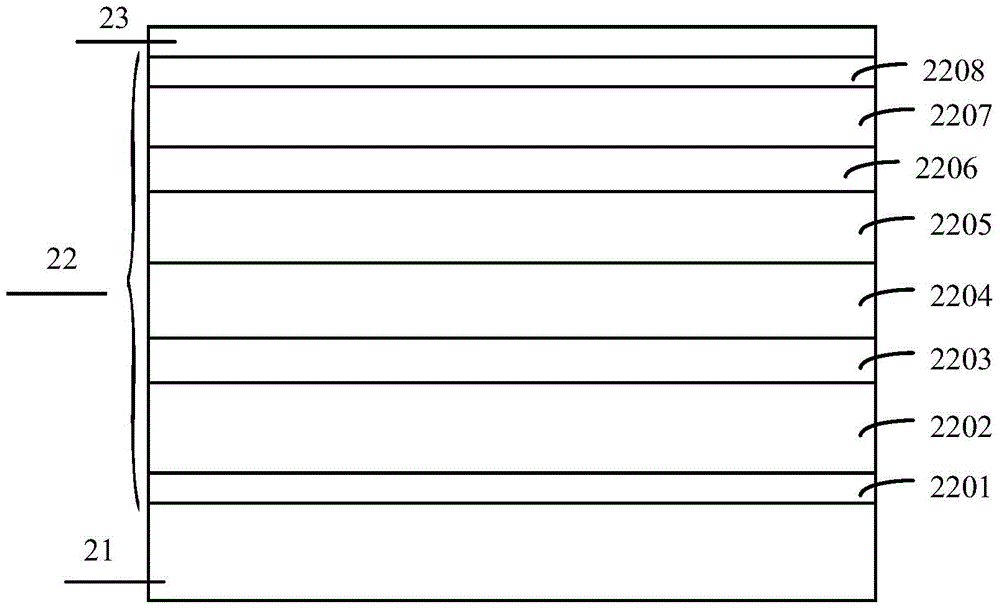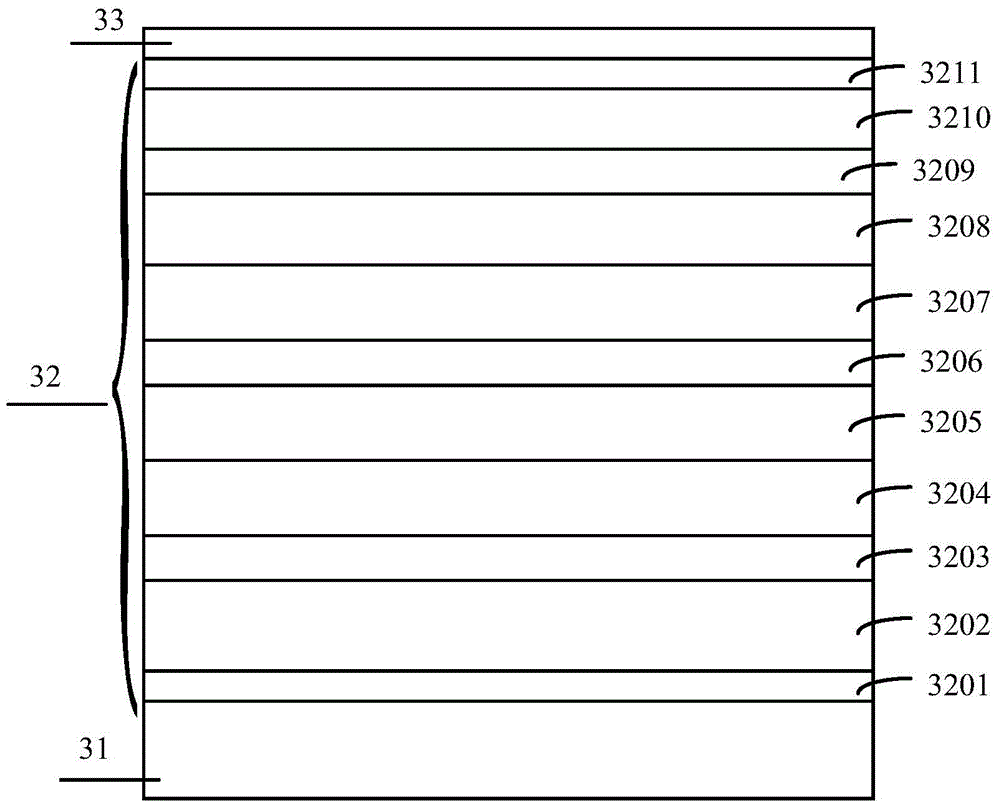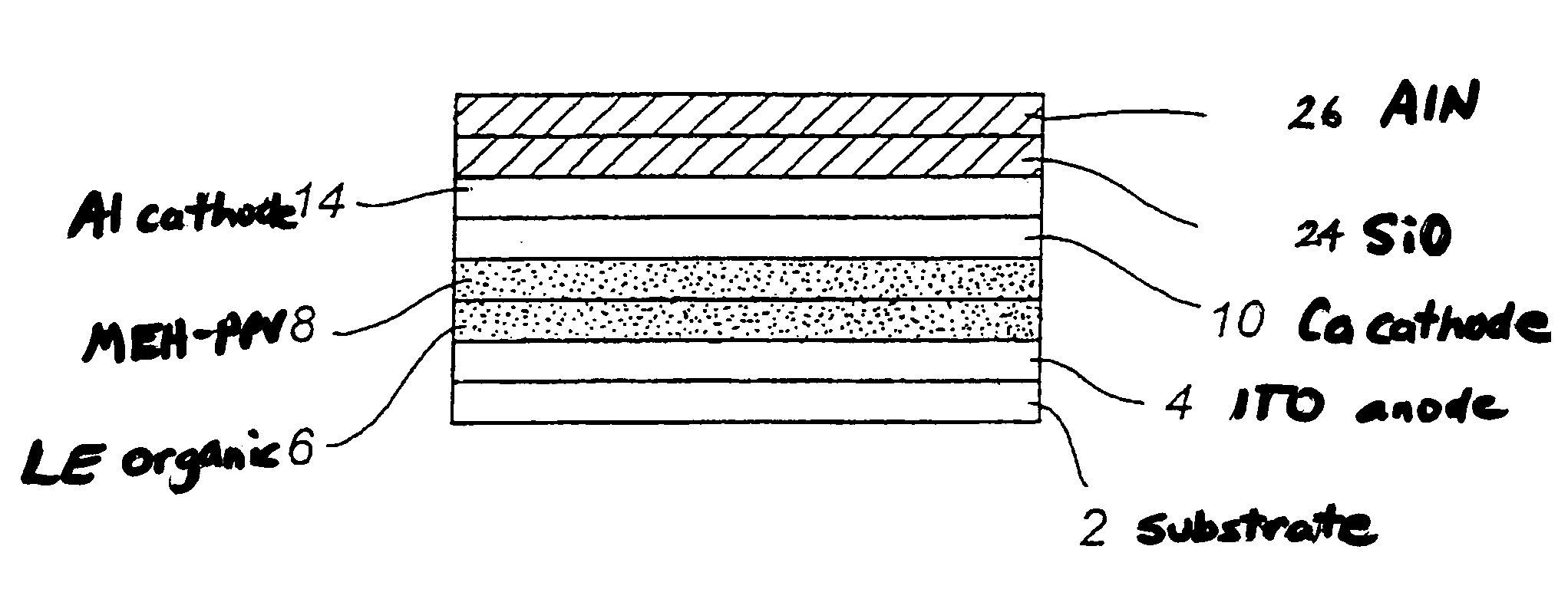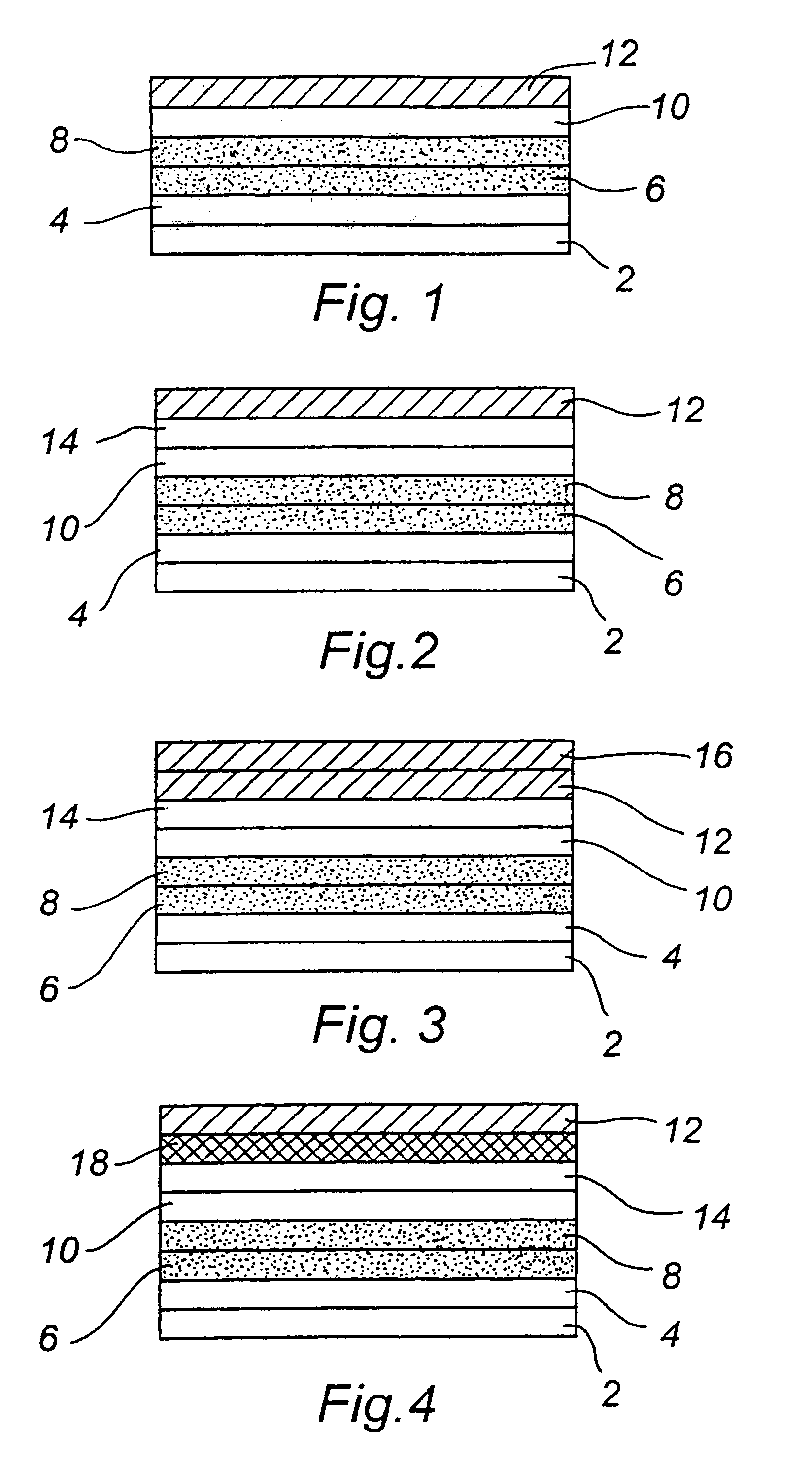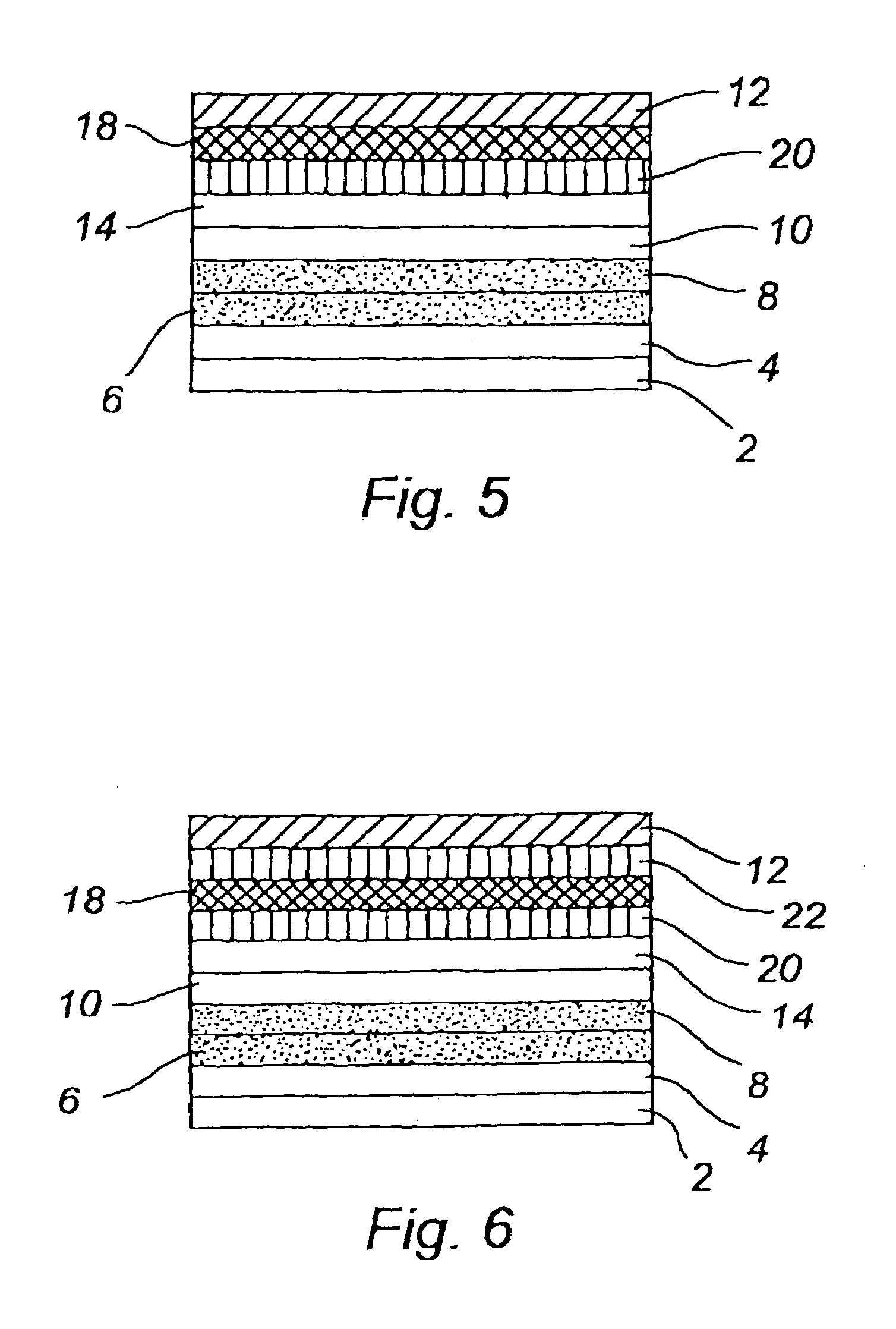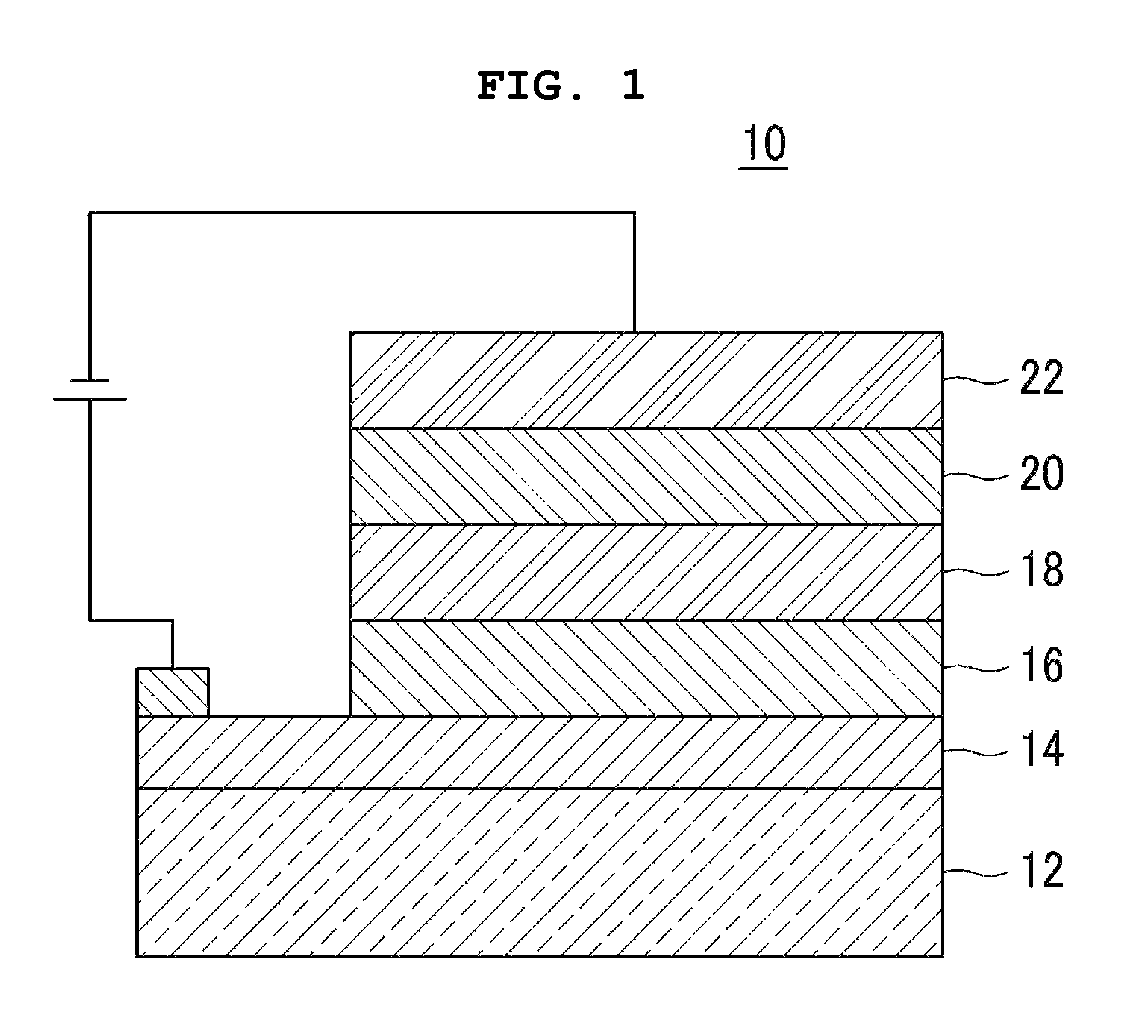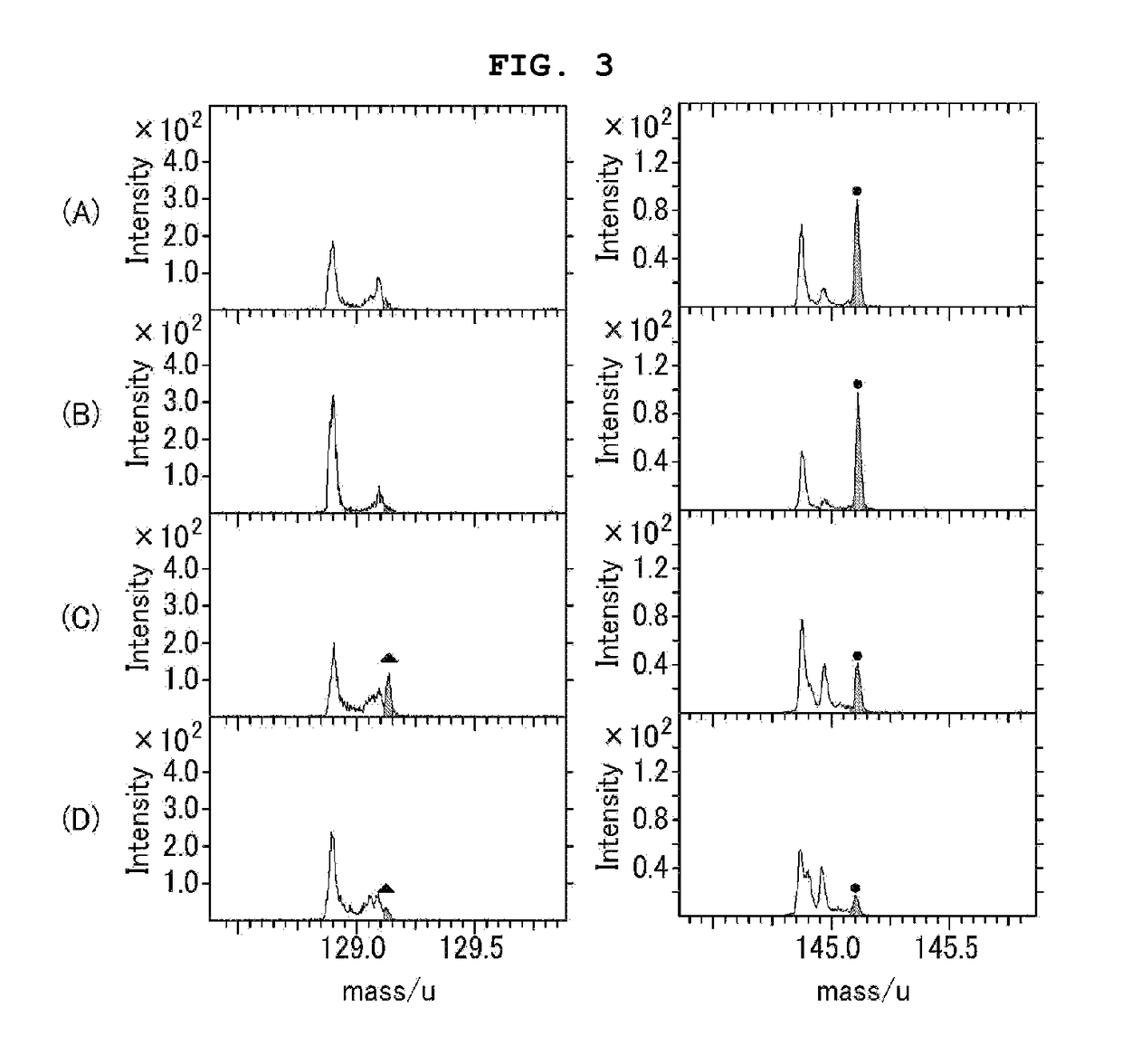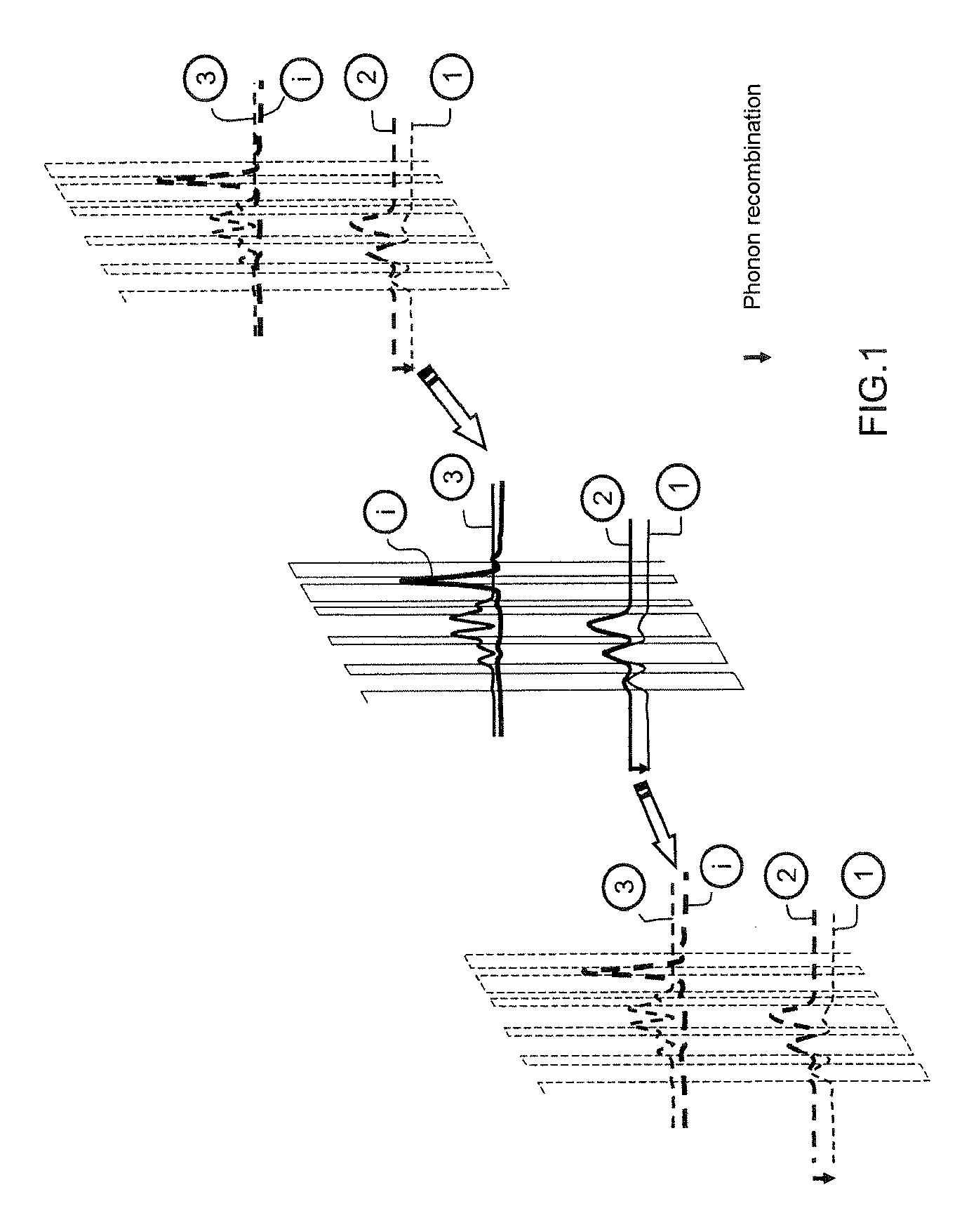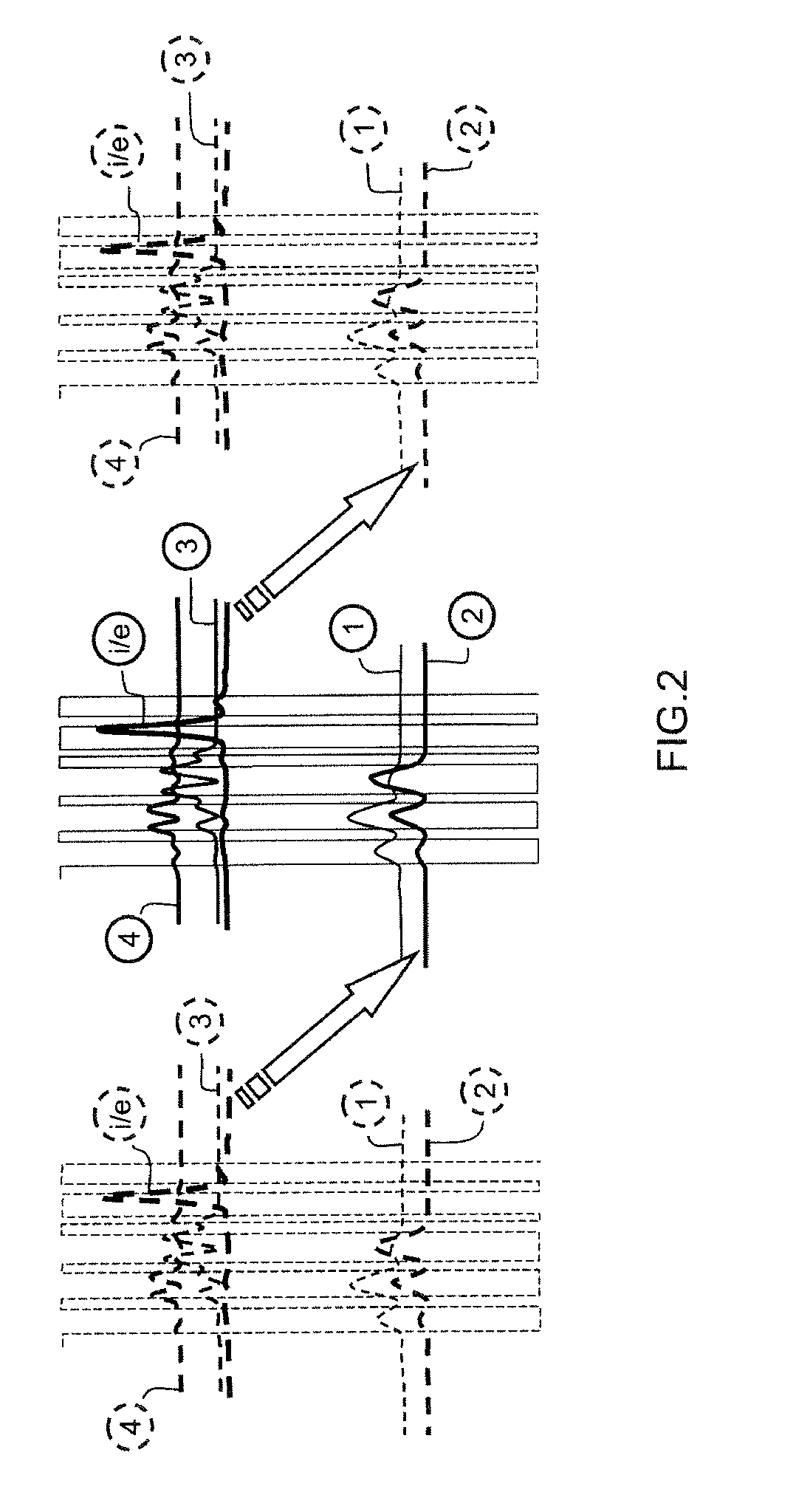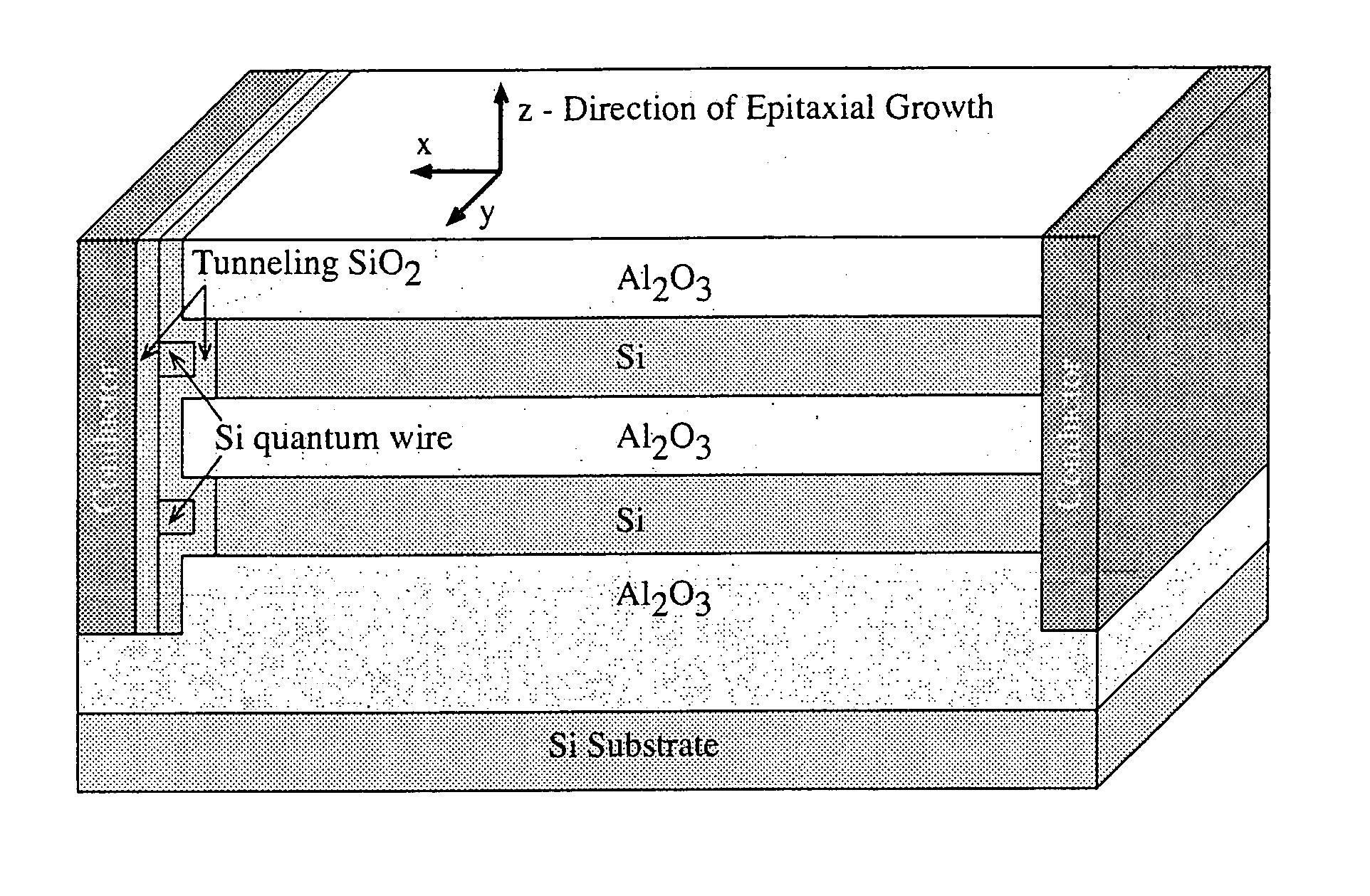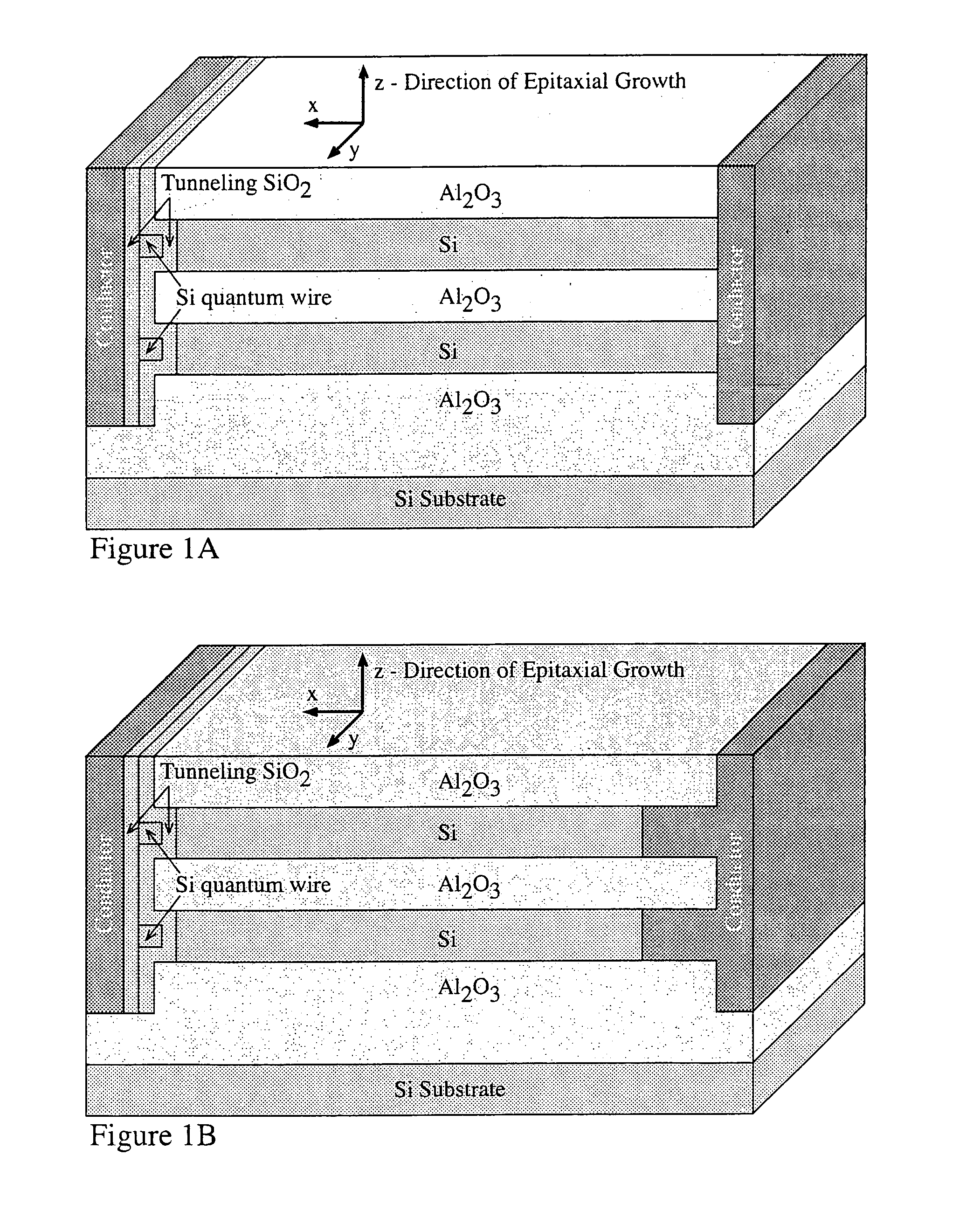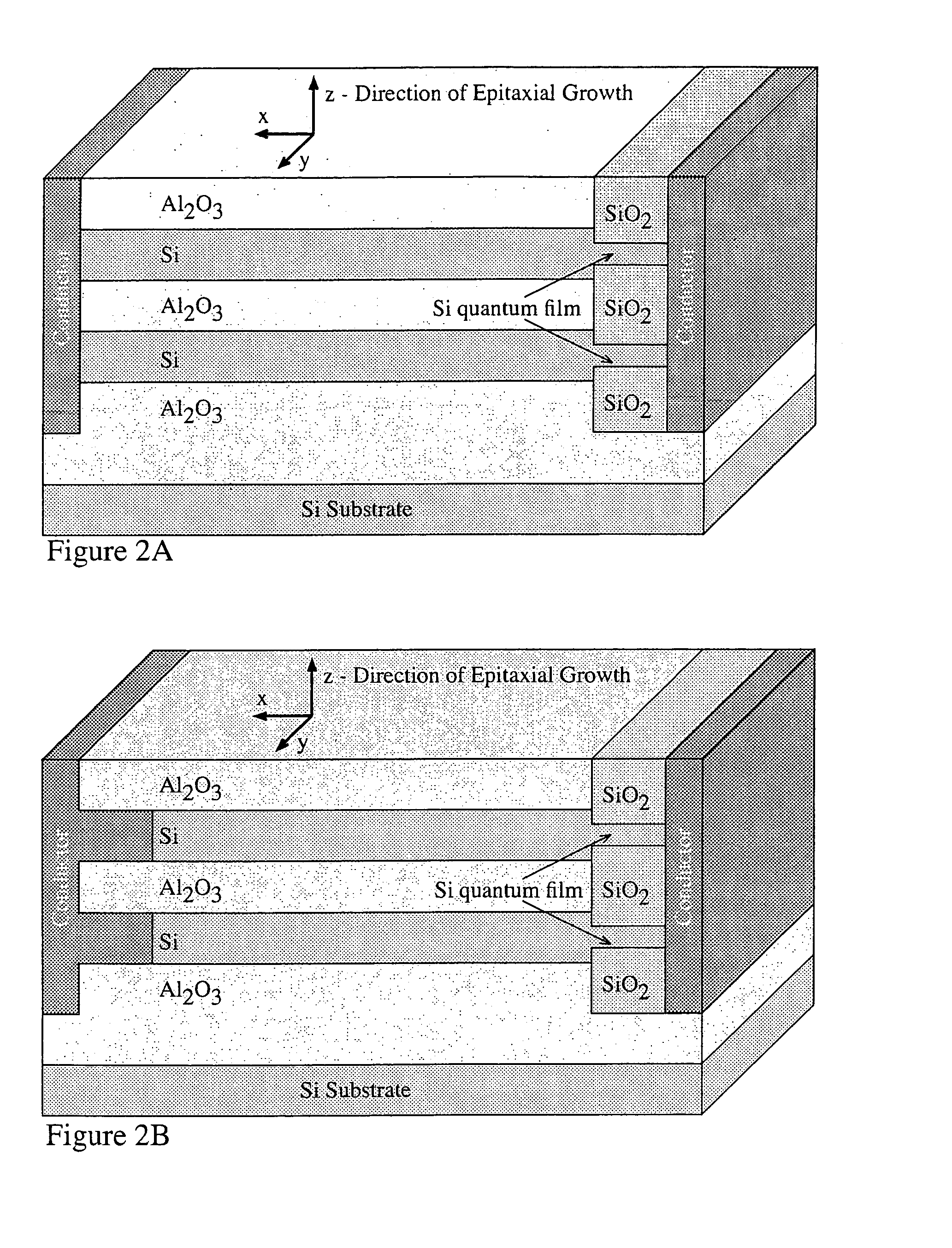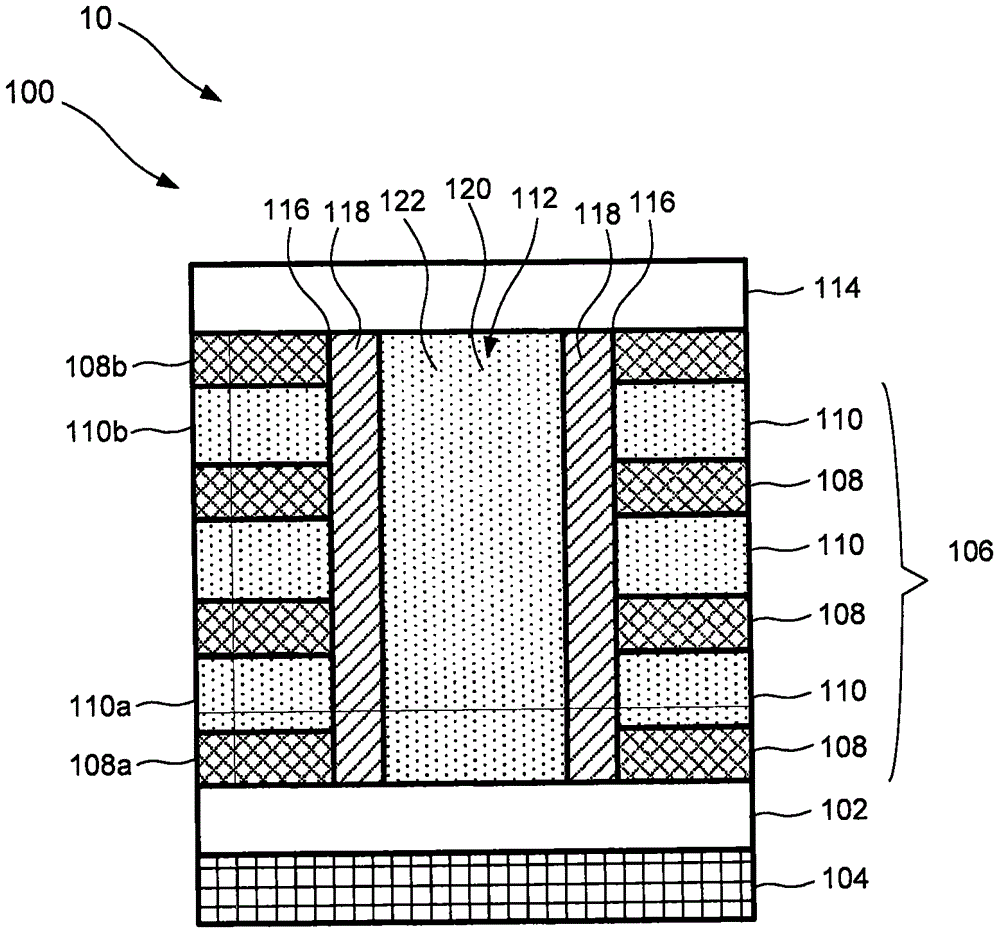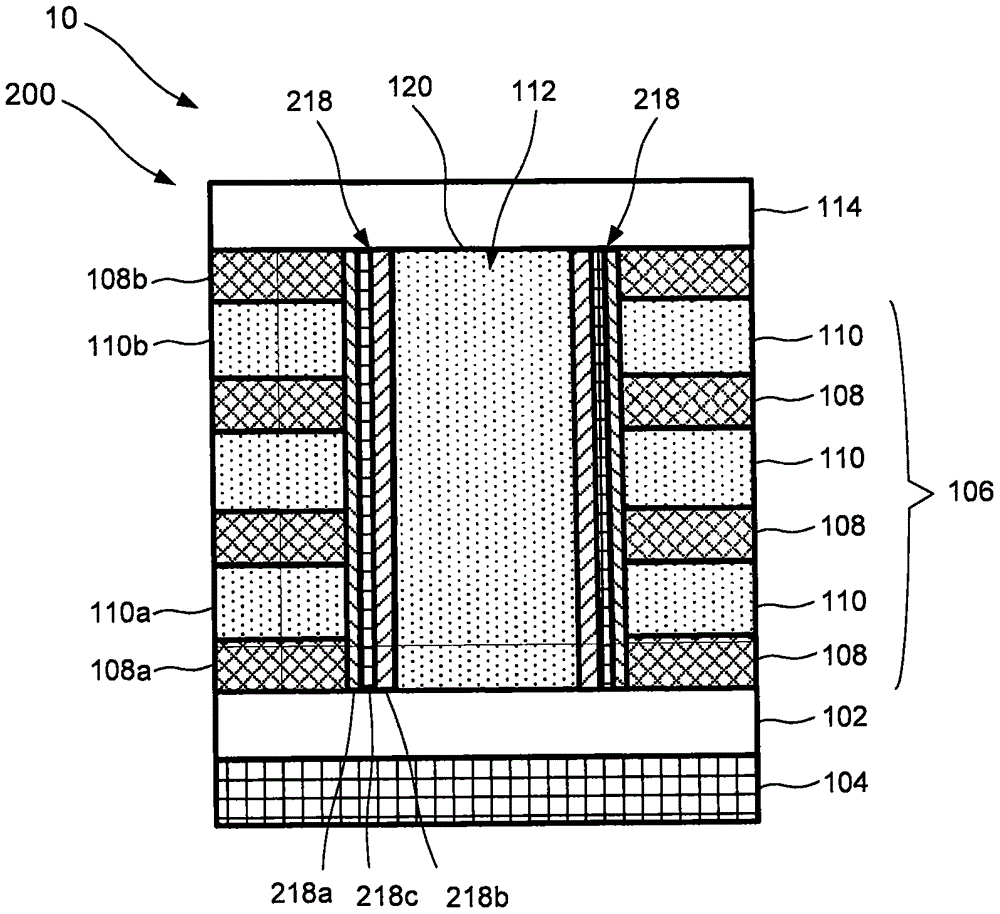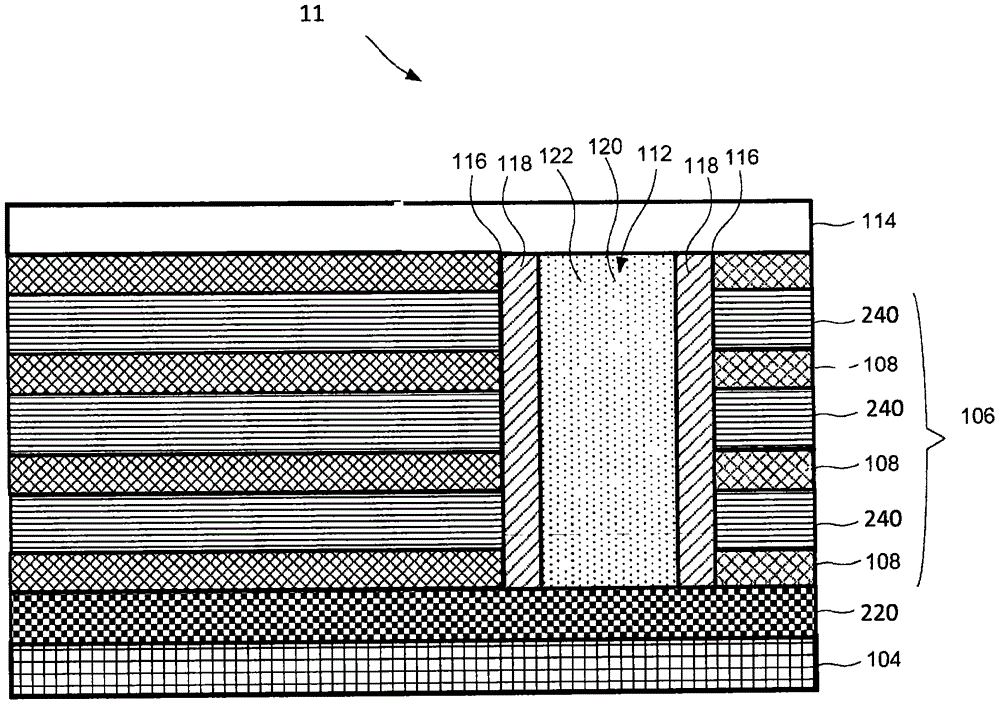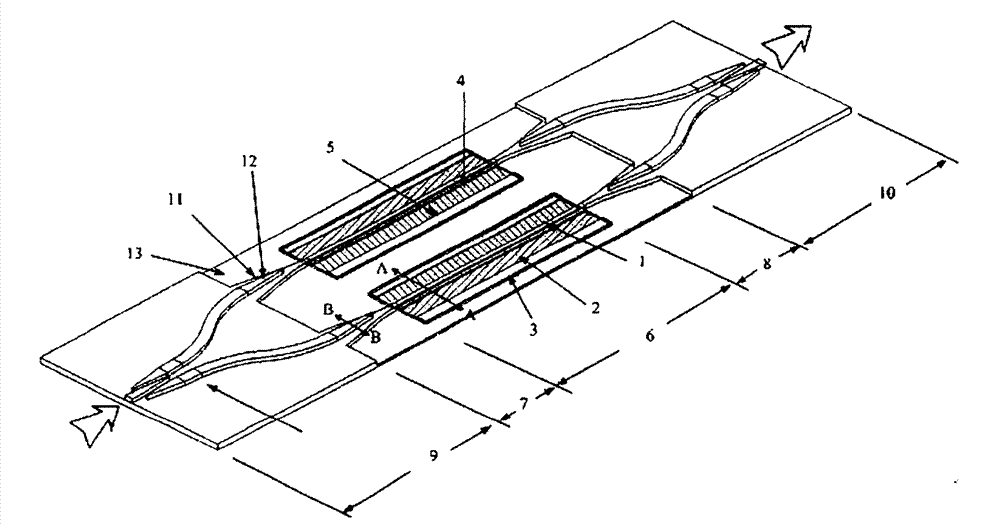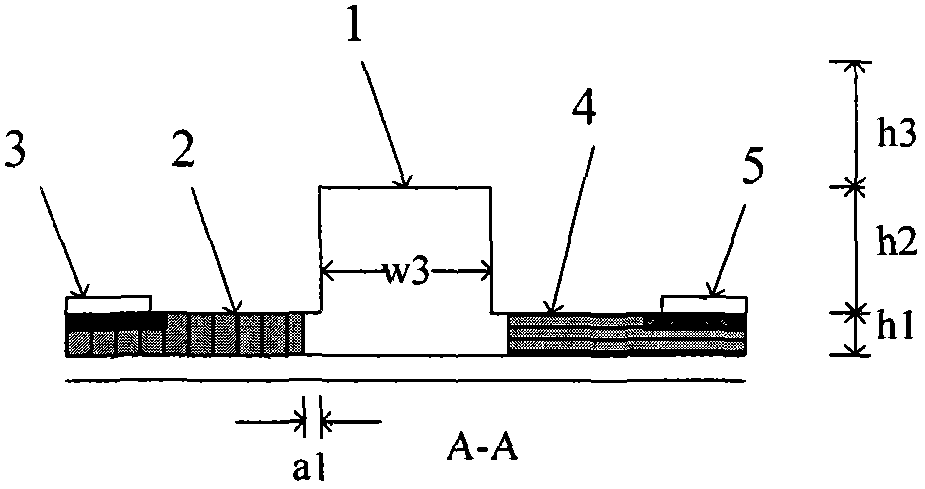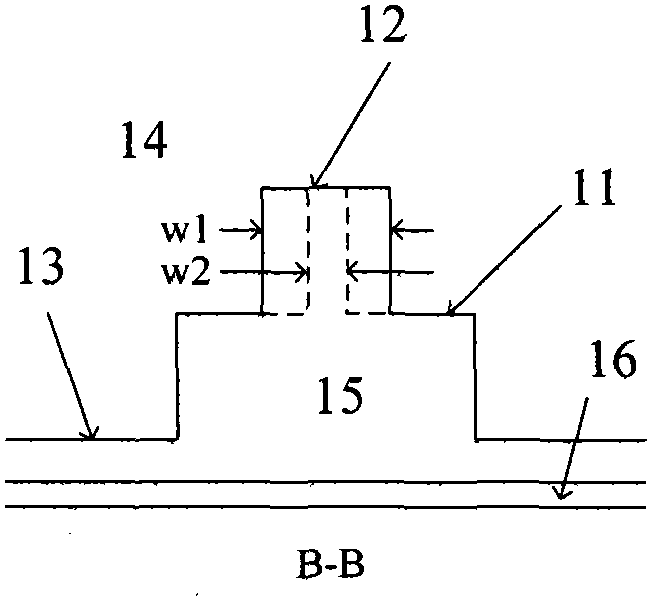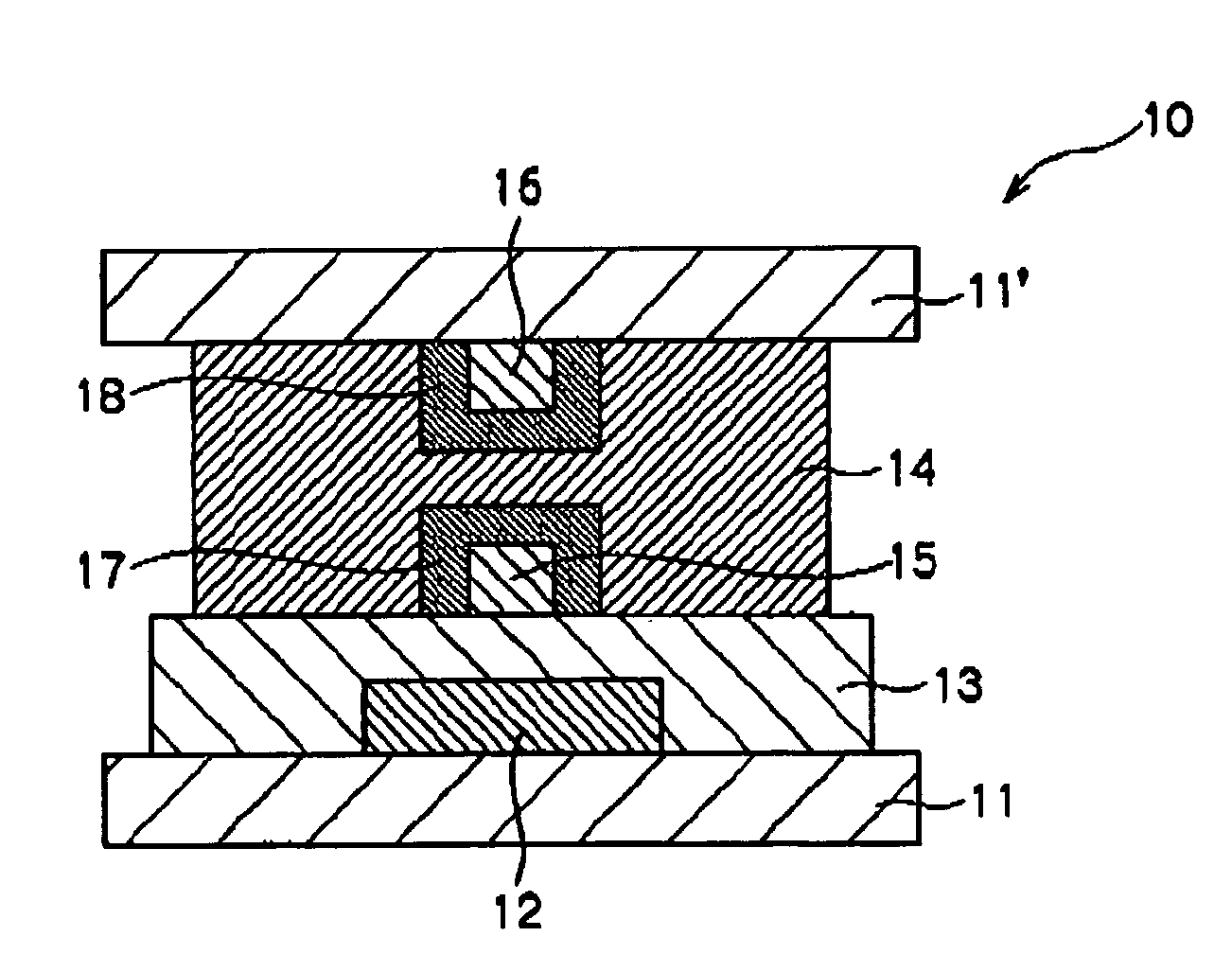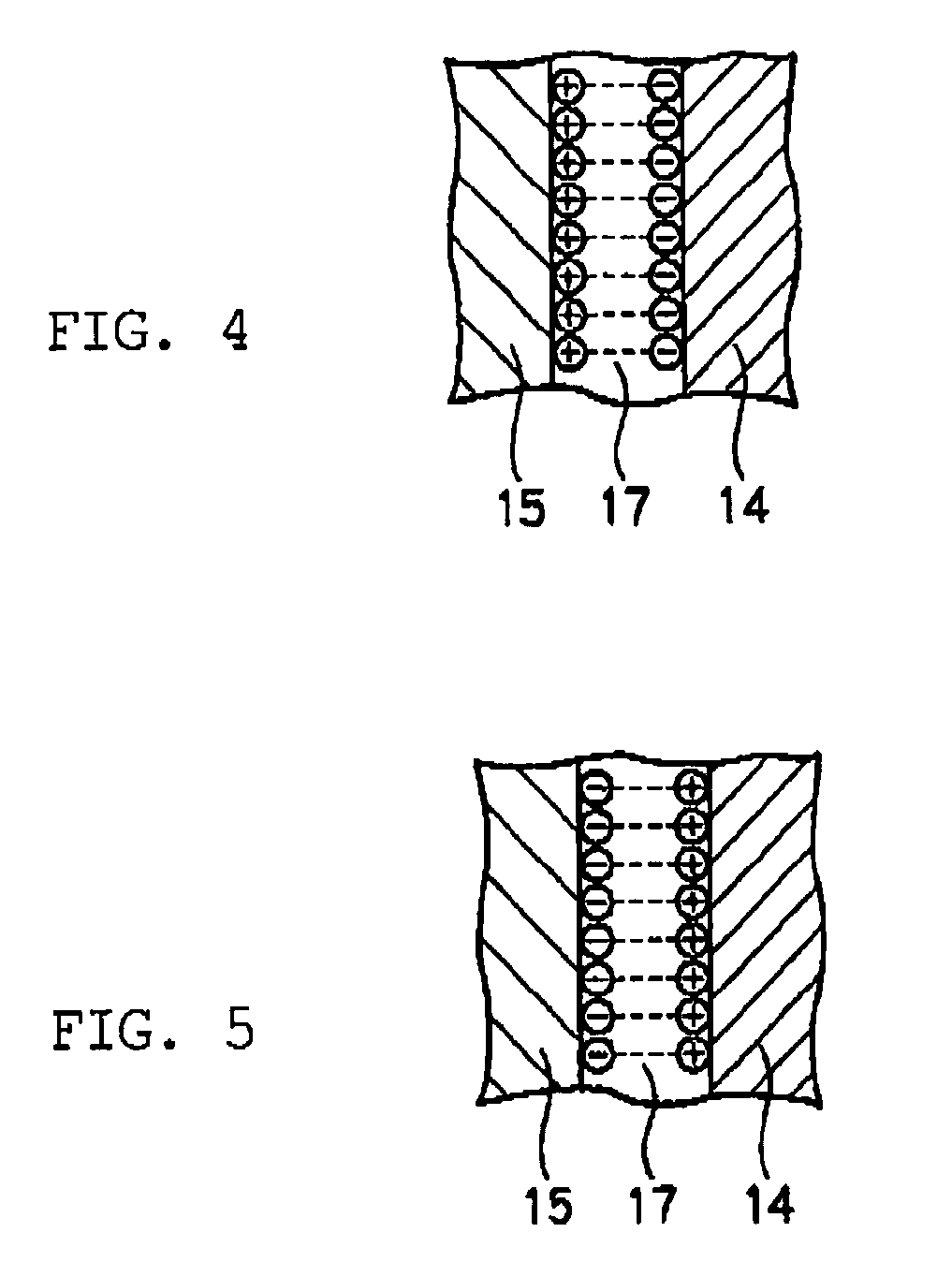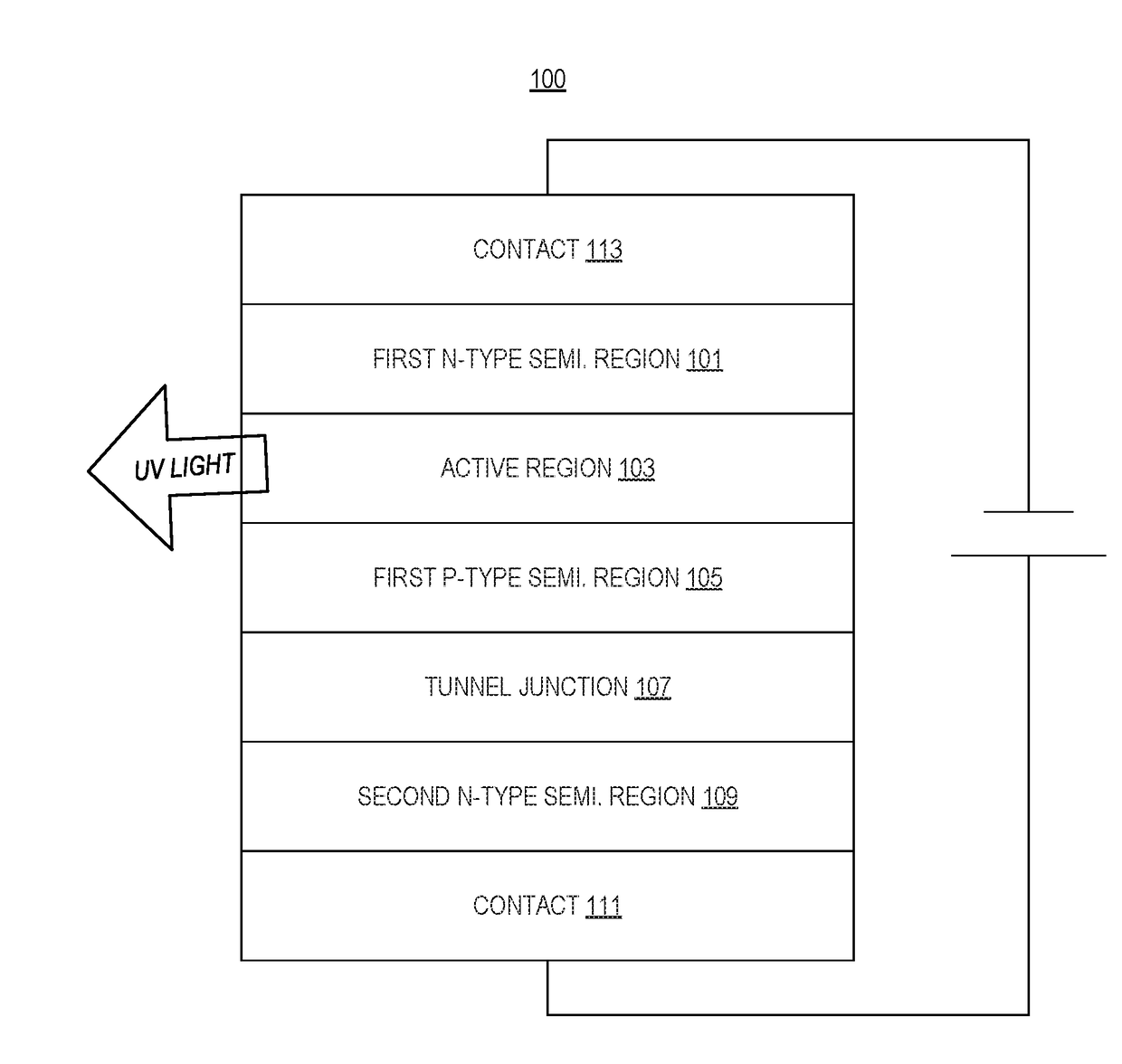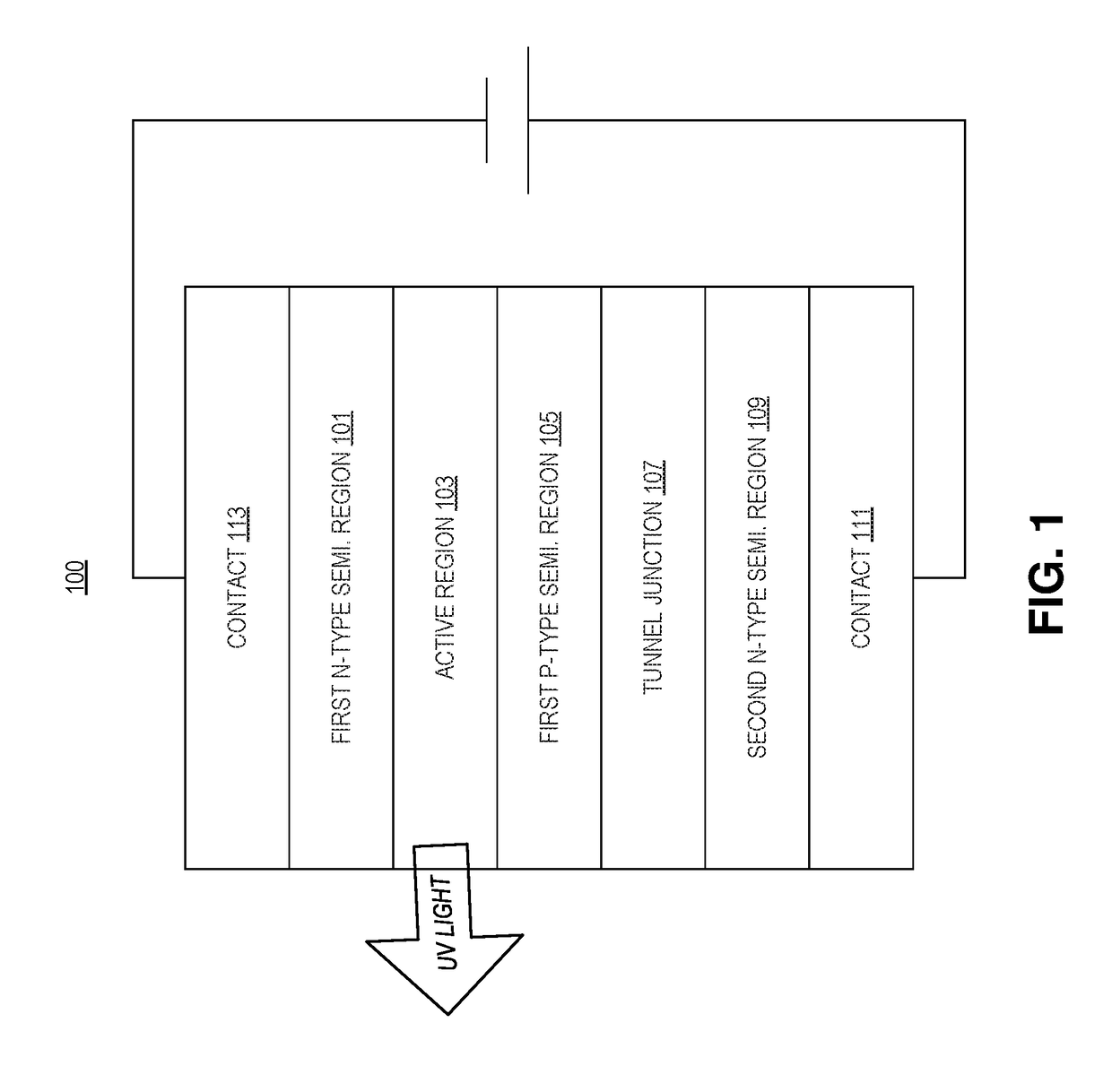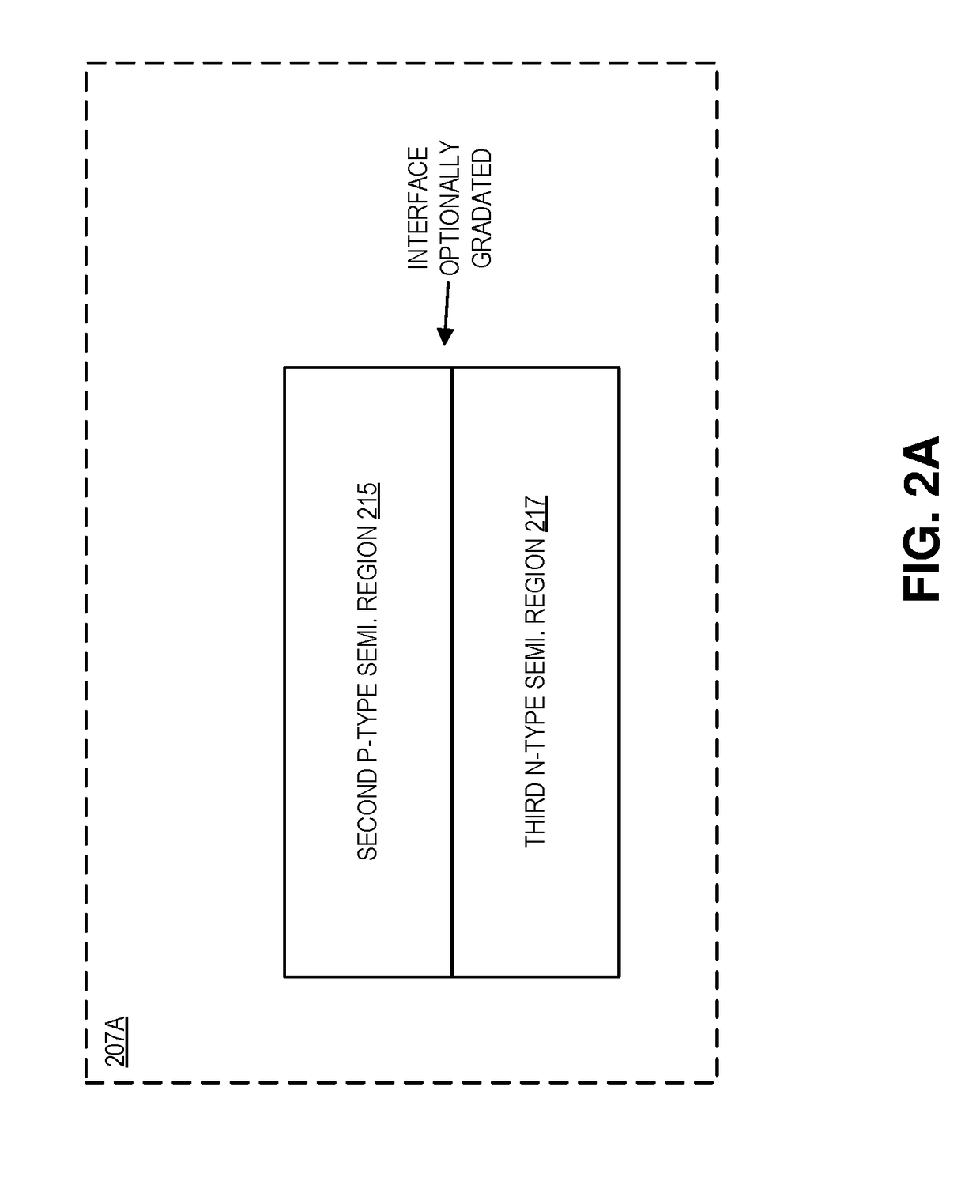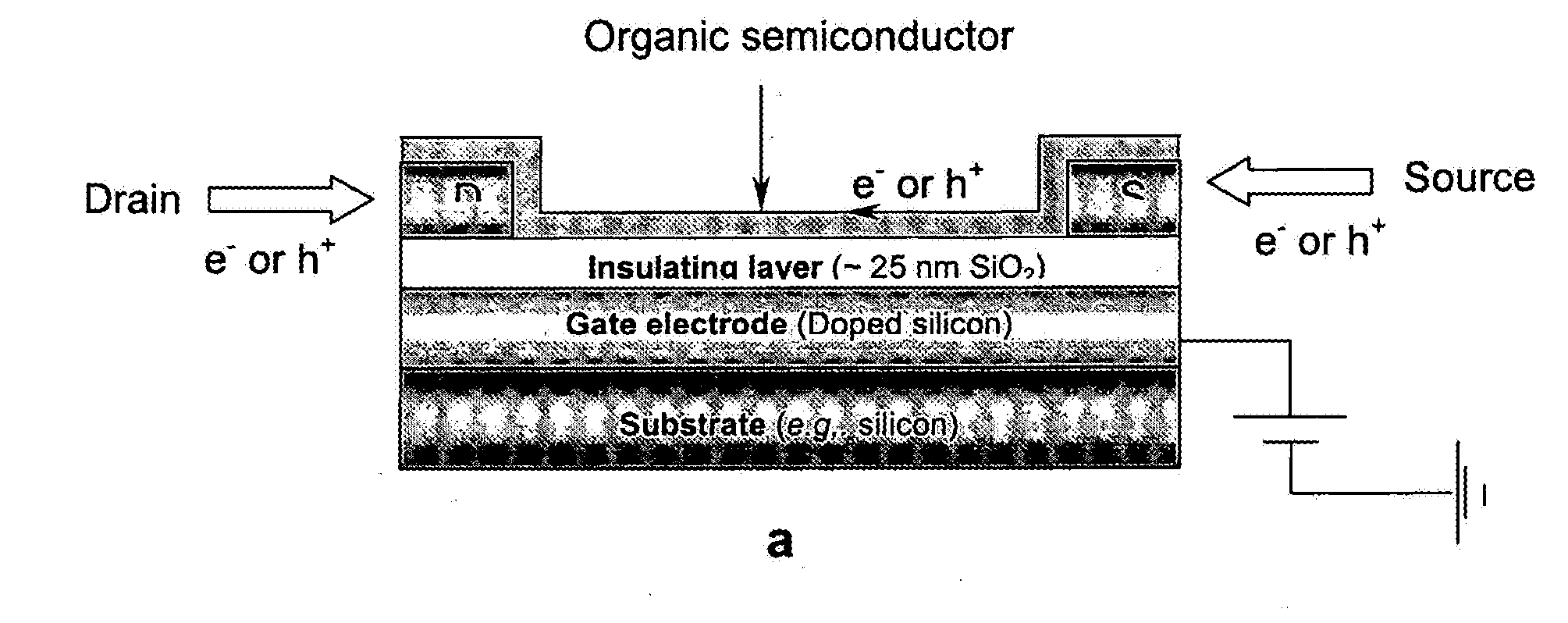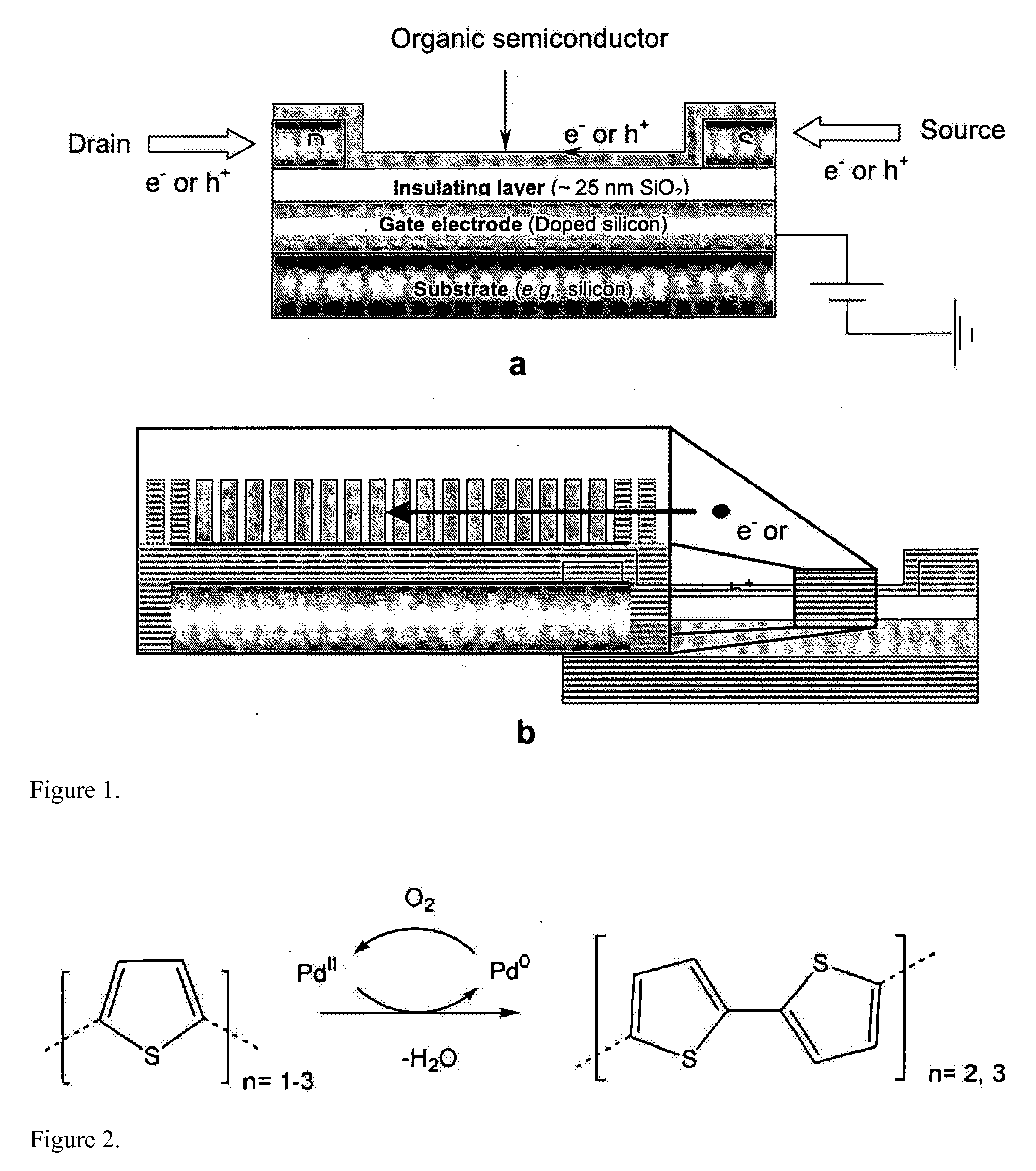Patents
Literature
Hiro is an intelligent assistant for R&D personnel, combined with Patent DNA, to facilitate innovative research.
58 results about "Charge carrier injection" patented technology
Efficacy Topic
Property
Owner
Technical Advancement
Application Domain
Technology Topic
Technology Field Word
Patent Country/Region
Patent Type
Patent Status
Application Year
Inventor
Nanoelectronic structure and method of producing such
InactiveUS20080149914A1Good electrical conductivityImproved/tailored pn-junctionsIndividual molecule manipulationNanoinformaticsAccess resistanceElectrical connection
The present invention relates to semiconductor devices comprising semiconductor nanoelements. In particular the invention relates to devices having a volume element having a larger diameter than the nanoelement arranged in epitaxial connection to the nanoelement. The volume element is being doped in order to provide a high charge carrier injection into the nanoelement and a low access resistance in an electrical connection. The nanoelement may be upstanding from a semiconductor substrate. A concentric layer of low resistivity material forms on the volume element forms a contact.
Owner:QUNANO
Method and apparatus for preventing overtunneling in pFET-based nonvolatile memory cells
Methods and apparatuses prevent overtunneling in pFET-based nonvolatile floating gate memory (NVM) cells. During a tunneling process, in which charge carriers are removed from a floating gate of a pFET-based NVM cell, a channel current of a memory cell transistor is monitored and compared to a predetermined minimum channel current required to maintain a conducting channel in an injection transistor of the memory cell. When the monitored channel current drops below the predetermined minimum channel current, charge carriers are injected onto the floating gate by impact-ionized hot-electron injection (IHEI) so that overtunneling is avoided.
Owner:SYNOPSYS INC
Wavelength-selective photonics device
InactiveUS6891869B2Wide rangeOvercome limitationsSolid-state devicesNanoopticsPhoton emissionPhotonics
A device comprising a number of different wavelength-selective active-layers arranged in a vertical stack, having band-alignment and work-function engineered lateral contacts to said active-layers, consisting of a contact-insulator and a conductor-insulator. Photons of different energies are selectively absorbed in or emitted by the active-layers. Contact means are arranged separately on the lateral sides of each layer or set of layers having the same parameters for extracting charge carriers generated in the photon-absorbing layers and / or injecting charge carriers into the photon-emitting layers. The device can be used for various applications: wavelength-selective multi-spectral solid-state displays, image-sensors, light-valves, light-emitters, etc. It can also be used for multiple-band gap solar-cells. The architecture of the device can be adapted to produce coherent light.
Owner:QUANTUM SEMICON
Organic and inorganic light active devices and methods for making the same
InactiveUS7378124B2Avoid pollutionOvercomes drawbackDischarge tube luminescnet screensElectroluminescent light sourcesParticulatesCharge carrier
A light active device includes a semiconductor particulate dispersed within a carrier material. A first contact layer is provided so on application of an electric field charge carriers having a polarity are injected into the semiconductor particulate through the carrier material. A second contact layer is provided so on application of the electric field to the second contact layer charge carriers having an opposite polarity are injected into the semiconductor particulate through the carrier material. The semiconductor particulate comprises at least one of an organic and an inorganic semiconductor. The semiconductor particulate may comprise an organic light active particulate. When constructed as a light emitting device, an electric field applied to the semiconductor particulate through the carrier causes charge carriers of opposite polarity to be injected into the semiconductor particulate. The charge carriers combine to form carrier pairs which decay and give off light.
Owner:DANIELS JOHN JAMES
Quantum dot electroluminescent device and method for fabricating the same
A quantum dot electroluminescent device that includes a substrate, a quantum dot light-emitting layer disposed on the substrate, a first electrode which injects charge carriers into the quantum dot light-emitting layer, a second electrode which injects charge carriers, which have an opposite charge than the charge carriers injected by the first electrode, into the quantum dot light-emitting layer, a hole transport layer disposed between the first electrode and the quantum dot light-emitting layer, and an electron transport layer disposed between the second electrode and the quantum dot light-emitting layer, wherein the quantum dot light-emitting layer has a first surface in contact with the hole transport layer and a second surface in contact with an electron transport layer, and wherein the first surface has an organic ligand distribution that is different from an organic ligand distribution of the second surface.
Owner:SAMSUNG ELECTRONICS CO LTD
Electroluminescent devices
InactiveUS6897473B1Maintaining emissionImprove lighting efficiencyElectroluminescent light sourcesSolid-state devicesCharge carrier injectionCharge carrier
An electroluminescent device comprising: a first charge carrier injecting layer for injecting positive charge carriers; a second charge carrier injecting layer for injecting negative charge carriers; and a light-emissive layer located between the charge carrier injecting layers and comprising a mixture of: a first component for accepting positive charge carriers from the first charge carrier injecting layer; a second component for accepting negative charge carriers from the second charge carrier injecting layer; and a third, organic light-emissive component for generating light as a result of combination of charge carriers from the first and second components; at least one of the first, second and third components forming a type II semiconductor interface with another of the first, second and third components.
Owner:CAMBRIDGE DISPLAY TECH LTD
Organic semiconductor device
InactiveUS20060054883A1Low working voltageAvoid large gapsTransistorSolid-state devicesCharge carrierOrganic semiconductor
The present invention provides an organic semiconductor device comprising an organic semiconductor layer having good charge carrier transport property, wherein a carrier injection to the organic semiconductor layer is easy. The above problem is solved by an organic semiconductor device comprising a first electrode and a second electrode facing to each other, and an organic semiconductor layer provided in between the first electrode and the second electrode, wherein a charge carrier injection promoting layer is formed in between the organic semiconductor layer and at least one electrode of the first electrode and the second electrode.
Owner:DAI NIPPON PRINTING CO LTD
Optical semiconductor device with resonant cavity tunable in wavelength, application to modulation of light intensity
Optical semiconductor device with resonant cavity tunable in wavelength, application to modulation of light intensity.This device comprises a resonant cavity (2) delimited by two mirrors (4, 6) and at least one super-lattice (14) that is placed in the cavity and is formed from piezoelectric semiconducting layers, and means (20) of injecting charge carriers into the super-lattice. The optical properties of this super-lattice can thus be modified and the wavelength of cavity resonance modes can be offset. The invention is particularly applicable to optical telecommunications.
Owner:XANTIMA
Formation of ordered thin films of organics on metal oxide surfaces
InactiveUS20050285101A1Total current dropEasy to fallMaterial nanotechnologyNanoinformaticsOrganic acidSub threshold
Owner:HANSON ERIC +5
Organic light-emitting devices
InactiveUS7005196B1Control flowAvoid excessive currentDischarge tube luminescnet screensStatic indicating devicesHigh resistanceElectrical conductor
An organic light-emitting device comprising a light-emissive organic layer (8) interposed between first (4) and second (12) electrodes for injecting charge carriers into the light-emissive organic layer (8), at least one of said first and second electrodes comprising a plurality of layers including a first electrode layer (10) having a high resistance adjacent the surface of the light-emissive organic layer (8) remote from the other of the first and second electrodes, said first electrode layer (10) comprising a high-resistance material selected from the group consisting of a mixture of a semiconductor material with an insulator material, a mixture of a semiconductor material with a conductor material and a mixture of an insulator material with a conductor material.
Owner:CAMBRIDGE DISPLAY TECH LTD
Organic Light-Emitting Diodes and an Arrangement with Several Organic Light-Emitting Diodes
InactiveUS20070051946A1Smooth effectReduce riskSolid-state devicesSemiconductor/solid-state device manufacturingCharge carrier injectionMetal substrate
Organic light-emitting diode with a layer arrangement which comprises an electrode, a counter electrode and an organic layer sequence arranged between the electrode and the counter electrode, where the organic layer sequence is arranged on a metal substrate and one or several organic transport layers containing in each case an admixture for increasing the electric conductivity and which are formed with at least one of the features from the following group of features: charge carrier transporting and charge carrier injecting.
Owner:NOVALED AG
SONOS memory device
A SONOS memory device, and a method of erasing data from the same, includes injecting charge carriers of a second sign into a trapping film, which traps charge carriers of a first sign to store data therein. The charge carriers of the second sign are generated by an electric field formed between one of a first and second electrodes contacting at least one bit line and a gate electrode contacting a word line. A blocking film may be provided between the gate electrode and the trapping film. The charge carriers of the second sign may be hot holes. This erasing improves erasing speed, thereby improving performance of the SONOS memory device.
Owner:SAMSUNG ELECTRONICS CO LTD
Semiconductor device
ActiveUS20070278609A1High voltageImprove thermal conductivityTransistorSemiconductor/solid-state device manufacturingSemiconductor materialsCharge carrier
A semiconductor device of unipolar type has Schottky-contacts (6) laterally separated by regions in the form of additional layers (7, 7″) of semiconductor material on top of a drift layer (3). Said additional layers being doped according to a conductivity type being opposite to the one of the drift layer. At least one (7″) of the additional layers has a substantially larger lateral extension and thereby larger area of the interface to the drift layer than adjacent such layers (7) for facilitating the building-up of a sufficient voltage between that layer and the drift layer for injecting minority charge carriers into the drift layer upon surge for surge protection.
Owner:CREE SWEDEN
Organic light-emitting devices
InactiveUS20060119253A1Control flowAvoid excessive currentDischarge tube luminescnet screensElectroluminescent light sourcesHigh resistanceElectrical conductor
An organic light-emitting device comprising a light-emissive organic layer interposed between first and second electrodes for injecting charge carriers into the light-emissive organic layer, at least one of said first and second electrodes comprising a plurality of layers including a first electrode layer having a high resistance adjacent the surface of the light-emissive organic layer remote from the other of the first and second electrodes, said first electrode layer comprising a high-resistance material selected from the group consisting of a mixture of a semiconductor material with an insulator material, a mixture of a semiconductor material with a conductor material and a mixture of an insulator material with a conductor material.
Owner:CAMBRIDGE DISPLAY TECH LTD
Electroluminescent devices
InactiveUS7078251B2Maintaining emissionImprove lighting efficiencyElectroluminescent light sourcesSolid-state devicesCharge carrierCharge carrier injection
An electroluminescent device comprising: a first charge carrier injecting layer for injecting positive charge carriers; a second charge carrier injecting layer for injecting negative charge carriers; and a light-emissive layer located between the charge carrier injecting layers and comprising a mixture of: a first component for accepting positive charge carriers from the first charge carrier injecting layer; a second component for accepting negative charge carriers from the second charge carrier injecting layer; and a third, organic light-emissive component for generating light as a result of combination of charge carriers from the first and second components; at least one of the first, second and third components forming a type II semiconductor interface with another of the first, second and third components.
Owner:CAMBRIDGE DISPLAY TECH LTD
Vertical organic field effect transistor and method of its manufacture
ActiveUS20120097949A1Facilitates high ON-currentLarge channel widthTransistorNanoinformaticsOrganic field-effect transistorCharge carrier
An electronic device (100) is presented, being configured for example as a vertical field effect transistor. The device comprises an electrically-conductive perforated patterned structure (102) which is enclosed between a dielectric layer (105) and an active element (106) of the electronic device (100). The electrically-conductive perforated patterned structure (102) comprises a geometrical pattern defining an array of spaced-apart perforation regions (108) surrounded by continuous electrically conductive regions (110). The pattern is such as to allow the active element (106) of the electronic device (100) to be in direct contact with said dielectric layer (105) aligned with the perforation regions (108). A material composition of the device (100) and features of said geometrical pattern are selected to provide a desired electrical conductance of the electrically-conductive perforated patterned structure (102) and a desired profile of a charge carriers' injection barrier along said structure (102).
Owner:TECHNION RES & DEV FOUND LTD
Wavelength selective photonics device
A device comprising a number of different wavelength-selective active-layers arranged in a vertical stack, having band-alignment and work-function engineered lateral contacts to said active-layers, consisting of a contact-insulator and a conductor-insulator. Photons of different energies are selectively absorbed in or emitted by the active-layers. Contact means are arranged separately on the lateral sides of the vertical stack for injecting charge carriers into the photon-emitting layers and extracting charge carriers generated in the photon-absorbing layers. The device can be used for various applications for light emission or light absorption. The stack of active layers may also include top and bottom electrodes whereby the device can also be operated as a FET device.
Owner:QUANTUM SEMICON
Organic light active devices with particulated light active material in a carrier matrix
InactiveUS7256427B2Avoid pollutionOvercomes drawbackSolid-state devicesSemiconductor/solid-state device manufacturingParticulatesContact layer
A light active device includes a semiconductor particulate dispersed within a carrier material. A first contact layer is provided so that on application of an electric field charge carriers having a polarity are injected into the semiconductor particulate through the conductive carrier material. A second contact layer is provided so that on application of the electric field to the second contact layer charge carriers having an opposite polarity are injected into the semiconductor particulate through the conductive carrier material. The semiconductor particulate comprises at least one of an organic and an inorganic semiconductor. The semiconductor particulate may comprise an organic light active particulate that includes at least one conjugated polymer. When an electric field is applied between the first and second contact layers to the semiconductor particulate through the conductive carrier material, the second contact layer becomes positive relative to the first contact layer and charge carriers of opposite polarity are injected into the semiconductor particulate. The opposite polarity charge carriers combine to form in the conjugated polymer charge carrier pairs which decay radiatively so that radiation is emitted from the conjugated polymer. In this case, the inventive light active device acts as a light emitting diode.
Owner:ARTICULATED TECH LLC
Stacked white OLED having separate red, green and blue sub-elements
ActiveUS8766291B2Improve efficiencyMaximum efficiencySolid-state devicesSemiconductor/solid-state device manufacturingCharge carrierOrganic light emitting device
The present invention relates to efficient organic light emitting devices (OLEDs). The devices employ three emissive sub-elements, typically emitting red, green and blue, to sufficiently cover the visible spectrum. Thus, the devices may be white-emitting OLEDs, or WOLEDs. Each sub-element comprises at least one organic layer which is an emissive layer—i.e., the layer is capable of emitting light when a voltage is applied across the stacked device. The sub-elements are vertically stacked and are separated by charge generating layers. The charge-generating layers are layers that inject charge carriers into the adjacent layer(s) but do not have a direct external connection.
Owner:RGT UNIV OF MICHIGAN
Low-cost and high-performance organic field effect transistor and its making method
InactiveCN101101967ALow costSimple processSolid-state devicesSemiconductor/solid-state device manufacturingSemiconductor materialsOrganic field-effect transistor
The invention is concerned with the low cost high efficient organic field effect transistor and it's making method, which belongs to the organic field effect transistor technique, with the source-drain electrode structure made from low work content material such as silver or copper, that forms the organic charge transfer complex salt layer on the surface of the organic semiconductor and the source-drain electrode. The making method includes: disposing the grid electrode and the isolating layer, and disposing the source-drain electrode on the isolating layer; decorating the source-drain electrode to cover the surface with the organic charge transfer complex salt layer; the last, disposing the organic semiconductor material on the complex salt layer. The invention insures the connection between the under metal electrode and the semiconductor for the efficient charge carrier injection.
Owner:INST OF CHEM CHINESE ACAD OF SCI
Organic light emitting diode device, display panel and display device
ActiveCN104701459AImprove efficiencyReduce the driving voltageSolid-state devicesSemiconductor/solid-state device manufacturingDisplay deviceLight-emitting diode
The invention discloses an organic light emitting diode device, a display panel and a display device. The organic light emitting diode device is mainly characterized in that existing serial top-emitting OLED devices are improved, a homojunction structure is utilized and functional layers of the top-emitting OLED devices connected in series are improved, so that each function layer comprises a hole injection layer, a hole transmission layer, a hole side light-emitting layer, an electron injection layer, an electron transmission layer, an electron side light-emitting layer and at least one group of charge producing layers a and charge producing layers b located between the hole side light-emitting layer and the electron side light-emitting layer, the hole injection layer, the hole transmission layer and the hole side light-emitting layer are sequentially arranged on the side close to an anode, the electron injection layer, the electron transmission layer and the electron side light-emitting layer are sequentially arranged on the side close to a cathode. A first light-emitting unit ...and an Nth light-emitting unit of each serial top-emitting OLED device are of homojunction structures, the using categories of organic materials are decreased, injection potential barriers of charge carriers in the devices are eliminated, the charge carrier injection efficiency and the efficiency of the devices are improved, and drive voltage of the devices is reduced.
Owner:BOE TECH GRP CO LTD
Organic light-emitting devices including specific barrier layers
InactiveUS6960877B1Improved resistance to performance degradationLess proneDischarge tube luminescnet screensElectroluminescent light sourcesOrganic light emitting deviceCharge carrier
An organic light-emitting device comprising a layer of light-emissive organic material interposed between a first electrode and a second electrode, at least one of the first and second electrodes comprising one or more electrode layers on the layer of light-emissive organic material for injecting charge carriers into the light-emissive organic material, wherein the organic light-emitting device further comprises a layer of dielectric material on the surface of the outermost electrode layer remote from the layer of light-emissive organic material.
Owner:CAMBRIDGE DISPLAY TECH LTD
Quantum dot electroluminescent device and method for fabricating the same
A quantum dot electroluminescent device that includes a substrate, a quantum dot light-emitting layer disposed on the substrate, a first electrode which injects charge carriers into the quantum dot light-emitting layer, a second electrode which injects charge carriers, which have an opposite charge than the charge carriers injected by the first electrode, into the quantum dot light-emitting layer, a hole transport layer disposed between the first electrode and the quantum dot light-emitting layer, and an electron transport layer disposed between the second electrode and the quantum dot light-emitting layer, wherein the quantum dot light-emitting layer has a first surface in contact with the hole transport layer and a second surface in contact with an electron transport layer, and wherein the first surface has an organic ligand distribution that is different from an organic ligand distribution of the second surface.
Owner:SAMSUNG ELECTRONICS CO LTD
Quantum cascade detector type device with high injector
InactiveUS20100195686A1Controlled dopingOptimize locationLaser detailsLaser active region structureSemiconductor materialsRelaxation phenomenon
The invention relates to a quantum cascade device of detector type comprising two electrodes for applying a control electrical field, and a waveguide positioned between the two electrodes, said device comprising a gain region made up of a plurality of layers and comprising alternating strata of a first type each defining a quantum barrier and strata of a second type each defining a quantum well, each layer of the gain region comprising an injection barrier exhibiting an injection subband of charge carriers with a lower energy level called injector level (i) and an active area, said active area being made of a set of pairs of strata made from semiconductive materials so that each of the wells has at least one upper subband called third subband (3), a middle subband called second subband (2) and a bottom subband called first subband (1), the potential difference between the third and second subbands being such that the transition of an electron from the third subband to the second subband emits an energy corresponding to that needed for the emission of a photon, characterized in that:the active area also has a fourth subband (4) situated above the third subband;said fourth subband being such that, in the absence of any electrical field applied to the electrodes, the injector level of the injection barrier is less than the level of said fourth subband and greater than the level of the third subband and that, in the presence of a field applied to the electrodes, the charge carrier injector level (i) becomes greater than or equal to the level of the fourth subband, so as to generate a rapid relaxation phenomenon between the injector level and the fourth subband, the fourth subband being at a distance energy-wise from the third subband allowing an optical phonon relaxation.
Owner:THALES SA
Wavelength selective photonics device
A device comprising a number of different wavelength-selective active-layers arranged in a vertical stack, having band-alignment and work-function engineered lateral contacts to said active-layers, consisting of a contact-insulator and a conductor-insulator. Photons of different energies are selectively absorbed in or emitted by the active-layers. Contact means are arranged separately on the lateral sides of the vertical stack for injecting charge carriers into the photon-emitting layers and extracting charge carriers generated in the photon-absorbing layers. The device can be used for various applications for light emission or light absorption. The stack of active layers may also include top and bottom electrodes whereby the device can also be operated as a FET device.
Owner:QUANTUM SEMICON
Vertical three-dimensional semiconductor device
InactiveCN105679828ASmall sizeHigh densitySemiconductor/solid-state device manufacturingSemiconductor devicesRepetitive SequencesSemiconductor materials
The present invention relates to a vertical, three-dimensional semiconductor device (10) comprising a source layer (102) on a substrate (104), a horizontal stack of layers (106) of a repetitive sequence on the source layer (102), each sequence comprising an electrically isolating layer (108) and an electrically conductive gate layer (110). An electrically isolating layer (108a) of the stack of layers (106) is in contact with the source layer (102), a vertical channel structure (112) extending through the horizontal stack of layers (106), a metal drain (114) being arranged above the horizontal stack of layers (106) and the vertical channel structure (112), the source layer (102) being arranged to inject charge carries into the vertical channel structure (112) and the metal drain (114) being arranged to extract charge carries from the vertical channel structure (112). The semiconductor device (10) may be junction-less and the vertical channel structure (112) may comprise a high mobility semiconductor material.
Owner:IMEC非营利协会
Electro-optical modulation system and electro-optical switch or optical attenuator formed by electro-optical modulation system
InactiveCN102967951AImprove injection efficiencyReduce power consumptionNon-linear opticsSemiconductor devicesHigh concentrationOptical attenuator
The invention discloses an electro-optical modulation system and an electro-optical switch or optical attenuator formed by the electro-optical modulation system. The electro-optical modulation system comprises an electro-optical PIN diode waveguide and a pair of mode convertors, wherein the electro-optical PIN diode waveguide is composed of a ridge waveguide; a high-concentration doped P-type doping area and an N-type doping area are respectively arranged on the two sides of a flat area of the ridge waveguide; the height of the flat area of the ridge waveguide is less than a half of the ridge height of the ridge waveguide; the ridge width of the ridge waveguide is close to the total height of the ridge waveguide; and the main energy of a main mould for waveguide conduction is limited in a core area. The electro-optical switch or optical attenuator comprises an input Y branch coupler, a pair of input mode convertors, a section of active waveguide area, a pair of output mode convertors, and an output Y branch coupler in turn from input to output, wherein the active waveguide area is composed of two parallel electro-optical PIN diode waveguides. The structure of the electro-optical modulation system can increase the charge-carrier injection efficiency, can reduce total power consumption of devices and has high extinction ratio.
Owner:上海硅通半导体技术有限公司
Organic semiconductor device
InactiveUS7256064B2Low working voltageAvoid large gapsTransistorSolid-state devicesCharge carrierOrganic semiconductor
The present invention provides an organic semiconductor device comprising an organic semiconductor layer having good charge carrier transport property, wherein a carrier injection to the organic semiconductor layer is easy. The above problem is solved by an organic semiconductor device comprising a first electrode and a second electrode facing to each other, and an organic semiconductor layer provided in between the first electrode and the second electrode, wherein a charge carrier injection promoting layer is formed in between the organic semiconductor layer and at least one electrode of the first electrode and the second electrode.
Owner:DAI NIPPON PRINTING CO LTD
Fabrication of ultraviolet light emitting diode with tunnel junction
A method of fabricating a light emitting diode (LED) includes forming an active region structured to emit ultraviolet (UV) light and disposed between a first n-type semiconductor region and a first p-type semiconductor region. The method also includes forming a tunnel junction, where the first p-type semiconductor region is disposed between the active region and the tunnel junction, and where the tunnel junction is electrically coupled to inject charge carriers into the active region through the first p-type semiconductor region. A second n-type semiconductor region is also formed, where the tunnel junction is disposed between the second n-type semiconductor region and the first p-type semiconductor region.
Owner:X DEV LLC
Formation of ordered thin films of organics on metal oxide surfaces
InactiveUS20120104362A1Raise the threshold voltageImproved chemical and structural stabilityMaterial nanotechnologyNanoinformaticsOrganic acidSub threshold
Provided herein is a method for altering an electronic property of a structure comprising an oxide surface or an oxide surface in electronic communication with the structure, the method comprising providing a covalently-bound film comprising at least one organic acid residue on a portion of the oxide surface so that at least one of the following properties of the structure is modified: (a) the charge carrier injection barrier properties; (b) the charge conductivity properties; (c) the charge transport properties; (d) the work function properties; (e) the sub-threshold slope; and (f) the threshold voltage.
Owner:HANSON ERIC +5
Features
- R&D
- Intellectual Property
- Life Sciences
- Materials
- Tech Scout
Why Patsnap Eureka
- Unparalleled Data Quality
- Higher Quality Content
- 60% Fewer Hallucinations
Social media
Patsnap Eureka Blog
Learn More Browse by: Latest US Patents, China's latest patents, Technical Efficacy Thesaurus, Application Domain, Technology Topic, Popular Technical Reports.
© 2025 PatSnap. All rights reserved.Legal|Privacy policy|Modern Slavery Act Transparency Statement|Sitemap|About US| Contact US: help@patsnap.com
